The Complete Guide to Independent Research Projects for High School Students

Indigo Research Team

If you want to get into top universities, an independent research project will give your application the competitive edge it needs.
Writing and publishing independent research during high school lets you demonstrate to top colleges and universities that you can deeply inquire into a topic, think critically, and produce original analysis. In fact, MIT features "Research" and "Maker" portfolio sections in its application, highlighting the value it places on self-driven projects.
Moreover, successfully executing high-quality research shows potential employers that you can rise to challenges, manage your time, contribute new ideas, and work independently.
This comprehensive guide will walk you through everything you need to know to take on independent study ideas and succeed. You’ll learn how to develop a compelling topic, conduct rigorous research, and ultimately publish your findings.
.png)
What is an Independent Research Project?
An independent research project is a self-directed investigation into an academic question or topic that interests you. Unlike projects assigned by teachers in class, independent research will allow you to explore your curiosity and passions.
These types of projects can vary widely between academic disciplines and scientific fields, but what connects them is a step-by-step approach to answering a research question. Specifically, you will have to collect and analyze data and draw conclusions from your analysis.
For a high school student, carrying out quality research may still require some mentorship from a teacher or other qualified scholar. But the project research ideas should come from you, the student. The end goal is producing original research and analysis around a topic you care about.
Some key features that define an independent study project include:
● Formulating your own research question
● Designing the methodology
● Conducting a literature review of existing research
● Gathering and analyzing data, and
● Communicating your findings.
The topic and scope may be smaller than a professional college academic project, but the process and skills learned have similar benefits.
Why Should High School Students Do Independent Research?
High school students who engage in independent study projects gain valuable skills and experiences that benefit and serve them well in their college and career pursuits. Here's a breakdown of what you will typically acquire:
Develop Critical Thinking and Problem-Solving Skills
Research and critical thinking are among the top 10 soft skills in demand in 2024 . They help you solve new challenges quickly and come up with alternative solutions
An independent project will give you firsthand experience with essential research skills like forming hypotheses, designing studies, collecting and analyzing data, and interpreting results. These skills will serve you well in college and when employed in any industry.
Stand Out for College Applications
With many applicants having similar GPAs and test scores, an Independent research study offer a chance to stand out from the crowd. Completing a research study in high school signals colleges that you are self-motivated and capable of high-level work. Showcasing your research process, findings, and contributions in your application essays or interviews can boost your application's strengths in top-level colleges and universities.
Earn Scholarship Opportunities
Completing an independent research project makes you a more preferred candidate for merit-based scholarships, especially in STEM fields. Many scholarships reward students who show initiative by pursuing projects outside of class requirements. Your research project ideas will demonstrate your skills and motivation to impress scholarship committees. For example, the Siemens Competition in Math, Science & Technology rewards students with original independent research projects in STEM fields. Others include the Garcia Summer Program and the BioGENEius challenge for life sciences.

Gain Subject Area Knowledge
Independent projects allow you to immerse yourself in a topic you genuinely care about beyond what is covered in the classroom. It's a chance to become an expert in something you're passionate about . You will build deep knowledge in the topic area you choose to research, which can complement what you're learning in related classes. This expertise can even help inform your career interests and goals.
Develop Time Management Skills
Time Management is the skill that lets you effectively plan and prioritize tasks and avoid procrastination. With no teacher guiding you step-by-step, independent study projects require strong time management, self-discipline, and personal responsibility – skills critical in college and adulthood.
Types of Independent Research Projects for High School Students
Understanding the different types and categories can spark inspiration if you need help finding an idea for an independent study. Topics for independent research generally fall into a few main buckets:
Science Experiments
For students interested in STEM fields, designing and carrying out science experiments is a great option. Test a hypothesis, collect data, and draw conclusions. Experiments in physics, chemistry, biology, engineering, and psychology are common choices. Science experiment is best for self-motivated students with access to lab equipment.

Social Science Surveys and Studies
Use research methods from sociology, political science, anthropology, economics, and psychology to craft a survey study or field observation around a high school research project idea that interests you. Collect data from peers, your community, and online sources, and compile findings. Strong fit for students interested in social studies.
Literary Analysis Paper
This research category involves analyzing existing research papers, books, and articles on a specific topic. Imagine exploring the history of robots, examining the impact of social media on mental health, or comparing different interpretations of a classic novel. If you are an English enthusiast, this is an easy chance to showcase your analytical writing skills.
Programming or Engineering Project
For aspiring programmers or engineers, you can take on practical student projects that develop software programs, apps, websites, robots, electronic gadgets, or other hands-on engineering projects. This type of project will easily highlight your technical skills and interest in computer science or engineering fields in your college applications
Historical Research
History research projects will allow you to travel back and uncover the past to inform the future. This research involves analyzing historical documents, artifacts, and records to shed light on a specific event or period. For example, you can conduct independent research on the impact of a local historical figure or the evolution of fashion throughout the decades. Check to explore even more history project ideas for high school students .
Artistic and Creative Works
If you are artistic and love creating art, you can explore ideas for independent study to produce an original film, musical composition, sculpture, painting series, fashion line, or other creative work. Alongside the tangible output, document your creative process and inspirations.
Bonus Tip: Feel free to mix different ideas for your project. For example, you could conduct a literature review on a specific historical event and follow it up with field research that interviewed people who experienced the event firsthand.
How To Conduct an Independent Research Project
Now that you have ideas for project topics that match your interests and strengths, here are the critical steps you must follow to move from mere concept to completed study.
1. Get Expert Guidance and Mentorship
As a high school student just starting out in research, it is advised to collaborate with more experienced mentors who will help you learn the ropes of research projects easily. Mentors are usually professors, post-doctoral researchers, or graduate students with significant experience in conducting independent project research and can guide you through the process.
Specifically, your mentor will advise you on formulating research questions, designing methodologies, analyzing data, and communicating findings effectively. To quickly find mentors in your research project area of interest, enroll in an online academic research mentorship program that targets high school students. You’d be exposed to one-on-one sessions with professors and graduate students that will help you develop your research and publish your findings.
The right mentor can also help transform your independent project ideas into a study suitable for publication in relevant research journals. With their experience, mentors will guide you to follow the proper research methods and best practices. This ensures your work meets the standards required, avoiding rejection from journals.
2. Develop a Compelling Research Question
Once you are familiar with the type of independent research best suited to your strengths and interests, as explained in the previous section, the next step is to develop a question you want to answer in that field. This is called a research question and will serve as the foundation for your entire project.
The research question will drive your entire project, so it needs to be complex enough to merit investigation but clear enough to study. Here are some ts for crafting your research question:
● Align your research question(s) with topics you are passionate about and have some background knowledge. You will spend a significant amount of time on this question.
● Consult with your mentor teacher or professor to get feedback and guidance on developing a feasible, meaningful question
● Avoid overly broad questions better suited for doctoral dissertations. Narrow your focus to something manageable, but that still intrigues you.
● Pose your research question as an actual question, like "How does social media usage affect teen mental health?" The question should lay out the key variables you'll be investigating.
● Ensure your question and desired approach are ethically sound. You may need permission to study human subjects.
● Conduct preliminary research to ensure your question hasn't already been answered. You want to contribute something new to your field.
With a compelling research question as your compass, you're ready to start your independent study project. Remember to stay flexible; you may need to refine the question further as your research develops.
3. Set a Timeline and Write a Proposal
After defining your research question, the next step is to map out a timeline for completing your research project. This will keep you organized and help you develop strong time management skills.
Start by creating a schedule that outlines all major milestones from start to finish. In your schedule, allow plenty of time for research, experimentation, data analysis, and compiling your report. Always remember to build in some cushion for unexpected delays.
Moreover, you can use tools like Gantt charts to design a timeline for an independent research project . Gantt charts help you visualize your research project timeline at a glance. See the video below for a tutorial on designing a Gantt chart to plan your project schedule:
[YouTube Video on How to Make a Gantt Chart: https://youtu.be/un8j6QqpYa0?si=C2_I0C_ZBXS73kZy ]
Research Proposal
To have a clear direction of the step-by-step process for your independent study, write a 1-2 page research proposal to outline your question, goals, methodology, timeline, resources, and desired outcomes. Get feedback from your mentor to improve the proposal before starting your research.
Sticking to your timeline requires self-discipline. But strive to meet your goals and deadlines; it will build invaluable real-world skills in time and project management. With a plan in place, it's time to move forward with your research.
4. Do Your Research
This is the active phase where a student is conducting a research project. The specific method you will follow varies enormously based on your project type and field. You should have your methodology outlined in your approved research proposal already. However, most independent research has a similar basic process:
- Review existing studies : Perform a literature review to understand current knowledge on your topic and inform your own hypothesis/framework. Read relevant studies, articles, and papers.
- Create methodology materials : Design your independent research methodology for gathering data. This may involve experiments, surveys, interviews, field observations, or analysis of existing artifacts like texts or datasets.
- Permissions and Equipment : Secure any necessary equipment and permissions. For example, if doing interviews, you'll need a recording device and consent from participants.
- Collect your data : For science projects, perform experiments and record results. For surveys, recruit respondents and compile responses. Gather enough data to draw valid conclusions.
- Analyze the data using appropriate techniques : Quantitative data may involve statistical analysis, while qualitative data requires coding for themes. Consult your mentor for direction.
- Interpret the findings : Take care not to overstate conclusions. Look for patterns and relationships that shed light on your research question. Always maintain rigorous objectivity.
While a student's project methodology and its execution are unique, ensure you follow the standard practices in your field of interest to ensure high-quality acceptable results. You can always refer to the plan in your research proposal as you diligently carry out the steps required to execute your study. Ensure you have detailed records that document all your processes.
.png)
5. Write Your Final Paper and Presentation
Once you've completed your research, it's time to summarize and share your findings with the world by writing the final paper and designing its presentation. This involves synthesizing your work into clear, compelling reporting.
Drafting the paper will likely involve extensive writing and editing. Be prepared to go through multiple revisions to get the paper polished. Follow the standard format used in academic papers in your field; your mentor can provide you with examples of independent study related to yours. The final product should include:
- Abstract : A short summary of your project and conclusions.
- Introduction : Background on your topic, goals, and research questions.
- Literature Review : Summary of relevant existing research in your field.
- Methods : Detailed explanation of the methodology and process of your study.
- Results : Presentation of the data and main findings from your research. Using visual representations like charts was helpful.
- Discussion : Objective interpretation and analysis of the results and their significance.
- Conclusion : Summary of your research contributions, limitations, and suggestions for future work.
- References/Bibliography : Full citations for all sources referenced.
Adhere to clear academic writing principles to keep your writing objective and straightforward. Generally, stick to a 10-15 page length limit appropriate for student work. However, you may need to write more depending on your project type.
6. Research Presentation
After writing your research project report, you should prepare a presentation to share your research orally. Moreover, a research presentation is a tangible opportunity to practice public speaking and visual communication skills. Your presentation will include slides, handouts, demonstrations, or other aids to engage your audience and highlight key points in your independent study project.
Once you have written your final paper, you will likely want to publish it in relevant journals and publications. For detailed tips see our guide on how to publish your student research paper . Some options you have to formally publish your high school-level independent research include:
- Submitting your paper to academic journals and competitions
- Presenting at symposiums and science fairs
- Sharing on online research databases
- Adding your work to college applications
Publishing your independent project allows you to share your findings with broader scholarly and student audiences. It also helps amplify the impact of all your hard work.
Independent Research Project Examples
To spark creative ideas for independent research projects, it can be helpful to read through and examine examples of successful projects completed by other high school students in recent years. Here are some inspiring examples:
● Using machine learning to diagnose cancer based on blood markers (bioinformatics)
● Applying feature engineering and natural language processing to analyze Twitter data (data science)
● Investigating connections between stress levels and HIV/AIDS progression (health science)
● The Relationship between Color and Human Experience
These published i ndependent research project examples demonstrate the impressive research high schoolers take on using the Indigo research service with mentors from different fields. Let these case studies motivate your creative investigation and analysis of the best ideas for your project.
Need Mentorship for Your Independent Research Project?
As outlined in this guide, conducting a rigorous independent research study can be challenging without proper guidance from experts, especially for high school students. This is why partnering with an experienced research mentor is so crucial if your goal is to produce publishable research work.
With Indigo's structured research programs and ongoing expert feedback, you can elevate your high school independent study to a professional level. To get matched with the perfect research mentor aligned with your academic interests and passions, apply to Indigo Research now.
Indigo Research connects high school students with PhD-level researchers and professors who provide one-on-one mentorship through the entire research process - from refining your initial topic idea all the way through analyzing data, writing up results, and finalizing your findings.

101+ Research Project Ideas For High School – (2024 Updated)
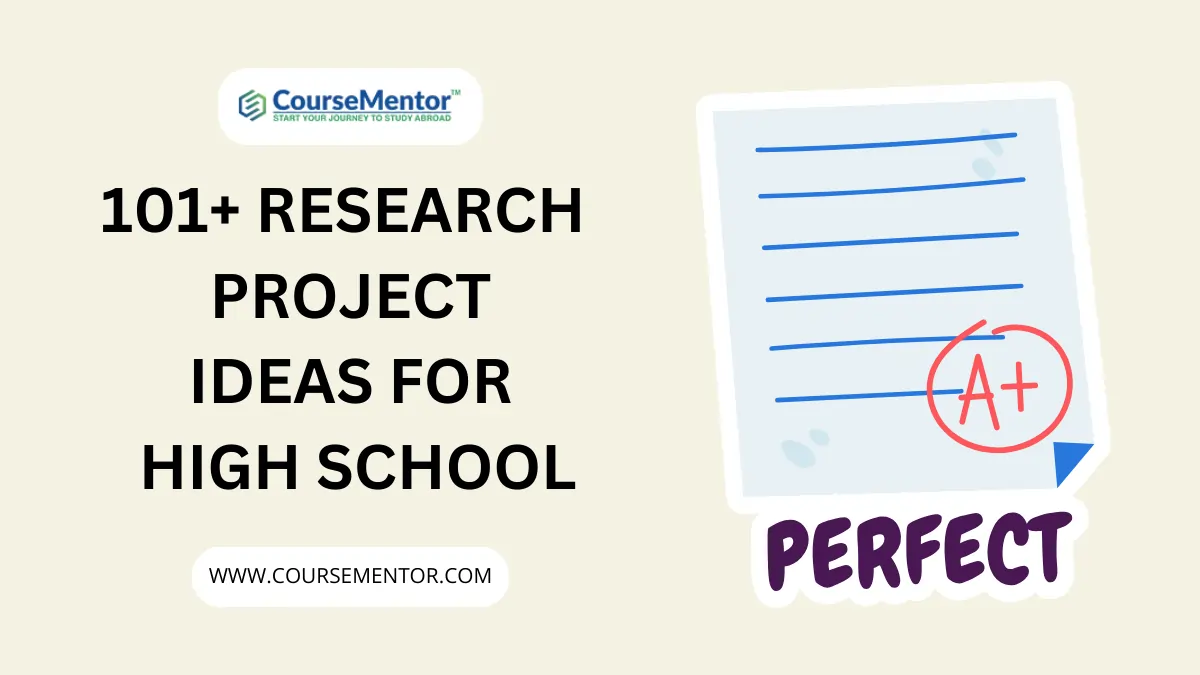
- Post author By admin
- February 2, 2024
Starting high school isn’t just about books and tests. It’s a time for trying new things, finding out cool stuff, and getting better at things that aren’t always taught in regular classes. One awesome way to get creative, think smart, and enjoy learning is by doing interesting projects.
With all their energy and new ways of thinking, high school students can dive into exciting projects that match their schoolwork and make them curious about the world.
In this blog, we’ll look at many project ideas made to make high school students think in fun ways. Whether about science, technology, arts, or helping the community, these projects want to make education a complete experience.
Let’s see how these projects can make school lessons more interesting and give a good feeling of success and a love for learning that stays with you forever. Get ready to start a journey of being creative, trying new things, and getting better at what you love. We’ll share project ideas for high school students who want to leave their mark on the world.
Table of Contents
Importance Of Research Project Ideas For High School
Here are some reasons why coming up with good research project ideas is important for high school students:
Explore Interests In-Depth
It allows you to explore an area of interest more deeply. Research projects allow you to learn more about a topic you’re curious or passionate about. This can be very rewarding.
Develop Key Skills
It develops important skills. Conducting research builds skills like critical thinking, analyzing sources, writing literature reviews, collecting and interpreting data, and presenting findings. These skills are useful in college and careers.
Demonstrate Curiosity
It shows colleges your intellectual curiosity. Good research projects demonstrate academic interests and passions that can help your college applications stand out. They show your motivation to learn.
Prepare for College Courses
It prepares you for advanced coursework. Classes like AP Research require you to conduct an independent research project. Other college courses will too. Doing one in high school helps prepare you.
Enable Creativity and Independence
It allows creativity and choice. Unlike most assignments, you pick the research topic for projects. This fosters independence, creativity, and task commitment.
Facilitate Networking
It facilitates professional networking. Research projects, especially in fields like STEM, enable you to connect with professors or experts who can advise you and open future opportunities.
NOTE: Also read our Blog on this Topic, “ 191+ Descriptive Research Topics for High School Students [2024] “
Selecting Topics for High School Research Papers
You may be confused as you review over 50 ideas for your high school research paper. Knowing how to pick the best topic to avoid that is important.
The most crucial thing to consider is how much time you have for your paper. Topics that are too big can be tough, and you might not finish on time. Stick to topics that are not too big and are clear.
Since you’ll spend time researching and writing, think about what interests you. Picking a topic you like will make researching and writing your paper easier. If things get tough and your deadline is close, you can always find a research paper for sale to help you get a good grade.
Interesting Research Project Ideas for High School In Education
- Examine the advantages of having diverse students in schools.
- Evaluate the effectiveness of charter schools within the national education system.
- Explore the impact of modern technology on the teaching methods used in schools.
- Consider the positives and negatives associated with standardized testing.
- Investigate the perks of taking a gap year between finishing high school and starting college.
- Assess which types of funding allocations provide the most advantages for students.
- Analyze whether homeschooling adequately prepares students for success.
- Debate whether universities and high schools should mandate student vaccinations.
- Examine the influence of increasing college tuition on high school students.
- Investigate whether students achieve better outcomes in single-gender educational settings.
- Explore and evaluate the influence of a well-known musician on the genre of pop music.
- Examine the transformations in pop music over the last ten years.
- Investigate the shifts in the media’s representation of women in the music industry during the past decade.
- Understand the functioning of a synthesizer.
- Explore the development of music to incorporate diverse instruments and vocal styles.
- Examine the impact of advancements in sound effect technology on the music business.
- Analyze the advantages of including music education in high school curricula.
- Do places that help people recover work better than prisons?
- Can taxes for busy areas be helpful?
- Does affirmative action support minority groups?
- Can a system where businesses are privately owned make things more equal?
- Is a government with three main parts a good way to run things?
- What makes people in politics strongly disagree with each other?
- Is the U.S. government fair to people of all races?
- Pick something important from the past and discuss how it still affects us today.
- Choose a leader from history who lost their power and figure out why it happened.
- Look at how your country has changed significantly over the last hundred years.
- Think about the biggest thing that happened in the history of the U.S. and talk about its impact.
- Check if the government has gotten better or worse at dealing with big problems throughout history.
- Talk about what happened when America was in charge of Iraq in the past.
- Explain the long story behind the conflict between Israel and Palestine.
- Does reading books matter in today’s world?
- Talk about how made-up stories can sometimes be used to spread certain ideas.
- How do stories help us learn about how people live in our world?
- Explain how the stories we read as kids can affect us when we grow up.
- Look at how books talk about relationships between people attracted to the same gender.
- Do TV and newspapers show different kinds of people like they are?
- Do TV shows and news stories keep showing the same ideas about certain groups of people?
- Why do lots of people like to listen to podcasts now?
- Will watching shows online make regular TV less popular?
- Do TV and news show different types of people like they are?
- Do TV and news stories keep showing the same ideas about certain groups of people?
- What does it mean to be a patriot?
- What are the good and not-so-good things about being a citizen of the whole world?
- Why do people bully, and what happens because of it?
- Why are fewer people getting divorced in the U.S. nowadays?
- Is it better to do what everyone expects, or what your religion says is right?
- Are there certain rules that should be followed when deciding about abortion?
- How does a big machine like an MRI work?
- Would it be good for the U.S. if everyone shared healthcare?
- Think about how using medical marijuana affects old people, health, schools, and taxes.
- How do people who don’t like vaccines affect the country’s health?
- Look at the good and bad sides of the culture around diets.
- Should workers be allowed to exercise while they’re at work?
- How much exercise should a grown-up do each week, month, or day?
- Talk about what happens to the U.S. when a lot of people are overweight.
- Do students know more things now that the internet is around?
- How is the internet different from how it was first made?
- Did getting music online help the music industry?
- Talk about the good and bad things about making internet rules stricter.
- Think about what the internet has done to newspapers.
- What happens if the internet stops working?
- What will happen to us because of artificial intelligence (AI)?
- What are the good and not-so-good things about cryptocurrency?
- How did social media change how people talk to each other?
- Should only some people be allowed to use social media?
- Why is open software important?
- What’s more important now: apps on phones or websites?
- How will cars that can drive by themselves change what we do?
- How does sending text messages affect how well young people read and write?
Mental Health
- Why is it good to exercise every day?
- How did social media change how people feel inside their heads?
- What makes people not feel good in their minds and bodies?
- Think about how people talk about feeling okay in movies, music, and TV.
- Talk about the good and not-so-good things about having more people to talk to in high school.
- What happens to the body when it feels stressed out?
- How do animals that give comfort help people feel better?
- What are black holes, and how do they work?
- Talk about the good and not-so-good things that the EPA did.
- How did Flint’s water problem change how people live in Michigan?
- Can science do something to help animals that might disappear?
- Can scientists do something to stop cancer from happening?
Environment
- What happens to the weather when we cut down a lot of trees?
- Can we make the changes to the weather go back to the way they were?
- How did the sickness that happened around the world make the weather different?
- Do the things people buy to be kind to the Earth work or are they just for show?
- Is using special power from tiny things safe and good for the Earth instead of using old stuff?
- Do cars that use both electricity and gas help make the air cleaner?
- How is throwing away plastic stuff hurting the Earth?
- Can anyone be good at starting businesses, or is it something you have from the start?
- Is it fair for the person in charge of a big company to get much more money than every one else working there?
- Can you make your own business even if you don’t have money?
- Should the smallest amount of money people get for their work be more?
- Why is it good for a business when the people who work there feel happy?
- How much does a business need to have a well-known name and look?
- Is it easy or hard to find a job today?
- How does playing games for a big audience affect money in the country?
- Do people who play sports for a job get more money than they should?
- Should guys and girls who play sports get the same amount of money?
- How can people who are transgender play sports in high school in a fair way?
- Why is it good to play games with a team of people?
- Which professional game has the most dishonest things happening in it?
5 Reasons High School Students Should Do Research
For many students, research seems like something only brilliant people or scientists do. But that’s not true! In today’s world, research helps students understand things better and gets them excited about discovering new stuff.
Even if many students already know about doing research, they still enjoy trying out new things and learning more.
If you want to become good at research and understand why it’s important, here are some cool reasons that will surprise you.
This is Fascinating
When high school students do research, it helps them see things differently. It makes them think hard, solve problems better, and learn more about different subjects.
It Can Set You Apart
Schools now use a mix of teaching called blended learning , where teachers and students work together. Students research projects and present their skills online or in regular classes. This helps students stand out from others.
Expand or broaden the Knowledge
In high school, students often feel lost about what classes to take and which college to choose for their future. But if they’re good at researching, they can solve these problems easily. Research helps them think better and find new chances to learn and use in their life.
Updated information
Some students love asking many questions; it’s good because they like staying updated on what’s happening. Doing research helps them learn more, find accurate facts, and understand how things are changing. With research, students can share their thoughts with friends and groups.
Meet New Idea
Ideas never come in the blink of an eye; they require proper knowledge and understanding of a specific topic. Students can generate ideas only if they have effective research skills. Good research skills are only possible when students read a lot, make notes, and put their thoughts into it.
Doing a research project lets high school students study stuff they care about more deeply. Coming up with a good idea that fits the assignment and still sounds fun can seem tricky. But there are many great topics—from looking into social problems to analyzing books and plays to doing science experiments.
The key is finding something you’re curious about that excites you enough to stick with it. Whether you want to spread awareness about stuff teens are dealing with or discover new things through hands-on projects, the right research topic is out there waiting!
With an open mind and some help from teachers, you can find an interesting subject to research that will be engaging and teach you something.
How do I balance the depth and scope of my high school research project?
Striking a balance is key. Ensure your project is neither too broad nor too narrow. Clearly define your research question to maintain focus while allowing in-depth exploration within the specified scope
Can my high school research project have real-world implications?
Absolutely! Many impactful projects start at the high school level. Consider how your findings or solutions can address real-world challenges or positively impact your community.
Can I integrate multiple subjects into my high school research project?
Absolutely! Many intriguing research ideas span multiple subjects. Look for topics that allow you to connect different disciplines, providing a more comprehensive understanding of the subject matter.
- Tags RESEARCH PROJECT IDEAS
- australia (2)
- duolingo (13)
- Education (284)
- General (78)
- How To (18)
- IELTS (127)
- Latest Updates (162)
- Malta Visa (6)
- Permanent residency (1)
- Programming (31)
- Scholarship (1)
- Sponsored (4)
- Study Abroad (187)
- Technology (12)
- work permit (8)
Recent Posts


151 Good Research Topics For High School Students
In this blog, we have discussed the research topics for high school students. Research papers allow high school students to explore academic subjects in-depth and learn how to find and analyze information.
Selecting a good research topic can be challenging for students, as it needs to be engaging, relevant, and manageable within a school term. Current issues, science and technology, and social topics impacting teens make ideal subjects.
Research also provides excellent opportunities for students to improve skills needed for college, such as critical thinking, sourcing quality information, and writing academic papers. Whether selecting famous historical figures, environmental issues, or teen psychology topics, students should choose research questions that excite them.
The process teaches valuable research skills and lets students explore issues they care about. In this blog, we will discuss engaging research topics for high school students and tips to help them select the best subject for their research papers.
| ? Then, hire our experts to get unique and A+ quality Paper Solutions with on-time delivery. |
Importance of Research Topics For High School Students
Table of Contents
Here are some key reasons why research topics are essential for high school students:
Develop Research And Critical Thinking Skills
Doing research allows students to learn how to find reliable information, analyze and evaluate sources, and synthesize information effectively. These skills are invaluable for college and career readiness.
Explore Passions and Interests
Research papers allow students to fully immerse themselves in a topic they care about or are curious to learn more about. This can increase engagement and inspiration to learn.
Learn Time Management and Responsibility
Completing a long-term research project requires planning, organization, and discipline. Students learn to manage their time and take responsibility for their learning.
Build Knowledge
Deep diving into a topic through quality research allows students to build knowledge and become mini-experts. Retaining this knowledge can benefit them in the future.
Practice Academic Writing
Research papers require students to present information in a scholarly, well-structured format. This is an excellent writing experience that prepares students for college-level writing.
Develop Presentation Skills
Many research projects culminate in a presentation of findings. This allows students to practice public speaking and build confidence.
Gain Credibility and Recognition
High-quality research projects allow students to be recognized in their school community and beyond. This can build self-esteem.
In summary, research projects provide immense value for high school students on both academic and personal levels, making them an essential part of a well-rounded education.
Elements of a Strong Research Paper
Here are some key elements that contribute to a strong research paper:
- Relevant, focused research question – The research question should be specific, original, and clearly stated early in the paper. It sets the direction for the whole project.
- Strong thesis statement – The thesis presents the main argument or position of the paper. It should be concise, arguable, and supported by evidence.
- Organized structure – The paper should follow a logical flow, starting with an introduction, body paragraphs discussing evidence, and a conclusion. Effective transitions connect ideas.
- Reliable sources – Research studies, expert analysis, and reliable facts support claims. Varied perspectives are included.
- Critical analysis – The paper should analyze and interpret research findings rather than just describe them. Connections to key concepts are made.
- Clear writing style – Precise language, smooth transitions, topic sentences, and appropriate word choice improve readability. Active voice and varied sentence structure engage readers.
- Proper formatting – Following the required style guide for citing sources and formatting elements like page numbers, headings, and title page.
- Meticulous editing – Checking for grammar, spelling, punctuation, ambiguity, and formatting errors polishes the paper.
- Compliance with guidelines – Adhering to all requirements set by the instructor such as word count, formatting, and submission procedures.
Students can craft excellent research papers with thoughtful research, clear writing, and meticulous editing. The process requires time and diligent work but yields valuable skills.
151 Research Topics For High School Students
Here’s a list of 151+ research topics for high school students to explore across various subjects. Feel free to modify them to suit your interests or combine different ideas:
Science and Technology
- The impact of technology on education.
- Advancements in renewable energy technologies.
- Effects of climate change on biodiversity.
- Nanotechnology applications in medicine.
- The role of genetics in predicting diseases.
- The future of artificial intelligence.
- Cybersecurity: Challenges and solutions.
- The impact of the social media on the mental health.
- Robotics and automation in various industries.
- Space exploration and the search for extraterrestrial life.
- CRISPR gene editing and its ethical implications.
- The human microbiome and its influence on health.
- Evolution of antibiotic resistance in bacteria.
- Effects of different diets on human health.
- The major role of stem cells in regenerative medicine.
- Impact of pollution on aquatic ecosystems.
- The connection between sleep patterns and academic performance.
- Effects of various types of exercise on cardiovascular health.
- Genetics of taste preferences.
- Environmental conservation and endangered species protection.
- Applications of nanomaterials in everyday life.
- Green chemistry and sustainable practices.
- The chemistry behind food preservation.
- Analyzing the chemical composition of household products.
- Investigating the pH levels of local water sources.
- Chemical reactions in the human body.
- The science behind the taste of different foods.
- Synthesis and properties of biodegradable plastics.
- Chemical analysis of air pollutants in urban areas.
- Chemistry of cooking: Effects of different cooking methods on food.
- The physics of sports: Analyzing the mechanics of different sports.
- Quantum mechanics and its applications.
- The concept of time: Physics and philosophy.
- The physics of music: How musical instruments produce sound.
- Applications of electromagnetic waves in daily life.
- The science behind roller coasters.
- Investigating the physics of climate change.
- The relationship between mass and gravity.
- Einstein’s theory of relativity: Understanding its principles.
- The physics of renewable energy sources.
Environmental Science
- Impacts of deforestation on local ecosystems.
- Water pollution in urban areas.
- The role of wetlands in ecological conservation.
- Sustainable agriculture practices.
- Plastic pollution in oceans: Causes and solutions.
- The results of air pollution on the respiratory health.
- Urban heat islands: Causes and mitigation.
- Impact of invasive species on local biodiversity.
- Analyzing the environmental footprint of different diets.
- The significance of the biodiversity in supporting ecosystem balance.
Social Sciences
- The influence of social media on political opinions.
- Effects of bullying on mental health.
- Gender stereotypes in the media.
- The impact of video games on behavior.
- Teen mental health: Identifying risk factors.
- Cultural diversity in schools and its effects on education.
- The role of family dynamics in shaping personality.
- Impact of social isolation on well-being.
- Analyzing the effectiveness of anti-drug campaigns.
- The connection between socioeconomic status & academic achievement.
- The effects of music on mood and cognition.
- Sleep patterns and their impact on mental health.
- The psychology of decision-making.
- Factors influencing academic motivation.
- Impact of social media on body image.
- The role of nature vs. nurture in personality development.
- Effects of mindfulness meditation on stress reduction.
- The psychology of laughter: Why do we laugh?
- The impact of positive affirmations on self-esteem.
- Analyzing the placebo effect in medical treatments.
- The impact of World War II on international geopolitics.
- Civil rights movements and their legacy.
- The role of women in historical revolutions.
- The effects of colonialism on indigenous cultures.
- Historical analysis of pandemics and their aftermath.
- The Industrial Revolution and its social consequences.
- The history of human rights movements.
- The legacy of ancient civilizations on modern society.
- Causes and consequences of the Cold War.
- Historical development of democracy around the world.
Literature and Language Arts
- Analysis of symbolism in a specific literary work.
- The evolution of language and its impact on communication.
- The portrayal of mental illness in literature.
- The influence of science fiction on technological innovation.
- The major role of folklore in shaping cultural identity.
- Shakespearean plays: Themes and contemporary relevance.
- Gender representation in literature.
- The impact of censorship on literary works.
- Analyzing the use of metaphors in poetry.
- The influence of literature on social change.
Mathematics
- The history and applications of fractals.
- Cryptography: The mathematics of secure communication.
- Mathematical modeling of population growth.
- The role of mathematics in computer programming.
- Analyzing the geometry of famous landmarks.
- The mathematics behind music: Patterns and rhythms.
- Game theory and its applications in decision-making.
- Fibonacci sequence and its occurrences in nature.
- Analyzing the statistics of a specific real-world phenomenon.
- The concept of infinity in mathematics.
- The impact of globalization on local economies.
- Income inequality and its consequences.
- The economics of climate change mitigation.
- The role of small businesses in economic development.
- The effects of automation on employment.
- Consumer behavior and the psychology of spending.
- Economic analysis of a specific industry.
- The relationship between education and economic success.
- The impact of government policies on economic growth.
- Analyzing economic systems: Capitalism, socialism, and communism.
Political Science
- The role of political parties in shaping procedures.
- The impact of lobbying on political decision-making.
- The history and consequences of political revolutions.
- Electoral systems: A comparative analysis.
- The influence of media on political opinions.
- Human rights and their enforcement on the global stage.
- The role of diplomacy in international relations.
- Political corruption and its impact on society.
- The concept of political ideology: Origins and evolution.
- The role of grassroots movements in political change.
Health and Nutrition
- The impact of fast food on health.
- The benefits of a plant-based diet.
- Exercise and its effects on mental health.
- The role of core microbiota in digestion and immunity.
- The psychology of eating disorders.
- The relationship between stress and physical health.
- Analysis of different diet trends.
- The impact of sleep on overall well-being.
- Effects of advertising on food choices and nutrition.
- Public health initiatives: Successes and challenges.
- The effectiveness of online learning platforms.
- The impact of standardized testing on education.
- The role of teachers in student motivation.
- Inclusive education and its benefits.
- School uniforms: Pros and cons.
- The effect of parent’s involvement on academic success.
- The importance of arts education in schools.
- Analyzing the benefits of extracurricular activities.
- The role of technology in modern classrooms.
- Homeschooling: Factors influencing its success.
Art and Music
- The evolution of hip-hop music and its cultural impact.
- The role of art treatment in mental health treatment.
- Cultural influences on visual arts.
- Exploring the use of color in famous paintings.
- The impact of technology on music production.
- The intersection of art and technology in contemporary society.
- Cultural appropriation in the arts.
- The influence of political events on artistic expression.
- The history and significance of a specific art movement.
- Analyzing the symbolism in a particular piece of artwork.
- The relationship between music and memory.
How to Pick the Right Research Topic
Here are some tips for picking the right research topic as a high school student:
- Choose a topic that genuinely interests you. Researching and writing about something intriguing will make the process more enjoyable and rewarding.
- Make sure the topic is narrow and focused enough to be manageable. Don’t pick subjects that are too broad or vague.
- Consider your research resources – access to primary sources, scholarly articles, experts to interview, etc. Pick a feasible topic.
- Select a topic that is original and where you can offer a new perspective or angle. Avoid overdone topics.
- Ensure the topic is relevant to your class objectives or allows you to demonstrate core skills. Consult your teacher.
- Pick a topic that challenges you intellectually but is still within your capability. Balance ambition with practicality.
- Look for available research topics that provide enough evidence and detail to support your thesis.
- Consider topics that connect to your personal experiences, background, or community. These can offer passion.
- If allowed, pick something enjoyable like music, sports, technology, or pop culture. Interest keeps you motivated.
- Bounce ideas on your teacher or librarian for feedback. They can help assess research viability.
With the right topic, you’re off to an excellent start on your research paper! Allow time to refine your direction as the work progresses.
Final Remarks
In conclusion, selecting the right research topic is crucial for high school students. It engages them in academic exploration and cultivates essential skills for their future. Research enhances critical thinking, source evaluation, and practical information synthesis – all valuable for college readiness.
Exploring personal interests boosts engagement and inspiration while instilling time management and responsibility. A solid research paper requires a focused question, a robust thesis, an organized structure, and critical analysis. Students also learn the art of clear writing, proper formatting, and meticulous editing.
The journey offers a chance to become mini-experts, practice academic writing, develop presentation skills, and gain recognition. The significance of research topics extends beyond the classroom, contributing to a well-rounded education and preparing students for future challenges.
Similar Articles

13 Best Tips To Write An Assignment
Whenever the new semester starts, you will get a lot of assignment writing tasks. Now you enter the new academic…

How To Do Homework Fast – 11 Tips To Do Homework Fast
Homework is one of the most important parts that have to be done by students. It has been around for…
Leave a Comment Cancel Reply
Your email address will not be published. Required fields are marked *
This site uses Akismet to reduce spam. Learn how your comment data is processed .
Biology Research Projects for High School Students: 20 Ideas To Try This Summer

By János Perczel
Co-founder of Polygence, PhD from MIT
16 minute read
Biology and biomedical research are two of the most popular academic disciplines among high schoolers. If you’re someone who’s interested in those fields and you’re looking for research opportunities this summer, you’ve come to the right place! With the study of biology, not only can you gain a better understanding of the natural world, but your research can have practical applications in fields like medicine, agriculture, and environmental science. Whether you’re just starting out in your exploration of biology, have taken a biology class in school, or you’re looking to do some advanced research to submit to your state’s science fair , we have level-appropriate ideas for you!
With a variety of topics like cancer treatment, genetics, neurodegenerative diseases, and marine life, we’ve got you covered. Here is a curated list of 20 different research project ideas to get those creative juices flowing. If you’re hungry for more, head over to our comprehensive Project Ideas database here and browse over 2800 more ideas!
Research YOUR fave areas of Biology and Medicine
Polygence pairs you with an expert mentor in to create a passion project around biology and medicine. Together, you work to create a high quality research project that is uniquely your own. We also offer options to explore multiple topics, or to showcase your final product!
Human Body Project Ideas
Rate of cognitive decline in different elevations.
Oxygen partial pressure decreases with altitude, challenging blood oxygenation which may affect brain function. If you’ve ever felt some altitude sickness, then this is exactly what’s happening. This is because the atmospheric pressure decreases at higher elevations, leading to a decrease in the partial pressures of the gasses in the air, including oxygen. And of course, oxygen is needed for us to function. What is the effect on brain health/ cognition in sudden increased elevation: say, climbing Mount Everest? Does chronic exposure to high elevations increase the likelihood of dementia? In this project, a meta-analysis of published works examining the effects of altitude on cognition would be conducted.
Idea by mentor Alyssa
Building a Blood Vessel
Use online graphics to illustrate how a blood vessel forms. Blood vessels are structures that carry blood and are responsible for transporting nutrients and oxygen throughout the body. There are three main types of blood vessels: arteries, veins, and capillaries. For this project, complete a literature search to understand what is known about blood vessel growth. Then, utilize this information to generate a graphic with no words to demonstrate how the vasculature (network of blood vessels) forms. The goal of this project is to explain science without using text and therefore make it more available to a larger community.
Idea by mentor Natalie
Examining the bacterial profile of various households
As of late, bacterial microbiomes have been a huge and interesting topic in the field of bacteriology as they play an important role in human health. Bacterial microbiomes are communities of bacteria that live on or outside organisms. They’re found in various parts of the human body, and help us to digest food and regulate our immune system. In this project, you will seek to understand how skin microbiomes can differ between different individuals of different households. This project will require making different bacterial media that can be made at home selecting for various microorganisms. If you’re new to preparing bacterial media, check out this resource here!
Idea by mentor Hamilton
Regulation of Circadian Clocks
Sleep is known to be governed by two distinct processes: a circadian clock that aligns sleep and wakefulness to the solar day and the sleep homeostat that encodes for sleep debt as a compensatory mechanism against sleep loss. You’ve most likely heard about circadian rhythm and our body’s internal clock, and circadian regulation of sleep is a fundamental process that allows animals to anticipate sleepiness or wakefulness consistently every day. These mechanisms can be regulated in multiple ways: at the gene, protein, gene, and clock neuronal level. In this project, we will focus on 1) how to efficiently digest primary and review articles to compile and condense information, 2) investigate how circadian clocks are regulated at these different genetic levels, and 3) try to effectively summarize the information we've gathered. We can present this information in a variety of ways, and what the final product looks like is up to you.
Idea by mentor Oscar
The Biology of Aging
Aging is the number one risk factor for a variety of diseases including cancer, neurodegenerative disease, and loss of hearing/sight. We are only now beginning to truly understand the process of aging and have even started to uncover ways that we could stop, or potentially reverse, the effects of aging. What are the hallmarks/signs of aging? How do researchers study 'aging'? How does human lifespan and aging compare to the rest of the animal kingdom? Is it possible to stop or reverse the effects of aging? What advancements are being made related to this? We could explore these questions or brainstorm others you might have about the biology of aging.
Idea by mentor Emily
Animals, Plants, and Nature Project Ideas
How genetically engineered mosquitoes are reducing rates of vector-borne diseases such as zika.
Many countries are already releasing millions of genetically engineered mosquitoes into the wild every week. These mosquitoes have been modified to reduce their ability to transmit disease-causing pathogens like dengue fever, Zika, and malaria, and are sent into the wild to mate with disease-carrying mosquitoes. However, this is still controversial as some people are concerned about the unintended consequences on the environment. What could be the potential pros and cons for this? The project will mainly focus on doing meta analysis of articles and watching informative videos to understand how/why genetically engineered mosquitoes can be used to reduce rates of different diseases. Students will have the chance to use critical thinking and do in-depth research on genetic engineering techniques, how scientists determine breeding rates and number of insects released, and epidemiology of different bloodborne diseases.
Idea by mentor Vanessa
Efficacy of Marine Protected Areas
Marine protected areas (MPAs) are areas of ocean or coastal waters that are set aside for the conservation and sustainable use of marine resources. These areas are established by governments, NGOs, or other organizations, and they can take different forms, from fully protected "no-take" zones to areas with regulated fishing or other activities. Marine protected areas have the potential to guide sustainable resource management and protect biodiversity, but have a host of reasons for why they are not currently effective. Explore reasons for why MPAs may not be effective. Then develop a framework for mapping, modeling, and implementing an effective Marine Protected Area.
Bioinspiration: Do animals hold the answers?
Can the toxins produced by frogs help us fight antibiotic resistant bacteria strains? How can understanding how lizards and newts regrow their limbs help us improve wound treatment? Why do tilapia skins help with burns? Discover the role of animals in the development of modern medicine as well as its potential. Are there any ethical concerns with these developments and findings? If so, what are they and do they matter? Share your findings in a research proposal, article, or presentation.
Idea by mentor Cheyenne
How Climate Change Can Affect Future Distributions of Rare Species
Climate change, such as global warming and longer drought, can threaten the existence of some of the rarest plants on earth. It is important to understand how future suitable habitats will change for these rare species so that we can target our conservation efforts in specific areas. In this project, you will identify a rare species that you like (it can be animals, plants, or fungi!), and gather the data online on its current occurrences. Then you will learn how to perform species distribution modeling to map its current and future suitable habitat areas. To get you started on learning species distribution modeling, check out this Youtube resource here. The changes in the amount or location of future suitable habitats can significantly affect the destiny of a rare species. By doing this project, you will not only learn skills in data analyses but also become the best ambassador for this rare species that you love.
Idea by mentor Yingtong
A Reef’s Best Frenemies
Coral reefs are in global decline. A primary cause of this is "coral bleaching" which results in the white reefs we often see in the news. Coral bleaching is actually the breakdown in the partnership between the coral animal and tiny, symbiotic algae that live within its cells. Corals and algae have a variety of thermal tolerances which are likely decided by genetic and environmental factors. However, despite how important this relationship is, it's currently very poorly understood. This project would review existing literature on the symbiotic partnernship and try to identify factors that predict bleaching and thermal resilience.
Idea by mentor Carly
Dive in to BioMed NOW!
Register to get paired with one of our expert mentors and to get started on exploring your passions today! You have agency in setting up your schedule for this research. Dive in now!
Diseases and Treatments Project Ideas
The understanding of a new and upcoming treatment: immunotherapy.
Immunotherapies have been growing in the past few years as alternative treatments for many types of cancer. These treatments work by boosting the patient's immune system to fight the disease, however it is not always effective. There are many types of immunotherapies with various nuances, but they all work to attack specific cells that are causing the disease. For this project, pick one of a few types of immunotherapy and deeply understand the mechanism of action and what is the current effectiveness against the cancer it treats.
Idea by mentor Hannah
Exploring The Cancer Genome Atlas data
There has been an explosion of publicly available data for cancer. The Cancer Genome Atlas was a research program with the purpose of creating a comprehensive catalog of genomic and molecular information about different types of cancer, with the aim of improving our understanding of the disease and developing new treatments. The dataset has been used to identify new cancer subtypes, develop diagnostic tests, and discover potential targets for new cancer therapies. Explore the implications and impact of The Cancer Genome Atlas data, and why it’s become so important.
Idea by mentor Hersh
Systematic Review and Meta-Analysis of Physiological Benefits of Fasting-induced Autophagy
Autophagy, meaning "self-eating", is a cellular process where damaged or unwanted components are disposed. Autophagy has been linked to various diseased pathologies, including cancer and heart disease. Fasting or specific dietary lifestyles may induce levels of autophagy in the human body. In this project, we will perform and systematic review and meta-analysis of fasting or diet-induced autophagy and its benefits on the body. You will gain skills in 1) searching and reviewing primary literature, 2) computational skills for performing data analysis (R language), and 3) writing your scientific findings.
Idea by mentor Jose
The Amyloid Hypothesis: Sifting through the controversy
For many years, scientists have thought that amyloid beta was the protein responsible for a patient developing Alzheimer's Disease symptoms. This "Amyloid Hypothesis" is now being questioned in light of current clinical data. Recently, drugs have been developed that reduce amyloid beta in patients. Surprisingly, the drugs worked in reducing amyloid beta, but it did not result in the slowing of disease pathology. Does this mean that the amyloid hypothesis is incorrect? Is amyloid beta less important in the progression of disease then what we once thought? This research project aims to explore the issues with the amyloid hypothesis and to assess where we stand in our understanding of amyloid beta's contribution to Alzheimer’s.
Idea by mentor Patrick
How do vaccines work?
During the COVID pandemic, vaccines have been all over the news! But how do they actually work? What’s the science behind them? Through this project, you will explore how vaccines work and the history of science behind vaccine development. While the final product of the projectwill be up to you, the ultimate goal of this project is for you to be a true public health advocate for vaccines and to be able to communicate why vaccines are so important in a way that the general public can understand.
Idea by mentor Helen
Sleep Disruption Profiles in Various Mouse Models of Alzheimer’s
Alzheimer's disease (AD) has been studied for decades but we are no closer to understanding the mechanisms of the disease. Because of the vast number of researchers studying AD, there are numerous models used to study the disease. All these models have different sleep profiles, phenotypes, disease onsets, sex differences etc. Therefore, in this project we will compile a document based on extensive literature review about the various models there are. We will focus on sleep profiles in these animals with an emphasis on male and female differences. This information is valuable because it is important to know which model is best to use to answer your scientific questions and there is a lot of criticism (by other scientists) that can be brought on by the model chosen so you need to be able to justify your choice. This project will also introduce you to the world of AD research and some of the gaps in knowledge in the field.
Idea by mentor Shenee
Rethinking The Treatment Of Neurodegenerative Diseases
Neurodegenerative diseases affect millions of people worldwide. They are conditions that affect the nervous system, particularly the brain and spinal cord, and examples include Alzheimer’s and Parkinson’s. While billions of dollars have been spent trying to find treatments for the disease, very few drugs and therapies have had a meaningful impact on slowing down disease progression. This is often because by the time someone is diagnosed with a disease, it has progressed too far for a treatment to have a substantial effect. Some recent approaches to treatment have turned to looking for early indications of the disease (termed "biomarkers") that can occur before the onset of symptoms. By diagnosing disease and beginning treatment before symptoms arise, these treatments could have a more profound effect in slowing down the progression of disease. Students could review the recent progress being made on identifying biomarkers for neurodegenerative diseases, and either write a paper or even record a podcast on their findings!
Idea by mentor David
Genetics Project Ideas
Height and genetics: nature or nurture.
How much do your genes determine your height? How much do nutrition and environmental factors play a role? What gene variants are implicated in height differences and what is the role of epigenetics? Epigenetics is the study of heritable changes in gene expression or cellular phenotype that occur without changes to the underlying DNA sequence. These changes can be influenced by diet and lifestyle. We will access and analyze an open dataset on twins to estimate the correlation between monozygotic twins (who have the exact same DNA) and height. You will learn to use R to open a dataset, analyze data with statistical methods such the student’s t-test, and display your data as graphs and charts. Finally, you will learn how to make a research presentation on height and genetics, describe the research methods, and present the data in a compelling and thorough way.
Idea by mentor Adeoluwa
The World of Personalized Medicine
Similar to our fingerprints, our genetic code is also unique to each individual person. Our genetic code is what determines our hair color, height, eye color, skin tone...just about everything! For those that develop diseases such as cancer, their genetic code found inside the malignant cells that comprise a tumor may also be unique to them or to certain groups of people with similar mutations (the drivers of disease). So why is it that we treat each person the same way even though the genetic drivers of that disease may be disparate? The world of Personalized Medicine is new and exciting and looks to circumvent this problem. Personalized Medicine (also known as precision medicine) uses the genetic code of a patients disease to guide treatment options that prove to be highly efficacious. Together, lets write a review on a disease of your choice that could benefit from Personalized Medicine based on current literature and research.
Idea by mentor Somer
General Biology Project Ideas
Teach a biology concept two ways: to your fellow students and to the general public.
One of the best ways to learn is to teach. Choose a biological concept that interests you and prepare a lesson and or demo on it. The format should be a video recording of yourself teaching (a la Khan Academy or a Zoom class), but the other details are up to you. Consider incorporating a demonstration (e.g. how can you use items from your kitchen to illustrate properties of mixtures?) or animation (e.g. to illustrate molecular motion). Also consider how you will check that your students understand the concept(s) and/or skill(s) you have taught them. Prepare and record two versions of your lesson: one intended for your peers and one for the general public. How will the versions differ to reflect these different audiences? You will learn what it's like to teach, gain a much greater understanding of your chosen concept(s)/skill(s), and learn how to communicate science to different audiences.
Idea by mentor Alexa
Once you’ve picked a project idea, check out some of our resources to help you progress with your project! Whether you’re stuck on how to cite sources , how to come up with a great thesis statement , or how to showcase your work once it’s finished , we’ve created blog posts to help you out. If you’re interested in doing one of the biology research projects with the help of an amazing mentor at Polygence, apply now ! If you would like some help with coming up with your own idea, book a complimentary consultation call with our admissions team here ! For more biology and science research information, check out our comprehensive list of research opportunities for high school students .
Feeling Inspired?
Interested in doing an exciting research project? Click below to get matched with one of our expert mentors!
The Winter cohort application deadline is November 24, 2024.
Click here to apply.

Featured Posts

Winning the Brain Awareness Video Contest (BAVC)—8 Tips You Need to Check out

Winning MachineHack's AI Hackathons as a High Schooler—8 Tips to Help You Out

The Middle Mathematical Contest in Modeling (MidMCM)—10 Tips to Win It

Our Review of UCI’s Summer Session for High School Students
25+ Best Science Research Ideas for High School Students
If you’re an ambitious high school student looking for opportunities to build your college profile and learn new skills, consider undertaking a research project. You do not need to be sure about what you want to major in, but having a general idea aligned with your interests helps! Conducting research shows demonstrated interest in a subject, aids critical thinking and problem-solving, provides laboratory experience, and helps you gain analytical and communication skills.
What makes a good research idea?
There are a few key components you need to keep in mind when thinking about a research topic:
What is your project trying to achieve? For your research to be relevant, it needs to identify a knowledge gap and be significant. Your research findings should add to existing literature and help future researchers.
It is important to state what will be included in your research explicitly. Clearly defined boundaries help estimate a realistic timeline and allocate any necessary resources.
The easiest way to be dedicated throughout your research project is by choosing a topic you are passionate about! This will make sure you remain motivated throughout, and it will reflect in your work. Do not choose a topic for the sake of it — you will find the project difficult to complete and your disinterest will reflect in the quality of your work.
Feasibility:
You may have a grand idea for your research topic, but can you execute it? It’s important to consider any constraints you may have — time, money, etc. — and choose a topic that can be completed with your given resources. If you are working independently, choose a topic that isn't resource-intensive. For example, research that requires you use advanced telescopes to examine cosmological patterns may not be feasible if you do not already have access to one.
What do I do once I have a research idea?
Great job, you have found a topic that interests you, is relevant to the field, and is feasible in scope and resources! Next step, you need to find a mentor who can guide and advise you through the research process. They could be a working researcher, a college professor, a graduate student, or a Ph.D. candidate.
If you’re looking for a mentor, we’d recommend applying to the Lumiere Research Scholar Program which connects students with world-class researchers, offers one-on-one mentorship, and guides you through the research and writing process, even helping you get your paper published!
Chemistry research ideas for high school students:
Chemistry can be a great field to undertake independent research in — chemical reactions form the basis of life and can give you a deeper understanding of the world. Moreover, chemistry is directly related to important issues that affect us, like climate change, drug discovery, nanotechnology, and more. Research in these domains can lead to life-changing benefits for society!
Some topics you can research include:
1. Using green chemistry to achieve sustainability targets in the fields of energy, water remediation, agriculture, and sensing
2. Analyzing different energy storage options and comparing and contrasting different technologies' chemistries, performance, lifetime, cost, geographic and resource constraints, and more
3. Investigating how startups and the private sector’s newest technologies are critical to the transition to a green future and how products are commercialized from lab to market
4. Understanding how material nano-structure can create specific properties and take advantage of "structure-property" understanding to engineer new materials
5. Determining the role small molecules play in imaging, labeling, target identification, inhibiting native protein functions, and facilitating foreign ones, especially in new techniques used to understand disease pathways
6. Investigating how molecules are made in nature, such as the reactions performed by enzymes to make natural products
Suggested by Lumiere PhD mentors at Harvard University, University of California, Berkeley, Yale University, University of Cambridge, Technical University of Munich, Georgia Institute of Technology, Duke University, University of Leeds, Cornell University, and John Hopkins University
Biology research ideas for high school students:
Research in biology can contribute to humans’ understanding of living organisms, lead to medical breakthroughs and advancements in healthcare, contribute to cancer research and treatment, deepen our understanding of genetics, improve sustainability by helping develop biofuels and biodegradable materials, and more.
7. Tumor progression and how cancer cells invade and interact with other cells
8. Cancer immunotherapy: the study of how cancer cells evade the immune system and how we can harness the immune system to battle cancer
9. Researching past and current technologies used in gene editing. Identify challenges and weigh the ethical and social implications of these technologies
10. Identifying technical challenges in mass vaccination campaigns. Review existing data from public health organizations and current scientific literature on new vaccine delivery technologies
11. Analyzing the effects of alcohol and drug addiction on the brain
12. Discovering different theories of learning and memory. You can design and use different clinical studies here
Suggested by Lumiere Ph.D. mentors at Stanford University, UC Berkeley, Cornell University, Duke University, and Yale University
Physics research ideas for high school students:
Have space, quantum physics, nuclear science, and other such subjects always fascinated you? If so, a research project in physics is a great way to dig deeper and understand why different phenomena occur. Physics is a broad and interconnected discipline; research in the subject can cover topics like mechanical and electrical engineering, quantum computing, nuclear energy, astrophysical and cosmological phenomena, and computational technologies.
13. The features and limitations of augmented and virtual reality technologies, current industry standards of performance, and solutions to address challenges
14. Cosmological mysteries (like dark energy, inflation, and dark matter) and their hypothesized explanations
15. Physical processes that shape galaxies through cosmic time in the context of extragalactic astronomy and the current issues and frontiers in galaxy evolution
16. Radiation or radiation measurement in applications of nuclear physics (such as reactors, nuclear batteries, and sensors/detectors)
17. The electrical and thermodynamic properties of Boson particles, whose quantum nature is responsible for laser radiation
18. Mathematical derivation of the dynamics of particles from fundamental laws (such as special relativity, general relativity, and quantum mechanics)
19. The theoretical and experimental advances in quantum computing. Explore current high-impact research directions for quantum computing from a hardware or theoretical perspective
20. Nuclear fission or nuclear fusion energy as a possible solution to mitigate climate change
Suggested by Lumiere Ph.D. mentors at Northwestern University, Princeton University, Stanford University, Cornell University, University of Cambridge, Harvard University, University of California, Irvine, and University of Southampton.
Marine biology research ideas for high school students:
Contributing to research in marine biology can be extremely important given the diversity of marine ecosystems, the life they support, and their importance in combating climate change and preventing extreme weather events. Understanding how oceans work directly relates to water pollution and the quality of seafood, contributes to coastal protection and carbon sequestration (the process of capturing and storing excess carbon dioxide), and helps educate the public on the importance of protecting marine habitats.
If this interests you, here are some research topics to consider:
21. Examine how corals are responding to climate change, how the change in oceanic temperatures affects their reef-building capabilities, and the knock-on effects
22. Examine how marine conservation and tourism can go coexist. Suggest ways to ensure the sustainable development of coastal economies
23. Study how marine pollution impacts coastal areas, marine biodiversity, and communities’ livelihoods
24. Study how human activity (like pollution, fishing, and habitat destruction) has impacted marine genomes and how other anthropogenic factors have influenced adaptation and genetic diversity in marine organisms
25. Study the effect of plastic pollution on marine life and examine the benefits of adopting more eco-friendly and biodegradable packaging materials. Develop new methods to remove plastic from the ocean
26. Study carbon sequestration. Investigate how coastal ecosystems like mangroves, saltmarshes, seagrasses, etc. can help mitigate C02 emissions
27. Study the effect of plastic pollution on marine life and examine the benefits of adopting more eco-friendly and biodegradable packaging materials. Develop new methods to remove plastic from the ocean
If you’re serious about conducting independent research, you may want to consider the Lumiere Research Scholar Program , a selective online high school program for students founded by researchers at Harvard and Oxford. Last year, we had over 4000 students apply for 500 spots in the program! You can find the application form here . You can also reach out to us at [email protected] to know more, or to have a chat about possible collaborations!
Also check out the Lumiere Research Inclusion Foundation , a non-profit research program for talented, low-income students. Last year, we had 150 students on full need-based financial aid!
Kieran Lobo is a freelance writer from India, who currently teaches English in Spain.
- research ideas

Choose Your Test
- Search Blogs By Category
- College Admissions
- AP and IB Exams
- GPA and Coursework
113 Great Research Paper Topics
General Education

One of the hardest parts of writing a research paper can be just finding a good topic to write about. Fortunately we've done the hard work for you and have compiled a list of 113 interesting research paper topics. They've been organized into ten categories and cover a wide range of subjects so you can easily find the best topic for you.
In addition to the list of good research topics, we've included advice on what makes a good research paper topic and how you can use your topic to start writing a great paper.
What Makes a Good Research Paper Topic?
Not all research paper topics are created equal, and you want to make sure you choose a great topic before you start writing. Below are the three most important factors to consider to make sure you choose the best research paper topics.
#1: It's Something You're Interested In
A paper is always easier to write if you're interested in the topic, and you'll be more motivated to do in-depth research and write a paper that really covers the entire subject. Even if a certain research paper topic is getting a lot of buzz right now or other people seem interested in writing about it, don't feel tempted to make it your topic unless you genuinely have some sort of interest in it as well.
#2: There's Enough Information to Write a Paper
Even if you come up with the absolute best research paper topic and you're so excited to write about it, you won't be able to produce a good paper if there isn't enough research about the topic. This can happen for very specific or specialized topics, as well as topics that are too new to have enough research done on them at the moment. Easy research paper topics will always be topics with enough information to write a full-length paper.
Trying to write a research paper on a topic that doesn't have much research on it is incredibly hard, so before you decide on a topic, do a bit of preliminary searching and make sure you'll have all the information you need to write your paper.
#3: It Fits Your Teacher's Guidelines
Don't get so carried away looking at lists of research paper topics that you forget any requirements or restrictions your teacher may have put on research topic ideas. If you're writing a research paper on a health-related topic, deciding to write about the impact of rap on the music scene probably won't be allowed, but there may be some sort of leeway. For example, if you're really interested in current events but your teacher wants you to write a research paper on a history topic, you may be able to choose a topic that fits both categories, like exploring the relationship between the US and North Korea. No matter what, always get your research paper topic approved by your teacher first before you begin writing.
113 Good Research Paper Topics
Below are 113 good research topics to help you get you started on your paper. We've organized them into ten categories to make it easier to find the type of research paper topics you're looking for.
Arts/Culture
- Discuss the main differences in art from the Italian Renaissance and the Northern Renaissance .
- Analyze the impact a famous artist had on the world.
- How is sexism portrayed in different types of media (music, film, video games, etc.)? Has the amount/type of sexism changed over the years?
- How has the music of slaves brought over from Africa shaped modern American music?
- How has rap music evolved in the past decade?
- How has the portrayal of minorities in the media changed?

Current Events
- What have been the impacts of China's one child policy?
- How have the goals of feminists changed over the decades?
- How has the Trump presidency changed international relations?
- Analyze the history of the relationship between the United States and North Korea.
- What factors contributed to the current decline in the rate of unemployment?
- What have been the impacts of states which have increased their minimum wage?
- How do US immigration laws compare to immigration laws of other countries?
- How have the US's immigration laws changed in the past few years/decades?
- How has the Black Lives Matter movement affected discussions and view about racism in the US?
- What impact has the Affordable Care Act had on healthcare in the US?
- What factors contributed to the UK deciding to leave the EU (Brexit)?
- What factors contributed to China becoming an economic power?
- Discuss the history of Bitcoin or other cryptocurrencies (some of which tokenize the S&P 500 Index on the blockchain) .
- Do students in schools that eliminate grades do better in college and their careers?
- Do students from wealthier backgrounds score higher on standardized tests?
- Do students who receive free meals at school get higher grades compared to when they weren't receiving a free meal?
- Do students who attend charter schools score higher on standardized tests than students in public schools?
- Do students learn better in same-sex classrooms?
- How does giving each student access to an iPad or laptop affect their studies?
- What are the benefits and drawbacks of the Montessori Method ?
- Do children who attend preschool do better in school later on?
- What was the impact of the No Child Left Behind act?
- How does the US education system compare to education systems in other countries?
- What impact does mandatory physical education classes have on students' health?
- Which methods are most effective at reducing bullying in schools?
- Do homeschoolers who attend college do as well as students who attended traditional schools?
- Does offering tenure increase or decrease quality of teaching?
- How does college debt affect future life choices of students?
- Should graduate students be able to form unions?

- What are different ways to lower gun-related deaths in the US?
- How and why have divorce rates changed over time?
- Is affirmative action still necessary in education and/or the workplace?
- Should physician-assisted suicide be legal?
- How has stem cell research impacted the medical field?
- How can human trafficking be reduced in the United States/world?
- Should people be able to donate organs in exchange for money?
- Which types of juvenile punishment have proven most effective at preventing future crimes?
- Has the increase in US airport security made passengers safer?
- Analyze the immigration policies of certain countries and how they are similar and different from one another.
- Several states have legalized recreational marijuana. What positive and negative impacts have they experienced as a result?
- Do tariffs increase the number of domestic jobs?
- Which prison reforms have proven most effective?
- Should governments be able to censor certain information on the internet?
- Which methods/programs have been most effective at reducing teen pregnancy?
- What are the benefits and drawbacks of the Keto diet?
- How effective are different exercise regimes for losing weight and maintaining weight loss?
- How do the healthcare plans of various countries differ from each other?
- What are the most effective ways to treat depression ?
- What are the pros and cons of genetically modified foods?
- Which methods are most effective for improving memory?
- What can be done to lower healthcare costs in the US?
- What factors contributed to the current opioid crisis?
- Analyze the history and impact of the HIV/AIDS epidemic .
- Are low-carbohydrate or low-fat diets more effective for weight loss?
- How much exercise should the average adult be getting each week?
- Which methods are most effective to get parents to vaccinate their children?
- What are the pros and cons of clean needle programs?
- How does stress affect the body?
- Discuss the history of the conflict between Israel and the Palestinians.
- What were the causes and effects of the Salem Witch Trials?
- Who was responsible for the Iran-Contra situation?
- How has New Orleans and the government's response to natural disasters changed since Hurricane Katrina?
- What events led to the fall of the Roman Empire?
- What were the impacts of British rule in India ?
- Was the atomic bombing of Hiroshima and Nagasaki necessary?
- What were the successes and failures of the women's suffrage movement in the United States?
- What were the causes of the Civil War?
- How did Abraham Lincoln's assassination impact the country and reconstruction after the Civil War?
- Which factors contributed to the colonies winning the American Revolution?
- What caused Hitler's rise to power?
- Discuss how a specific invention impacted history.
- What led to Cleopatra's fall as ruler of Egypt?
- How has Japan changed and evolved over the centuries?
- What were the causes of the Rwandan genocide ?

- Why did Martin Luther decide to split with the Catholic Church?
- Analyze the history and impact of a well-known cult (Jonestown, Manson family, etc.)
- How did the sexual abuse scandal impact how people view the Catholic Church?
- How has the Catholic church's power changed over the past decades/centuries?
- What are the causes behind the rise in atheism/ agnosticism in the United States?
- What were the influences in Siddhartha's life resulted in him becoming the Buddha?
- How has media portrayal of Islam/Muslims changed since September 11th?
Science/Environment
- How has the earth's climate changed in the past few decades?
- How has the use and elimination of DDT affected bird populations in the US?
- Analyze how the number and severity of natural disasters have increased in the past few decades.
- Analyze deforestation rates in a certain area or globally over a period of time.
- How have past oil spills changed regulations and cleanup methods?
- How has the Flint water crisis changed water regulation safety?
- What are the pros and cons of fracking?
- What impact has the Paris Climate Agreement had so far?
- What have NASA's biggest successes and failures been?
- How can we improve access to clean water around the world?
- Does ecotourism actually have a positive impact on the environment?
- Should the US rely on nuclear energy more?
- What can be done to save amphibian species currently at risk of extinction?
- What impact has climate change had on coral reefs?
- How are black holes created?
- Are teens who spend more time on social media more likely to suffer anxiety and/or depression?
- How will the loss of net neutrality affect internet users?
- Analyze the history and progress of self-driving vehicles.
- How has the use of drones changed surveillance and warfare methods?
- Has social media made people more or less connected?
- What progress has currently been made with artificial intelligence ?
- Do smartphones increase or decrease workplace productivity?
- What are the most effective ways to use technology in the classroom?
- How is Google search affecting our intelligence?
- When is the best age for a child to begin owning a smartphone?
- Has frequent texting reduced teen literacy rates?

How to Write a Great Research Paper
Even great research paper topics won't give you a great research paper if you don't hone your topic before and during the writing process. Follow these three tips to turn good research paper topics into great papers.
#1: Figure Out Your Thesis Early
Before you start writing a single word of your paper, you first need to know what your thesis will be. Your thesis is a statement that explains what you intend to prove/show in your paper. Every sentence in your research paper will relate back to your thesis, so you don't want to start writing without it!
As some examples, if you're writing a research paper on if students learn better in same-sex classrooms, your thesis might be "Research has shown that elementary-age students in same-sex classrooms score higher on standardized tests and report feeling more comfortable in the classroom."
If you're writing a paper on the causes of the Civil War, your thesis might be "While the dispute between the North and South over slavery is the most well-known cause of the Civil War, other key causes include differences in the economies of the North and South, states' rights, and territorial expansion."
#2: Back Every Statement Up With Research
Remember, this is a research paper you're writing, so you'll need to use lots of research to make your points. Every statement you give must be backed up with research, properly cited the way your teacher requested. You're allowed to include opinions of your own, but they must also be supported by the research you give.
#3: Do Your Research Before You Begin Writing
You don't want to start writing your research paper and then learn that there isn't enough research to back up the points you're making, or, even worse, that the research contradicts the points you're trying to make!
Get most of your research on your good research topics done before you begin writing. Then use the research you've collected to create a rough outline of what your paper will cover and the key points you're going to make. This will help keep your paper clear and organized, and it'll ensure you have enough research to produce a strong paper.
What's Next?
Are you also learning about dynamic equilibrium in your science class? We break this sometimes tricky concept down so it's easy to understand in our complete guide to dynamic equilibrium .
Thinking about becoming a nurse practitioner? Nurse practitioners have one of the fastest growing careers in the country, and we have all the information you need to know about what to expect from nurse practitioner school .
Want to know the fastest and easiest ways to convert between Fahrenheit and Celsius? We've got you covered! Check out our guide to the best ways to convert Celsius to Fahrenheit (or vice versa).
These recommendations are based solely on our knowledge and experience. If you purchase an item through one of our links, PrepScholar may receive a commission.
Trending Now
How to Get Into Harvard and the Ivy League
How to Get a Perfect 4.0 GPA
How to Write an Amazing College Essay
What Exactly Are Colleges Looking For?
ACT vs. SAT: Which Test Should You Take?
When should you take the SAT or ACT?
Get Your Free

Find Your Target SAT Score
Free Complete Official SAT Practice Tests
How to Get a Perfect SAT Score, by an Expert Full Scorer
Score 800 on SAT Math
Score 800 on SAT Reading and Writing
How to Improve Your Low SAT Score
Score 600 on SAT Math
Score 600 on SAT Reading and Writing
Find Your Target ACT Score
Complete Official Free ACT Practice Tests
How to Get a Perfect ACT Score, by a 36 Full Scorer
Get a 36 on ACT English
Get a 36 on ACT Math
Get a 36 on ACT Reading
Get a 36 on ACT Science
How to Improve Your Low ACT Score
Get a 24 on ACT English
Get a 24 on ACT Math
Get a 24 on ACT Reading
Get a 24 on ACT Science
Stay Informed
Get the latest articles and test prep tips!

Christine graduated from Michigan State University with degrees in Environmental Biology and Geography and received her Master's from Duke University. In high school she scored in the 99th percentile on the SAT and was named a National Merit Finalist. She has taught English and biology in several countries.
Ask a Question Below
Have any questions about this article or other topics? Ask below and we'll reply!
- [email protected]
- (650) 338-8226
Cupertino, CA

- Our Philosophy
- Our Results
- News, Media, and Press
- Common Application
- College Application Essay Editing
- Extracurricular Planning
- Academic Guidance
- Summer Programs
- Interview Preparation
Middle School
- Pre-High School Consultation
- Boarding School Admissions
College Admissions
- Academic and Extracurricular Profile Evaluation
- Senior Editor College Application Program
- Summer Program Applications
- Private Consulting Program
- Transfer Admissions
- UC Transfer Admissions
- Ivy League Transfer Admissions
Graduate Admissions
- Graduate School Admissions
- MBA Admissions
Private Tutoring
- SAT/ACT Tutoring
- AP Exam Tutoring
- Olympiad Training
Research Programs
- Science Research Program
- Humanities Competitions
- Passion Project Program
- Ad Hoc Consulting
- Athletic Recruitment
- National Universities Rankings
- Liberal Arts Colleges Rankings
- Public Schools Rankings
Acceptance Rates
- University Acceptance Rates
- Transfer Acceptance Rates
- Supplemental Essays
- College Admissions Data
- Chances Calculator
- GPA Calculator
National Universities
- College Acceptance Rates
- College Overall Acceptance Rates
- College Regular Acceptance Rates
- College Early Acceptance Rates
- Ivy League Acceptance Rates
- Ivy League Overall Acceptance Rates
- Ivy League Regular Acceptance Rates
- Ivy League Early Acceptance Rates
Public Schools
- Public Schools Acceptance Rates
- Public Schools Overall Acceptance Rates
- Public Schools Regular Acceptance Rates
- Public Schools Early Acceptance Rates
Liberal Arts
- Liberal Arts Colleges Acceptance Rates
- Liberal Arts Colleges Overall Acceptance Rates
- Liberal Arts Colleges Regular Acceptance Rates
- Liberal Arts Colleges Early Acceptance Rates

30 Physics Research Ideas for High School Students

By Eric Eng
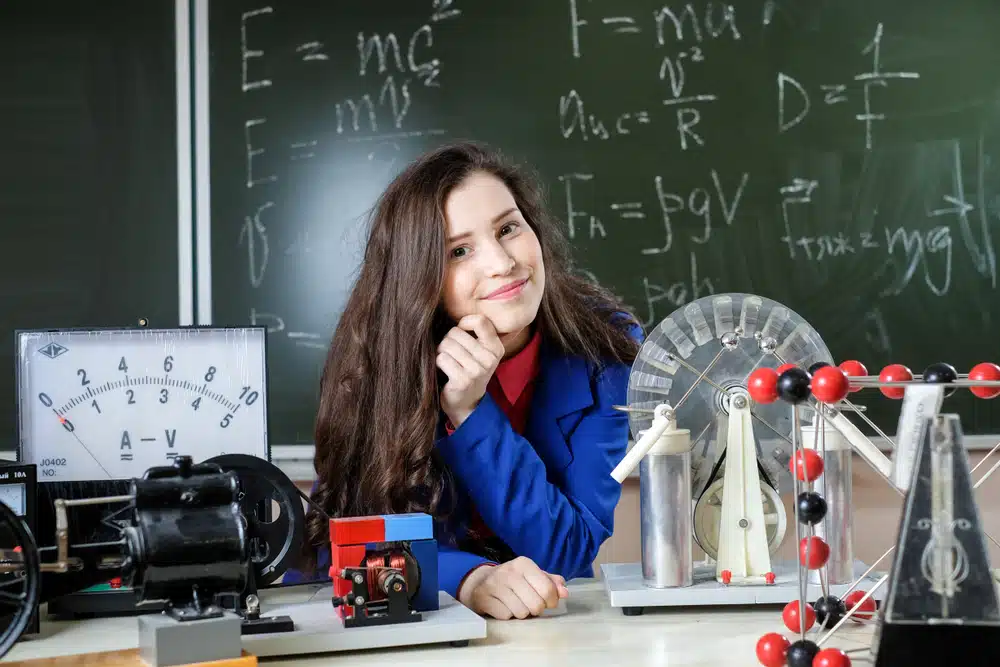
Physics research offers high school students a unique window into the mysteries of the universe, from the smallest particles to the vast expanses of space. If you’re a student interested in research ideas that delve into physics, you’re in the right place.
To uncover these ideas, you’ll need to think creatively and critically, applying concepts learned in class to real-world problems. Let’s explore various research topics in physics, designed to inspire and challenge you. Whether you’re presenting at a science fair or preparing for college, this guide will help you.
Physics Research Area #1: Quantum Computing and Information
Quantum computing represents a groundbreaking shift in how we process information, leveraging the principles of quantum mechanics to solve problems that are currently beyond the reach of classical computers.

For high school students interested in physics research, exploring quantum computing offers a glimpse into the future of technology and a chance to engage with complex, cutting-edge concepts. This experience is invaluable for students planning to major in physics or computer science in college, providing a strong foundation in quantum theories and computational thinking.
Here are specific topics you can explore:
1. Assessing Quantum Error Correction Techniques
Quantum computers are prone to errors due to qubit instability. By simulating error models and evaluating correction methods like surface codes, you can contribute to making quantum computing more reliable. This involves understanding quantum mechanics basics and using simulation software.
2. Scalability Analysis of Quantum Algorithms
Investigate how algorithms like Shor’s scale with increasing qubits. By simulating these quantum algorithms, you can assess their computational complexity and practicality for real-world use, offering insights into the future of quantum computing.
3. Mitigating Decoherence Effects in Quantum Systems
Decoherence is a major challenge in quantum computing, disrupting qubits’ state. Explore strategies to reduce decoherence, using experimental setups or theoretical models. This research is crucial for extending qubits’ coherence time, enhancing quantum computer stability.
4. Implementing Quantum Teleportation Protocols
Quantum teleportation is a fascinating application of quantum entanglement. Work on designing and testing protocols for transferring information between quantum systems. This project requires a grasp of entanglement principles and hands-on experimental skills.
5. Applications of Quantum Machine Learning
Quantum computing holds promise for revolutionizing machine learning. Compare quantum machine learning algorithms, like quantum neural networks, against classical counterparts to discover their advantages in speed and efficiency. This involves studying algorithmic principles and potentially programming simulations.
Physics Research Area #2: Renewable Energy Technologies
As the world shifts towards sustainable energy solutions, renewable energy technologies are at the forefront of combating climate change and reducing reliance on fossil fuels.
High school students researching this field can play a part in this pivotal movement while gaining valuable insights into physics, engineering, and environmental science . This experience not only prepares students for future studies in these areas but also empowers them to contribute to meaningful solutions for global energy challenges.
6. Enhancing Solar Panel Efficiency
Dive into the world of solar energy by experimenting with different materials and designs to increase solar panels’ efficiency. This involves hands-on testing and analysis, offering practical experience in materials science and photovoltaic technology.
7. Assessing Wind Turbine Design
Evaluate how various design elements of wind turbines affect their efficiency and cost-effectiveness. Use computational modeling and, if possible, field experiments to explore energy production and environmental impacts, gaining insights into aerodynamics and renewable energy economics.
8. Optimization of Hydroelectric Power Generation
Explore ways to boost the efficiency of hydroelectric plants through dam design and water management strategies. Analyzing data from existing facilities provides a real-world understanding of fluid dynamics and energy conversion.
9. Integrating Renewable Energy Sources
Investigate how different renewable energies can be combined into a cohesive system. Model various scenarios to assess their efficiency and sustainability, which can inform future energy solutions and grid management practices.
10. Impact of Renewable Energy on Ecosystems
Study the ecological effects of renewable energy installations. Conduct field surveys and analyze ecological data to understand how these technologies interact with the environment, aiming to find a balance between energy production and conservation.
Physics Research Area #3: Biophysics
Biophysics is a fascinating field where physics meets biology, allowing us to understand life at the molecular and cellular levels.

For high school students exploring research ideas, biophysics offers a unique opportunity to investigate how physical principles govern biological processes. This experience is invaluable for those considering majors in physics, biology , or pre-medical studies, providing a deep understanding of the mechanisms underlying health and disease.
11. Mechanics of Cell Migration
Study the forces and dynamics driving cell movement by using live-cell imaging and microfluidic devices. This research sheds light on cell behavior in development and disease, combining biology with physics to understand life at the cellular level.
12. Protein Folding Dynamics
Dive into the world of proteins to see how they attain their functional shapes. Using computational models and biophysical experiments, you can uncover the relationship between protein structure and function, essential for understanding diseases and developing drugs.
13. DNA Mechanics and Replication
Explore the physical properties of DNA and their impact on vital processes like replication. Techniques such as optical tweezers allow for hands-on investigation of DNA behavior, linking physics to genetics and molecular biology.
14. Biophysics of Medical Imaging
Uncover the physics behind MRI and CT scans. Through simulation and possibly hands-on experiments, you can understand how these technologies capture images of the body, bridging physics with medicine and diagnostic techniques.
15. Cellular Biomechanics in Disease
Examine how changes in cell mechanics contribute to diseases. By applying methods like atomic force microscopy, you can link physical changes in cells to health conditions, offering insights into disease mechanisms and potential therapies.
Physics Research Area #4: Nanotechnology and Materials Science
Nanotechnology and materials science are at the cutting edge of modern physics, driving innovations in everything from electronics to medicine.
For high school students looking for physics research ideas, this field offers a rich vein of topics that blend physics, chemistry , and engineering. Engaging in research here not only prepares students for advanced study in these disciplines but also provides practical experience in developing solutions for real-world problems.
16. Characterization of Nanoparticle Behavior
Explore the unique properties of nanoparticles by studying their size, shape, and chemical behavior using techniques like TEM, AFM, and DLS. This research is vital for applications in medicine, electronics, and materials engineering, offering insights into the building blocks of nanotechnology.
17. Synthesis of Nanomaterials Using Green Methods
Dive into the world of sustainable nanomaterial synthesis. Experiment with green chemistry and biological methods to create nanomaterials, assessing their properties and potential applications. This approach emphasizes environmental responsibility in scientific research.
18. Nanotechnology in Biomedical Applications
Investigate how nanotechnology can revolutionize medicine through targeted drug delivery systems, improved imaging techniques, or novel tissue engineering solutions. Design and test nanocarriers or scaffolds, bridging the gap between physics, biology, and healthcare.
19. Nanoelectronics and Quantum Devices
Explore the frontier of electronics by working with nanoscale materials like nanowires, quantum dots, and graphene. Fabricate devices to study quantum and electronic phenomena, paving the way for future technological breakthroughs.
20. Nanomaterials for Environmental Remediation
Address environmental challenges by using nanomaterials to remove pollutants from water, air, or soil. Analyze the effectiveness of these materials in breaking down contaminants, highlighting the role of nanotechnology in sustainability and conservation.
Physics Research Area #5: Data Science and Physics
The intersection of data science and physics opens up exciting possibilities for high school students interested in physics research ideas. By applying data analysis techniques to physics problems, students can uncover patterns and insights that traditional methods might miss.

This field is particularly appealing for those considering majors in physics, data science, or computer science , as it equips them with valuable skills in computational analysis, critical thinking, and problem-solving.
21. Analysis of Gravitational Wave Data
Dive into astrophysics by processing data from LIGO or Virgo to identify gravitational wave events. This research offers a firsthand look at phenomena like black hole mergers, requiring skills in data processing and analysis to interpret the cosmic dances of massive objects.
22. Particle Identification in Collider Experiments
Use machine learning to sift through data from the Large Hadron Collider, identifying particles from high-energy collisions. This involves developing algorithms for pattern recognition, offering insights into the fundamental components of the universe.
23. Climate Data Analysis for Weather Prediction
Apply statistical analysis to climate data to improve weather prediction models. This project combines physics with meteorology, modeling atmospheric dynamics to enhance the accuracy of forecasts and understand the impact of climate change.
24. Machine Learning for Quantum State Classification
Explore quantum physics by using machine learning to classify quantum states. Training models on experimental data allows for a deeper understanding of quantum information processes, showcasing the synergy between computational science and quantum theory.
25. Data-driven Modeling of Complex Physical Systems
Create models for predicting the behavior of complex systems, such as fluid flows or material behaviors. This research blends traditional physics equations with modern data-driven methods, improving simulation accuracy and efficiency.
Physics Research Area #6: Artificial Intelligence and Robotics
Artificial Intelligence (AI) and robotics are rapidly transforming industries and everyday life, making the integration of these technologies with physics principles especially relevant for high school students exploring research ideas. This field not only offers a practical application of physics but also prepares students for future studies and careers in engineering, computer science, and robotics.
Engaging in research at the intersection of AI, robotics , and physics allows students to develop innovative solutions to complex problems, honing their skills in programming, problem-solving, and critical thinking.
26. Autonomous Navigation in Dynamic Environments
Work on AI algorithms to guide robots through changing settings. Apply physics principles for motion dynamics and obstacle avoidance, using sensors and real-time control for smooth navigation. This project combines robotics with physics to tackle real-world challenges.
27. Reinforcement Learning for Robotic Control
Explore how reinforcement learning can teach robots to handle physical tasks. Design experiments to refine robot actions through trial and error, using physics to inform reward functions and learning strategies. This approach blends AI with physical laws to enhance robot capabilities.
28. Swarm Robotics for Collective Behavior
Investigate how robots can work together like flocks of birds or schools of fish. Develop algorithms for communication and coordination, drawing on physics to simulate natural collective behaviors. This research pushes the boundaries of robotics, inspired by natural phenomena.
29. Physics-Informed Simulation for Robotic Manipulation
Create simulations that incorporate physical laws to train robots in tasks like picking up objects. Use physics-based models to ensure the simulation mirrors real-world interactions, improving robot efficiency and adaptability through virtual training.
30. Energy-Efficient Motion Planning for Robots
Focus on optimizing robots’ energy use while performing tasks. Develop algorithms that consider physical constraints, aiming to reduce energy consumption without compromising on performance. This project is crucial for creating sustainable robotic systems.

How do I choose the right physics research topic?
Choosing the right physics research topic involves identifying your interests and the impact you want to make. Start by exploring various physics research ideas for high school students, focusing on areas that spark your curiosity and where you feel motivated to contribute. This approach ensures your project is both enjoyable and meaningful.
Consider the resources and tools available to you, as well as the feasibility of completing your project within the given time frame. Consulting with teachers, mentors, or professionals in the field can provide valuable insights and help narrow down your options to select a topic that aligns with your goals and academic aspirations.
What are the essential tools and techniques for high school physics research?
Successful physics research projects rely on a combination of theoretical knowledge and practical skills. High school students exploring physics research ideas should familiarize themselves with basic laboratory equipment, simulation software, and data analysis tools. These tools are crucial for conducting experiments, simulating models, and analyzing results effectively.
Moreover, mastering research methodologies, such as experimental design, statistical analysis , and scientific writing, is essential. These techniques will not only enhance the quality of your research but also prepare you for future academic and professional endeavors in the field of physics.
How can I publish my high school physics research findings?
Publishing your physics research findings is a significant achievement that requires meticulous preparation and persistence. Begin by ensuring your research is thorough, well-documented, and presents a clear contribution to the field. Then, seek out journals like the National High School Journal of Science that accept submissions from high school students; there are many platforms dedicated to young researchers where you can share your work.
Networking with teachers, mentors, and professionals in physics can provide guidance on where and how to submit your research for publication. They can offer advice on refining your paper, selecting the right journal or conference, and navigating the submission process. Remember, receiving feedback and possibly revising your work is part of the journey to publication.
How can my high school physics research experience boost my college application?
Incorporating your high school physics research experience into your college application can significantly enhance your profile. Highlighting your involvement in research demonstrates initiative, depth of knowledge, and a commitment to scientific inquiry. These are qualities that colleges and universities value highly in prospective students.
Discuss how your research allowed you to apply physics concepts in real-world situations, the skills you developed, and any recognition or awards you received. This approach not only showcases your academic capabilities but also your ability to engage with complex problems and contribute to the field of physics.
How can high school students stay updated on the latest physics research trends?
Staying updated with the latest trends in physics research requires proactive engagement with scientific communities and resources. High school students can subscribe to reputable science magazines, journals, and online platforms that publish the latest findings and discussions in physics. Additionally, attending science fairs , lectures, and workshops can provide insights into current research and future directions in the field.

Engaging with social media groups and forums dedicated to physics and science education is another effective way to stay informed. These platforms allow students to connect with peers, educators, and professionals, sharing ideas, research opportunities, and updates on advancements in physics research. By remaining informed, students can find inspiration for their projects and contribute meaningfully to conversations in the scientific community.
Exploring physics research ideas for high school students offers a unique opportunity to delve into the wonders of the universe and contribute to the vast expanse of scientific knowledge. By selecting the right topic, mastering essential tools, publishing findings, and staying informed about research trends, students can significantly enhance their academic journey and future prospects.
Remember, your curiosity and dedication to physics can lead to discoveries that illuminate the mysteries of the cosmos in ways we can only imagine.
Want to assess your chances of admission? Take our FREE chances calculator today!

Why College Admissions Isn’t Perfect

US News Rankings

The Personal Statement: The Holy Grail of College Admissions

The Modern Day 4.0 and 1600 SAT Score Student Is No Longer Impressive

The Competitive Nature of College Admissions for Asian Americans

The College Application

Our Comprehensive Approach

Ivy League Schools

How Early Should You Prepare for College?

Featured in US News & World Report Best Colleges Publication

Congratulations to AdmissionSight Students and their Acceptances!

College Rejection

College Rankings

College Consultants Could Make A Difference

College Admissions Scandal and Higher Education

The 7 Best Colleges for Figure Skating

Understanding Restrictive Early Action at Harvard

How to Get into Harvard: Admission Requirements and Tips
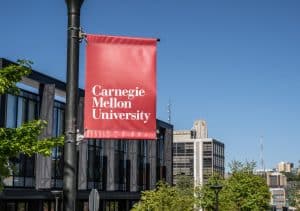
Carnegie Mellon University: Weighing the Pros and Cons

The Best Colleges for Pre-Med
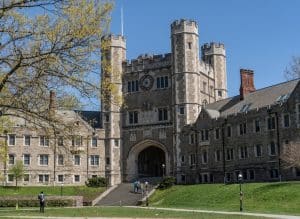
Top 5 Princeton Majors: A Quick Guide
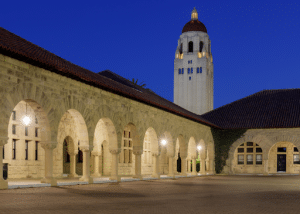
How Many People Apply to Stanford: Impact of Legacy Preferences on Admission
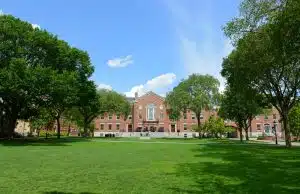
Top 10 Unique Classes at Brown University

Yale’s Hidden World: How Many Secret Societies Exist?

Discover the Best Law Schools in the US This 2024

Is Georgetown University a Good School? Insights and Tips
Fun facts about princeton university: discover why it’s one of america’s top universities.

What Is the Best Ivy League School For You? A Quick Guide

UCLA Scholarships: All You Need to Know

Pros and Cons of Harvard University: All You Need to Know
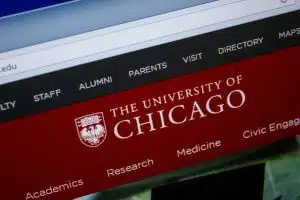
How Hard Is It to Get into the University of Chicago?

A Quick Guide to the Different Colleges and Universities in the U.S.
Leave a comment cancel reply.
Your email address will not be published. Required fields are marked *
Save my name, email, and website in this browser for the next time I comment.
Recent Articles

The 7 Best Colleges for...

Understanding Restrictive Early Action at...

How to Get into Harvard:...

Carnegie Mellon University: Weighing the...

Top 5 Princeton Majors: A...

How Many People Apply to...

Top 10 Unique Classes at...

Yale's Hidden World: How Many...

Discover the Best Law Schools...

Is Georgetown University a Good...

Fun Facts about Princeton University:...
Sign up now to receive insights on how to navigate the college admissions process..

Admissions Counseling
- Academic & Extracurricular Profile Evaluation
Copyright © AdmissionSight 2024
Privacy Policy - Terms and Conditions
Are you seeking one-on-one college counseling and/or essay support? Limited spots are now available. Click here to learn more.
62 Best Research Opportunities for High School Students
June 2, 2024
Hands-on laboratory-based research experiences are coveted by just about every STEM-oriented teenager on the planet. Of course, this level of demand renders research opportunities for high school students a valuable and rare commodity. Fortunately, there are a number of reputable summer programs run by universities, government agencies, and private research laboratories that afford young scientists this highly sought-after experience. Research opportunities during the actual school year are more challenging to locate as colleges are, at that time, catering to their own students, and the rigidity of the high school calendar makes participation a further challenge.
What type of research opportunities can a high school student have, anyway?
Research opportunities for high school students can range from introductory to highly advanced. Some programs focus on teaching students the fundamental skills required for research while others place students with a real working research group and allow them to contribute to legitimate experiments and papers. Your level of involvement will depend on the university or organization’s policies, your mentor, your lab team, and the type of research being conducted.
What types of research experiences look best on college applications?
Authentic, laboratory-based research experiences that you get paid for are the hardest types of positions to nail down, primarily because very few of these spots are available. Moreover, such research groups are conducting serious work—consequently, they’re looking for serious, high-achieving students who will positively enhance their dynamic. Additionally, these positions typically require a longer time commitment, with students working full-time (or close to full-time) hours for several months or even years. As such, accepting one of these positions may limit the other types of summer opportunities that you can participate in. Finally, due to safety concerns and restrictions, you will likely need to be at least 16 years old to participate in many types of lab-based research.
On the flip side are research opportunities that you pay to be involved in, with some being more selective than others. Many families wonder if these programs offer legitimate research experience or are simply another way to capitalize off of the college admissions craze, and the answer is that you have to do your homework.
Although some research opportunities offer little in the way of experience, others are truly authentic opportunities to work with a mentor and delve into an area of interest for academic enrichment—no different than any other cost-based summer program. In these cases, the fact that a student prioritized their intellectual curiosity and spent several months seriously pursuing a topic of interest will be an excellent addition to their application. We’ve gone ahead and done the hard work for you—any one of the opportunities listed below is legitimate and worthy of investing your time and resources into.
How do I decide what types of research opportunities to apply for?
If conducting research is important to you, we recommend applying to a mix of highly selective and lesser selective programs to maximize your chances of being accepted to at least one. Beyond selectivity, it’s important to consider additional several factors:
- Time commitment —Some programs may require a multi-week, full-time commitment over the summer. Others may require nights and weekends during the school year.
- Time frame —Some programs are only available in the summer while others run year-round (sometimes for multiple years).
- Cost/stipend —Do you have to pay for the program, or does the program pay you? Research whether the program will be a good fit for your financial situation, including how much it costs and if you’ll receive compensation for your work, either via academic credit or a paycheck. Note that many residential programs are cost-based while commuter programs that only accept local students are more likely to be fully funded and/or offer a stipend.
- Location —Evaluate whether you’d like to attend a local program, are willing to travel to a residential program, or would prefer a virtual option.
- Level of mentor interaction —During some programs, you’ll be closely supported by PhD faculty members, while others may be run by graduate or postdoc students and require students to be more independent.
- Opportunity to publish or enter research competitions —If publishing research or submitting your project/paper to a research competition is important to you, you’ll want to look into whether the program prepares you for that venture.
Our list includes a bevy of summer program choices as well as year-long internships and apprenticeships. We’ve divided the list into three sections: Virtual, Residential/Multi-Location, and Location-Specific.
For each entry, we list the geographic location of the program, the time frame and length of the program, any associated costs or stipends, and the eligibility criteria for participation.
Virtual Research Opportunities for High School Students
Virtual research opportunities for high school students offer ultimate flexibility, in regard to time commitment as well as subject matter.

1) Polygence
- Location : Virtual
- Timeframe : Academic year and/or summer
- Length: 2-6 months
- Cost : $495-$3,695
- Eligibility: No age restrictions
For high school students who want to showcase authentic passion on their college applications, Polygence offers the most personalized and flexible online research program that helps students turn their interests into unique research projects. Accordingly, they pair intellectually curious students with PhD-level mentors to design experiments, build robots, create podcasts, write original screenplays, and publish in peer-reviewed journals in all fields from the humanities to STEM. All 1:1 programs include ten meetings with a mentor in your chosen field as well as a self-selected project topic and outcome, which could include a research paper, a prototype, or a creative piece of work.
A multitude of personalized options are available, including additional brainstorming sessions, time with a specialist who will guide the student through the publishing or research competition process, and academic credit through UCI x GATI. Moreover, Polygence’s Pods program allows students to work with like-minded peers in a group setting.
Sound like a good fit? College Transitions readers can save $50 on their Polygence package.
Research areas available include:
- Computer science, engineering, AI, & game design
- Biology, biotech, chemistry, neuroscience, and physics
- Medicine, surgery, dentistry, and public health
- Business, finance, and economics
- Math, statistics, sports analytics, and quantitative analysis
- Psychology, psychiatry, cognitive science, and social sciences
- Creative writing, history, philosophy, and literature
- Animation, the arts, fashion, photography, and dance
Residential/Multi-Location Research Programs
In the following section, we’ve outlined programs that are residential or offer opportunities in multiple locations, making them more accessible to a wider array of students.
Programs are organized alphabetically by discipline.
Biology Research Opportunities for High School Students
2) university of chicago research in the biological sciences (ribs).
- Location : Chicago, IL
- Timeframe : Summer
- Length: 4 weeks
- Cost : $14,000
- Eligibility: Current sophomores and juniors
In UChicago’s highly selective RIBS program, students practice a range of molecular, microbiological, and cell biological research techniques. The goal? To prepare them to work in a research laboratory. Accordingly, for the first two weeks, students undergo basic training in lab skills and techniques. Then, they spend the final two weeks of the course immersed in an independent research project. At the end of the course, they present the project during a research forum. Moreover, students can expect weekly writing assignments and seminars. To be competitive, students should have a demonstrated interest in science as well as top grades in those classes.
Biomedical Research Programs for High School Students
3) rosetta institute of biomedical research molecular medicine workshops.
- Location : Berkeley; San Diego; Columbia; London; virtual
- Length: 2 weeks
- Cost : $3,580-$4,180 (residential); $2,280-$2,480 (commuter); $430-1,050 (online)
- Eligibility: High school students aged 14-18
Curious about biomedical research but not ready to pursue a full-blown lab internship? Rosetta Institute offers a number of residential and online two-week programs that introduce high schoolers to topics in medicine, drug development, pharmacy, and nursing. For example, current workshops include Medicinal Chemistry, Neurological Bioinformatics, and Molecular Biology of Cancer. All students are taught by PhD-level instructors and complete an original research project.
Chemistry Research Opportunities for High School Students
4) american chemical society — project seed.
- Location : Multiple
- Length: 8-10 weeks
- Cost : Free, and students receive a $4,000 stipend
- Eligibility: All high school students whose families meet annual income requirements, but preferably current sophomores, juniors, or seniors
Having been operational for more than fifty years, Project SEED (Summer Experiences for the Economically Disadvantaged) runs programs at over 350 institutions and has served over 12,000 students. The goal of the program is to empower a diverse cohort of high school students to conduct hands-on research experience in the chemical sciences. Accordingly, all students work full-time on meaningful independent or small group projects, are closely guided by a mentor, and either write a report or do a poster presentation at the end of their fellowship.
Genetics Research Opportunities for High School Students
5) jackson lab summer student program.
- Location : Bar Harbor, ME or Farmington, CT
- Length: 10 weeks
- Cost : Free, and students receive a $6,500 stipend plus funded room, board, and travel
- Eligibility: High school seniors can apply to the Bar Harbor program, while eligible undergrads can apply to either program.
Hoping to design and execute an original independent research project? You’ll be able to do just that through Jackson Lab’s Summer Student Program, which immerses students in one of seven areas: bioinformatics and computational biology, cancer, developmental biology and aging, genomics, immunology and infectious disease, metabolic diseases, and neurobiology and sensory deficits. Moreover, students are closely guided by a mentor and present their research at the end of the summer. Finally, the application process is intense and competitive, requiring two letters of recommendation, a transcript, a resume, evidence of a strong interest in genetics and genomics, and four essay responses.
Pre-Health Research Opportunities for High School Students
6) national institutes of health high school summer internship program.
- Location : Research groups are available at many of NIH’s 27 institutes and centers , including the main campus in Bethesda, MD
- Cost : Free; all students receive a stipend
- Eligibility: High school seniors age 17+
Through their HS-SIP Program, the National Institutes of Health places high school students in full-time research positions within their many active research groups. Subject areas include biomedical, behavioral, and social sciences, and are geared toward students who are interested in pursuing research and healthcare. Moreover, students can take part in Summer Poster Day, where they present their research to the NIH community. They also have access to professional development programs and educational/career advising.
Note that this research opportunity for high school students is extremely competitive; approximately 7% of applicants are ultimately accepted. Finally, if you are under the age of 18 when you participate in the program, you will need to live within 40 miles of the campus that you’d like to intern at.
STEM/Humanities Research Opportunities for High School Students
7) army educational outreach program—high school internships.
- Location : Various
- Timeframe : All Year
- Length: 3 months
- Cost : Free, and all interns receive a stipend
- Eligibility: All current high school students. Some sites may have additional eligibility requirements.
With programs currently available in twenty states, the Army Educational Outreach Program places high school students in university research labs or at a US Army Research Laboratory/Center. Each site has its own technical focus, from biology and materials science to cybersecurity and AI. Regardless of specialty, all interns receive formal mentorship from a professional scientist or engineer, have access to high-tech equipment, and work on relevant research that addresses a current major challenge.
8) Boston University RISE
- Location : Boston, MA
- Length: 6 weeks
- Cost : $5,350 plus room & board
- Eligibility: Current high school juniors
A residential program located on the Boston University campus, RISE offers high school students the opportunity to conduct laboratory research in one of two tracks: Internship or Practicum. Students in the Internship track work full-time on a research project that aligns with their interests, and are mentored by a faculty member, postdoc fellow, or grad student. 15 subject areas are available, including astronomy, mechanical engineering, medical laboratory research, and nutrition. Alternatively, Practicum students work in small groups on structured research related to systems neuroscience and neurobiology.
Research Opportunities for High School Students—Continued
9) michigan state high school honors science, math and engineering program.
- Location : East Lansing, MI
- Length: 7 weeks
- Cost : $4,000
HSHSP is a highly selective, residential program where students can pursue research opportunities in science, engineering, and mathematics. After learning more about the research process, students deeply explore a problem of interest while engaging in an authentic (not “fail-proof”) research experience. Along the way, they’ll work with professionals and peers in their field of interest. Finally, many students have gone on to publish their work or be recognized at prestigious research competitions.
10) MIT Research Science Institute
- Location : Cambridge, MA
- Cost : Free
- Eligibility: High school juniors
With a combined focus on academic coursework and hands-on research, RSI students first take one week of STEM coursework with MIT professors. Here, they’ll learn about current research topics in biology, chemistry, engineering, mathematics, physics, and the humanities. Then, for the remaining five weeks, students “experience the entire research cycle start to finish.” During this time, they participate in an intensive, mentored individual project experience that culminates in a written and oral presentation.
The program looks for students who are exceptionally academically talented. As such, the application process is quite intensive. PSAT Math scores must be over 740 and ACT Math scores must be over 33. In addition, students must write several essays, acquire teacher recommendations, and provide transcripts. Ultimately, only 100 students are accepted.
11) NASA Internship Programs
- Location : Various; there are 15 centers and facilities in the US. Remote opportunities may also be available.
- Timeframe : Available during the fall, spring, and summer
- Length: 10-16 weeks, depending on session
- Cost : Free; the majority of interns receive a stipend, but some are unpaid
- Eligibility: High school students aged 16+
NASA’s Office of STEM Engagement (OSTEM) offers a number of internship opportunities for high school students. Available projects change each year and are location-specific, and not every NASA center will offer internship opportunities every session. That said, current projects span a range of subject areas, including Climate Change in the Hudson Estuary and Characterizing the Urban Land Surface Temperature. During the research internship, students will be closely mentored by a research scientist, engineer, or other professional. Note that you will need to make your own housing arrangements if you are not a local student.
Are you an undergraduate student? Check out NASA Pathways , which can provide a direct transition into full-time employment at NASA.
12) Smith College Summer Science and Engineering Program
- Location : Northampton, MA
- Length: 2-4 weeks
- Cost : $4,745 (2 weeks); $8,082 (4 weeks)
- Eligibility: Female high school students in grades 9-12; some programs have specific prerequisites
Fun fact: Smith was the first women’s college to create a program in engineering science. As such, their summer programs are an excellent place for young women to participate in hands-on, introductory research experiences. Two-week sessions are offered, and students can take one or both. Each session offers six distinct course choices. For example, the first session offers Chemistry of Herbal Medicine, Designing Intelligent Robots, and Novel Bacteriophage Discovery. Second session courses include Where the Body Meets the Mind, Supercontinents, Rocks, and Fossils, and the Art and Science of Microcontrollers. Students spend five days a week in class, attending lectures and conducting experiments & fieldwork. Additionally, the program is team-based, allowing students to learn from each other’s ideas and perspectives.
13) Stony Brook University Garcia Center Research Experience for High School Students
- Location : Stony Brook, NY
- Timeframe : Summer (with possible academic year continuation)
- Cost : $4,000 plus room & board
At the Garcia Center for Polymers at Engineered Interfaces, high school students can design an original research project in polymer science and technology during an intensive seven-week summer program. Uniquely, the research can then be continued during the academic year under the guidance of a faculty mentor. Students should be highly motivated and high-achieving, with at least three upper-level science courses under their belt. Finally, past participants have regularly published their research and won recognition in national competitions.
14) Stony Brook University Simons Summer Research Program
- Cost : Students need to cover transportation costs (if commuting) or room/board (if residential). Room/board is $2,781. Stipends are also awarded at the end of the program.
After being matched with a mentor and research team, students are fully immersed in the research process. Placement availability varies from year to year, but typically about thirty projects are available across over a dozen disciplines. These include biochemistry, computer science, geosciences, and pharmacological sciences, among others. Moreover, some have prerequisites, such as specific AP courses or previous programming experience.
All students participate in weekly faculty research talks, workshops, events, and a culminating poster symposium.
15) Summer Science Program
- Location : Astrophysics: UNC Chapel Hill, University of Colorado, Georgia College & State University, New Mexico State University; Biochemistry: Purdue, Indiana University; Genomics: Georgetown, Purdue, New Mexico State; Synthetic Chemistry : Southwestern Oklahoma State University
- Cost : $8,800 max; all program fees are scaled according to what each family can afford
- Eligibility: Current high school juniors and exceptional sophomores
The Summer Science Program offers four different immersive research programs that take place on different college campuses around the country. These include programs in astrophysics, biochemistry, genomics, and synthetic chemistry. Each program has its own research focus. For example, astrophysics students will dive into Asteroid Orbit Determination while genomics students explore Antibiotic Resistance and Directed Evolution.
Students spend six days a week in class deeply investigating their research topics and learning more about general experimental science. They also take part in guest lectures and other special programming.
16) Texas Tech University Anson L. Clark Scholars Program
- Location : Lubbock, TX
- Cost : Free; all students receive a $750 stipend upon completion of their projects
- Eligibility: High school juniors and seniors aged 17+ by the start of the program
The Clark Scholars Program is one of the only programs on this list with research disciplines in the sciences as well as the humanities. For example, current research areas include everything from nutritional sciences and mechanical engineering to history. Over the course of seven weeks, students work closely with a faculty member to complete a research paper in their discipline. They also participate in weekly seminars, discussions, and field trips.
17) University of California Santa Barbara Research Mentorship Program
- Location : Santa Barbara, CA
- Cost : $11,874 (residential); $4,975 (commuter)
- Eligibility: High school sophomores and juniors
During this intensive program, students work 35-50 hours per week on an interdisciplinary research project of their choice. Nearly thirty research areas are available in both the STEM disciplines and humanities; current topics include biochemistry, computer science, history, music, and anthropology, among others. Over the course of the program, they also take two courses: Introduction to Research and Presentation Techniques. Finally, students occasionally continue their research remotely during the academic year, depending on their mentor’s availability.
18) University of California Santa Barbara Summer Research Academies
- Cost : $8,224 (residential); $2,575 (commuter)
- Eligibility: High school sophomores, juniors, and seniors
Running for four weeks, the UCSB Summer Research Academies allow students to earn up to four credits. While taking a university-level course that teaches fundamental research concepts, students spend the first two weeks of the program developing a research question & framework via hands-on labs. They’ll then spend the final two weeks of the course analyzing their results and building presentations. Overall, they’ll spend about 25-40 hours per week working. Finally, twelve different tracks are available; each involves multiple disciplines. For example, “Bionic Creatures” combines mechanical engineering, materials science, soft robotics, biomanufacturing, and collective motion.
19) University of California Santa Cruz Science Internship Program (SIP)
- Location : Santa Cruz, CA
- Length: 9 weeks (two weeks virtual, seven weeks in-person)
- Cost : $4,750 plus room & board
- Eligibility: High school students aged 14+, although some research groups require students to be 16+
UCSC’s SIP Program offers a wide range of research focus areas, including science and engineering as well as social science, humanities, and art. For example, over 100 projects are currently offered that include everything from “Eating Insects in Silicon Valley: Cultural Gaps Between Food-Tech and Tradition” and “Future Projected Changes in the Distribution and Variability of Ocean Chlorophyll in Climate Simulations.” Before you dive in, you’ll spend two weeks doing online research prep (this part is conducted remotely) followed by seven weeks of in-person, mentored research. Students get to engage in authentic, open-ended projects that fully immerse them in the academic research experience. Moreover, they’ll present their findings at a symposium at the end of the program.
20) University of California Davis Young Scholars Program
- Location : Davis, CA
- Cost : $6,750
- Eligibility: High school sophomores and juniors who will be 16+ by the start of the program
Interested in biological, agricultural, environmental, or natural sciences? If so, UC Davis is a stellar place to explore those interests through research. All students have the opportunity to work on independent, original projects while receiving one-on-one faculty mentorship. Moreover, they each produce a journal-quality paper and symposium presentation. In addition to research, students also participate in a lecture series presented by UC Davis faculty; past topics have included forensic entomology and nutrition, among others. Finally, field trips to educational facilities like the Monterey Bay Aquarium and Bodega Bay Marine Laboratory round out the experience.
21) University of Florida Student Science Training Program
- Location : Gainesville, FL
- Cost : $5,200
- Eligibility: Rising seniors aged 16+
Thinking about a career in science, medicine, math, computer science, or engineering? UF’s Student Science Training Program could be the right fit. For thirty hours per week, you’ll work with a faculty mentor and lab team on university-level, ongoing research. Moreover, you’ll participate in a science lecture series as well as a UF Honors Program seminar class. Over the course of the program, you will write a research paper, present a poster, and give two oral presentations. Finally, social programming is included.
22) University of Iowa Secondary Student Training Program
- Location : Iowa City, IA
- Cost : $7,500
During this intensive and competitive program, students conduct research within small groups that are supported by a University of Iowa faculty member. There are twenty current active research areas, including chemistry, geography, neurology, orthopedics & rehabilitation, and religious studies. You’ll be working on your project approximately seven hours per day, attending classes in the evenings, and participating in structured activities on the weekend. Moreover, all groups will create and present a poster at the culmination of the program.
23) University of Massachusetts Amherst Summer Programs
- Location : Amherst, MA
- Cost : $3,636 (residential); $2,167 (commuter)
- Eligibility: Rising sophomores, juniors, and seniors
UMass Amherst offers two introductory, research-focused opportunities for high school students. These are Antibiotic Resistance: A Global Health Crisis, which allows students to join the Department of Microbiology in researching new antibiotics, and Energy Without Borders, which delves into climate change, infrastructure, and green energy. In both courses, you’ll learn research methods, complete multiple lab experiences, and present a research poster. Finally, students can earn two college credits upon successful completion of the program.
Location-Specific Research Opportunities for High School Students
The following programs are not residential and only offered in a specific location. Many also only accept local students, although some do allow out-of-state students to apply. If that’s the case, you will need to secure your own living accommodations and transportation. Moreover, if you are under the age of 18, you will need to be supervised by a parent or guardian.
Programs are organized alphabetically by state.
24) California Academy of the Sciences—Careers in Science Intern
- Location : San Francisco, CA
- Focus: STEM
- Length: Multi-year (2-3 years)
- Eligibility: 9 th or 10 th grade student enrolled in an SFUSD school with a GPA of 2.5 or higher
25) Cedars Sinai INSPIRE High School
- Location : Los Angeles, CA
- Focus: Pre-Health
- Cost : Free; all students are paid
- Eligibility: High school students age 16+
26) City of Hope Summer Student Academy
- Location : Duarte, CA
- Focus: Biomedicine
- Cost : Free; all students receive a stipend of $4,000
27) Sandia National Laboratories—Internships
- Location : Livermore, CA
- Focus : STEM
- Timeframe : Academic year and summer internships available
- Length: Academic year or 10-12 weeks (summer)
- Cost : Free; all positions are paid
28) Scripps Student Research Internship Program
- Location : La Jolla, CA
- Focus : Translational science/genomics
- Cost : Free; stipends are typically offered
29) UCSF SEP High School Intern Program
- Focus : Biomedical research
- Length: 8 weeks
- Eligibility: High school juniors enrolled in an SFUSD high school, SF charter school, or College Track San Francisco
30) UCSF Summer Student Research Program
- Location : Oakland, CA
- Length: 9 weeks
- Cost : Free; all students are given a stipend between $3,000-$4,300
- Eligibility: High school juniors or seniors, aged 16+
Connecticut
31) jackson lab academic year fellowships.
- Location : Farmington, CT*
- Focus: Genetics
- Timeframe : Academic year
- Length: 1 school year
- Cost : Free; students must be able to receive academic credit for their work
- Eligibility: High school juniors and seniors age 16+ within commuting distance of the lab
*Some fully remote opportunities are available
32) Yale School of Medicine Discovery to Cure High School Internship
- Location : New Haven, CT
33) Yale University Social Robotics Lab High School Internship
- Focus: Robotics and human social behavior
- Eligibility: Rising juniors and seniors aged 16+
34) Argonne National Laboratory — Exemplary Student Research Program
- Location : Lemont, IL
- Focus: Engineering
- Eligibility: Application must be completed by participating teacher
35) Chicago EYES on Cancer
- Focus : Biomedicine
- Timeframe : All year, with two 8-week summer research experiences
- Length: 2 years
- Cost : Free; all students receive $3,100 stipend
- Eligibility: High school sophomore, junior, or senior aged 16+
36) University of Kansas Biotech Research Apprentice Program
- Location : Overland Park, KS
- Focus : Biotech
- Length: Semester
37) Jackson Lab Academic Year Fellowships
- Location : Bar Harbor, ME*
38) National Cancer Institute Werner H. Kirsten Student Internship Program
- Location : Frederick, MD
- Timeframe : Academic year & summer
- Length: 1 year
- Cost : Free; academic credit available during school year, stipend provided in summer
- Eligibility: High school junior age 17+ who attends an eligible school located within a 30-mile radius of campus
39) University of Minnesota Lillehei Heart Institute Summer Research Scholars Program
- Location : Minneapolis, MN
- Focus: Cardiovascular medicine
- Eligibility: High school juniors and seniors age 16+ as well as undergraduate students
40) Coriell Institute for Medical Research
- Location : Camden, NJ
- Eligibility: High school student aged 17+
41) Princeton Laboratory Learning Program
- Location : Princeton, NJ
- Focus : Natural Sciences or Engineering
- Length: 5-6 weeks
42) Princeton Plasma Physics Laboratory High School Internship
- Location : Princeton, NJ*
- Focus : Physics
- Eligibility: High school seniors (program takes place summer after graduation)
*Remote projects may be available.
43) Rutgers Institute for Translational Medicine and Science Summer Research Program (RITMS)
- Location : Rutgers, NJ
- Focus : Translational medicine/science
44) Rutgers Waksman Institute Summer Experience Program
- Location : Piscataway, NJ*
- Focus : Molecular biology/bioinformatics
- Cost : $2,000
- Eligibility: High school students who have completed a high school-level biology course
*Online version of the program is also available
45) Los Alamos National Laboratory High School Internship Program
- Location : Los Alamos, NM
- Length: 11 weeks
- Eligibility: New Mexico high school seniors aged 16+
46) Sandia National Laboratories—Internships
- Location : Albuquerque, NM
47) Baruch College STEM Research Academy
- Location : New York, NY
- Timeframe : Spring/summer
- Cost : Free, but all students receive a stipend of $1,575
- Eligibility: Must be a NYC public high school sophomore junior to apply
48) Burke Neurological Institute NeuroAcademy
- Location : White Plains, NY
- Focus: Neuroscience
- Eligibility: Completion of NYS Regents Living Environment or equivalent Biology class; cumulative GPA of 3.4 or higher
49) City Tech College STEM Research Academy
- Length: Two semesters (January-August)
- Eligibility: NYC public school sophomore or junior
50) Columbia Zuckerman Institute—BRAINYAC Program
- Eligibility: High school sophomores and juniors from select partner programs/schools in Upper Manhattan and the Bronx
51) HOPP Summer Student Program at Memorial Sloan Kettering Cancer Center
- Focus: Biomedical or computational research
- Eligibility: High school students aged 14+
52) University of Rochester Laboratory for Laser Energetics Summer High School Research Program
- Location : Rochester, NY
- Focus: Laser energetics
- Eligibility: Rochester-area high school students who have completed their junior year
53) Cleveland Clinic Lerner Research Institute
- Location : Cleveland, OH
- Timeframe : Varies; depends on lab
- Length: Varies; depends on lab
54) OHSU School of Medicine Partnership for Scientific Inquiry (PSI)
- Location : Portland, OR
- Focus: Biomedical research
- Timeframe : Academic semester + summer
- Length: 16+ weeks
- Eligibility: Oregon-based high school sophomores, juniors, and seniors aged 16+
Pennsylvania
55) fox chase cancer center high school research programs.
- Location : Philadelphia, PA
- Timeframe : During school year
- Length: 2-3 months; depends on program
- Eligibility: Philadelphia-area high school students; students must be 16+ for some programs
56) Penn State College of Medicine Research Internships
- Location : Hershey, PA
- Length: Varies; could be weeks to months depending on lab
- Cost : Paid and unpaid internships available
57) University of Pennsylvania GRASP Lab High School Internships
- Focus: Robotics
- Cost : Free; stipend typically available
- Eligibility: Rising high school senior
58) George Mason University Aspiring Scientists Internship Program (ASSIP)
- Location : Fairfax, VA*
- Eligibility: High school students aged 15+ or 16+, depending on program
*Some fully remote and hybrid opportunities are available, depending on the lab.
59) Jefferson Lab High School Summer Honors Program
- Location : Newport News, VA
- Eligibility: High school students aged 16+ who live within 60 miles of the lab
60) Virginia Tech Fralin Biomedical Research Institute Summer Research Program
- Location : Roanoke, VA
- Focus: Health behaviors research
- Cost : Free; all students receive a stipend of $4,800
- Eligibility: Rising high school junior or senior in the Roanoke Valley
61) Pacific Northwest National Laboratory High School Research Programs
- Location : Richland, WA
- Timeframe : Summer & academic year programs available
- Length: Academic year or 10 weeks (summer)
- Eligibility: High school students aged 16+; some labs may require students to be 18+
62) Seattle Children’s Hospital Research Training Program
- Location : Seattle, WA
- Eligibility: High school sophomores, juniors, or seniors within commuting distance of downtown Seattle
Final Thoughts—Research Opportunities for High School Students
If gaining research experience is important to you, it’s in your best interest to explore a number of different programs, evaluating whether their structure, length, cost, and outcomes are in line with your goals. Finding the right opportunity may take some time, but it will be well worth the effort required.
- Research Programs
Kelsea Conlin
Kelsea holds a BA in English with a concentration in Creative Writing from Tufts University, a graduate certificate in College Counseling from UCLA, and an MA in Teaching Writing from Johns Hopkins University. Her short fiction is forthcoming in Chautauqua .
- 2-Year Colleges
- ADHD/LD/Autism/Executive Functioning
- Application Strategies
- Best Colleges by Major
- Best Colleges by State
- Big Picture
- Career & Personality Assessment
- College Essay
- College Search/Knowledge
- College Success
- Costs & Financial Aid
- Data Visualizations
- Dental School Admissions
- Extracurricular Activities
- General Knowledge
- Graduate School Admissions
- High School Success
- High Schools
- Homeschool Resources
- Law School Admissions
- Medical School Admissions
- Navigating the Admissions Process
- Online Learning
- Outdoor Adventure
- Private High School Spotlight
- Summer Program Spotlight
- Summer Programs
- Teacher Tools
- Test Prep Provider Spotlight
“Innovative and invaluable…use this book as your college lifeline.”
— Lynn O'Shaughnessy
Nationally Recognized College Expert
College Planning in Your Inbox
Join our information-packed monthly newsletter.
More From Forbes
A guide for pursuing independent scientific research opportunities in high school.
- Share to Facebook
- Share to Twitter
- Share to Linkedin
Charles Darwin, Albert Einstein, Benjamin Franklin and Nikola Tesla: these famous scientists are known for their innovation and intellectual curiosity. For students who also dream of becoming an innovator, nothing is stopping them from exploring research while they are still in high school through an independent research project (IRP). When conducted well and presented appropriately on a college application, the project can help a student stand out among the masses.
According to U.S. News and World Report , “High school students who have an impressive personal project they are working on independently often impress colleges, because their commitment to a successful solo endeavor conveys initiative, self-discipline and originality.”
IRPs can showcase critical thinking, initiative, and research acumen. These projects can be used to distinguish the student from their peers, especially in STEM-related disciplines, which is often hard to accomplish.
Students can do an independent research project to stand out when applying to competitive schools.
Ways To Pursue An Independent Research Project
There are many different avenues where students can pursue an independent research project. For many, an easy way to get started is by accessing resources at their high school, either through a research-based class or independently with a teacher.
Lindsey Conger , an independent college counselor at Moon Prep , frequently guides her students in reaching out to local professors to work with them on their current research projects. Recently, one of her students successfully partnered with a university professor to start a project on how jet lag affects intelligence and plans to finish a research paper by the end of the summer. The long-term goal is to get this paper published in a high school research journal.
Best Travel Insurance Companies
Best covid-19 travel insurance plans.
Many students might prefer a more structured setting by attending a camp focused on research, while highly-motivated students can choose to pursue a project independently. No matter which pathway students choose, the end goal should be the same: getting published in a high school research journal and showcasing your work.
Research Projects Through Your High School
One of the first avenues to consider is whether your high school already has a research program or a research-based curriculum that you can tap into to start a project. There’s a built-in advantage to this approach because the student can utilize school resources and mentorship from their instructors. Some high schools have research classes with an independent project component that can be submitted to local science fair competitions. Students who win their school’s science fair should always look to take their accomplishments to the next level and compete at the state or national fair. By always looking for ways to continually progress with their projects, students can demonstrate to colleges their motivation and skills.
Other school pathways for conducting an IRP include AP Capstone . This program from the College Board consists of two Advanced Placement (AP) courses: AP Seminar and AP Research . Both courses guide students through a research project, writing an academic thesis paper, and making a public presentation.
AP Seminar, a year-long course, encourages students to explore real-world issues. By the end of this course, students will have completed both a team project and an independent paper and presentation.AP Research lets students explore any research topic or issue in which they are interested. After a year-long investigation, students will write a 4,000 - 5,000 word paper on the topic.
Work With A College Professor
Finding a mentor to work with you on a research project can help you gain access to resources, guide you through the data-gathering process, and help you form conclusions.
One way to find a mentor is by reaching out to college professors who are researching or studying a similar topic that you are interested in pursuing.
To get started, students can follow these steps:
- Make a list of your future career interests.
- Start to document potential research topics related to your interests.
- Search current research studies, by professors and graduate students, on local colleges’ department faculty websites.
- Reach out to faculty members whose research interests you (a sample email is listed below as a guide).
- Include your activities resume to allow the faculty to get to know more about you and your interests.
Sample email:
Dear Dr. Andrews,
My name is James Smith, and I am a current junior at Central High School. I aspire to major in microbiology while in college, and I am eager to further my knowledge in the field through hands-on research involving immunology. I have taken numerous challenging courses and received an ‘A’ in AP Biology, AP Chemistry, AP Calculus and AP Physics. As a Texas native, I have long been familiar with the research resources at the University of Texas, and I find your current research on tuberculosis especially intriguing. I would love the opportunity to learn more about your research. I would greatly appreciate the chance to discuss the potential opportunities for collaboration. Is it possible to schedule a brief call this week?
Thank you for your time and consideration,
James Smith
Attend A Structured Research Program
Students might be hesitant to tackle an independent project because they are overwhelmed by the process. Choosing the right topic, finding resources, or securing a mentor can all be daunting tasks. Additionally, because students are juggling rigorous courses, extracurricular activities and preparing for standardized exams, gaining momentum can be a difficult hurdle.
Therefore, STEM-focused research programs can be a more structured pathway to an independent research project. Students are mentored by an experienced instructor through a program and can sometimes even earn college credit. Students can then continue advancing their research after the course has ended or use their newfound skills as a springboard for other research projects.
Rising Researchers is an online research-intensive class designed to provide students with an introduction to the principles of scientific research. Before the class begins, students are mailed a lab kit, including a microscope. While it is an online class, students won’t be sitting in front of a Zoom screen, statically learning. Through small group discussions and hands-on experiments at home, students delve into the microbial world while learning from a leading scientist from the University of Massachusetts Amherst. Many students completing the Rising Researchers program go on to have their independent research published in scientific journals.
By completing interactive experiments, students will master the proper use of the scientific method to answer a research question, make observations and interpret results. Students can then leverage what they learn throughout the program to take their research to the next level through a passion project.
Sample Passion Project Ideas Include:
- Self-publish a book or guide on Kindle/Amazon
- Start a podcast
- Run an informational campaign on social media
- Launch a YouTube channel
- File for a patent
- Publish a blog
- Hold a workshop or online course
Publish Your Work In A High School Research Journal
Once you have completed an independent research project, the final step is to get it published in a high school research journal. This can take months, as there is often a strict editing and approval process. Students should plan accordingly to ensure that the paper is published before they submit their college applications.
However, students who are still in the process of compiling their research can find other ways to get involved in research journals. Some journals allow students to critique an article or write a blog post about current research. Writing a full research paper isn’t always necessary to showcase research skills.
A Sampling Of High School Science Journals:
1) Journal of Emerging Investigators (JEI)
Founded by Harvard University graduate students, the Journal of Emerging Investigators (JEI) aims to help mentor the next generation of scientists. An advantage of this program is students can get feedback from university Ph.D. candidates and research experts on their topic. Their feedback can help students expand their research question or more accurately interpret results.
Younger students are also welcome to apply—JEI will accept research from both middle and high school scientists.
2) Columbia Junior Science Journal
The Columbia Junior Science Journal allows students to publish in topics within the natural sciences, physical sciences, engineering and social sciences fields. Students can submit one- to two-page original research papers or two- to five-page review articles. Because of the shorter length, it makes it more feasible for students to finish the research paper.
Students don’t necessarily have to complete independent research; they can review a published article instead. The journals are published annually, with each paper undergoing a strict peer-review process.
3) The National High School Journal of Science (NHSJS)
NHSJS is a free, online, student-run and peer-reviewed research journal that is targeted towards high school students. To be published in this journal, students don’t have to do independent research. They can also submit a review or short article, making NHSJS a good starting point for students interested in research.
- Editorial Standards
- Reprints & Permissions
Join The Conversation
One Community. Many Voices. Create a free account to share your thoughts.
70 Best High School Science Fair Projects in Every Subject
Fire up the Bunsen burners!
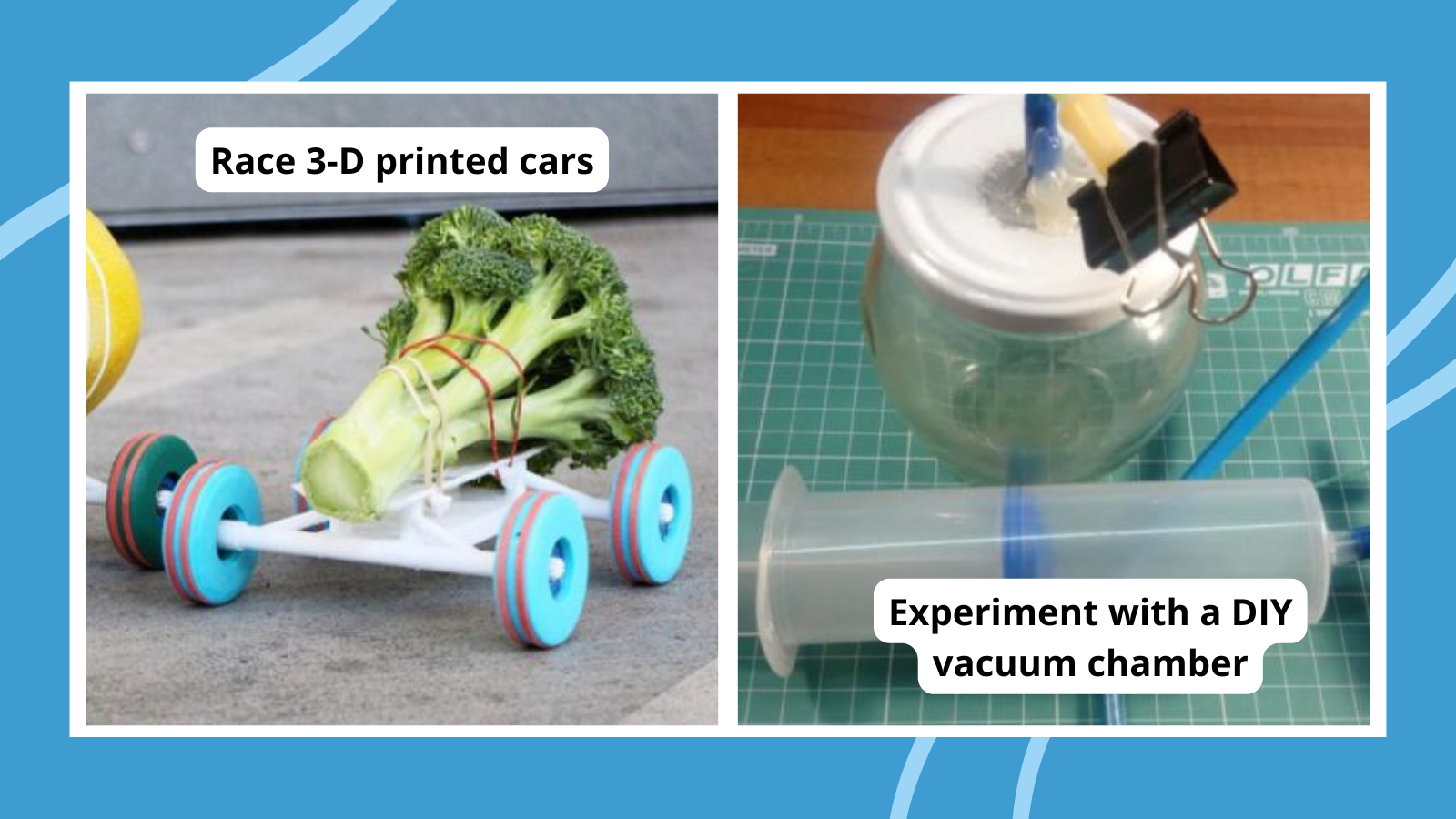
The cool thing about high school science fair projects is that kids are old enough to tackle some pretty amazing concepts. Some science experiments for high school are just advanced versions of simpler projects they did when they were younger, with detailed calculations or fewer instructions. Other projects involve fire, chemicals, or other materials they couldn’t use before.
Note: Some of these projects were written as classroom labs but can be adapted to become science fair projects too. Just consider variables that you can change up, like materials or other parameters. That changes a classroom activity into a true scientific method experiment!
To make it easier to find the right high school science fair project idea for you, we’ve rated all the projects by difficulty and the materials needed:
Difficulty:
- Easy: Low or no-prep experiments you can do pretty much anytime
- Medium: These take a little more setup or a longer time to complete
- Advanced: Experiments like these take a fairly big commitment of time or effort
- Basic: Simple items you probably already have around the house
- Medium: Items that you might not already have but are easy to get your hands on
- Advanced: These require specialized or more expensive supplies to complete
- Biology and Life Sciences High School Science Fair Projects
Chemistry High School Science Fair Projects
Physics high school science fair projects, engineering high school stem fair projects, biology and life science high school science fair projects.
Explore the living world with these biology science project ideas, learning more about plants, animals, the environment, and much more.
Extract DNA from an onion
Difficulty: Medium / Materials: Medium
You don’t need a lot of supplies to perform this experiment, but it’s impressive nonetheless. Turn this into a science fair project by trying it with other fruits and vegetables too.
Re-create Mendel’s pea plant experiment
Difficulty: Medium / Materials: Medium ADVERTISEMENT
Gregor Mendel’s pea plant experiments were some of the first to explore inherited traits and genetics. Try your own cross-pollination experiments with fast-growing plants like peas or beans.
Make plants move with light
By this age, kids know that many plants move toward sunlight, a process known as phototropism. So high school science fair projects on this topic need to introduce variables into the process, like covering seedling parts with different materials to see the effects.
Test the 5-second rule
We’d all like to know the answer to this one: Is it really safe to eat food you’ve dropped on the floor? Design and conduct an experiment to find out (although we think we might already know the answer).
Find out if color affects taste
Just how interlinked are all our senses? Does the sight of food affect how it tastes? Find out with a fun food science fair project like this one!
See the effects of antibiotics on bacteria
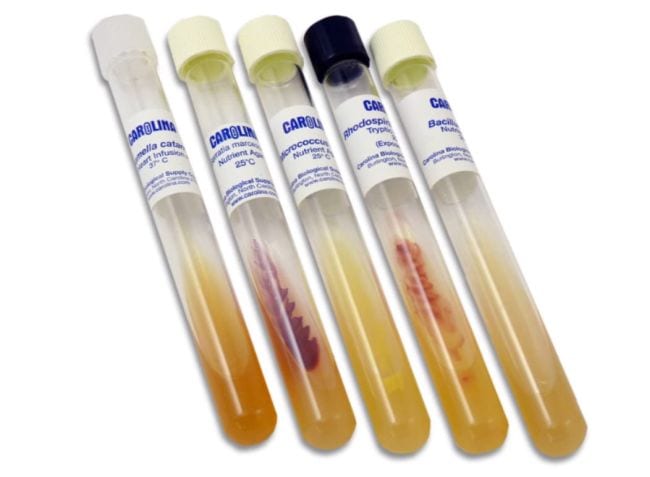
Difficulty: Medium / Materials: Advanced
Bacteria can be divided into two groups: gram-positive and gram-negative. In this experiment, students first determine the two groups, then try the effects of various antibiotics on them. You can get a gram stain kit , bacillus cereus and rhodospirillum rubrum cultures, and antibiotic discs from Home Science Tools.
Learn more: Antibiotics Project at Home Science Tools
Witness the carbon cycle in action

Experiment with the effects of light on the carbon cycle. Make this science fair project even more interesting by adding some small aquatic animals like snails or fish into the mix.
Learn more: Carbon Cycle at Science Lessons That Rock
Look for cell mitosis in an onion
Cell mitosis (division) is actually easy to see in action when you look at onion root tips under a microscope. Students will be amazed to see science theory become science reality right before their eyes. Adapt this lab into a high school science fair project by applying the process to other organisms too.
Test the effects of disinfectants

Grow bacteria in a petri dish along with paper disks soaked in various antiseptics and disinfectants. You’ll be able to see which ones effectively inhibit bacteria growth.
Learn more: Effectiveness of Antiseptics and Disinfectants at Amy Brown Science
Pit hydroponics against soil
Growing vegetables without soil (hydroponics) is a popular trend, allowing people to garden just about anywhere.
More Life Sciences and Biology Science Fair Projects for High School
Use these questions and ideas to design your own experiment:
- Explore ways to prevent soil erosion.
- What are the most accurate methods of predicting various weather patterns?
- Try out various fertilization methods to find the best and safest way to increase crop yield.
- What’s the best way to prevent mold growth on food for long-term storage?
- Does exposure to smoke or other air pollutants affect plant growth?
- Compare the chemical and/or bacterial content of various water sources (bottled, tap, spring, well water, etc.).
- Explore ways to clean up after an oil spill on land or water.
- Conduct a wildlife field survey in a given area and compare it to results from previous surveys.
- Find a new use for plastic bottles or bags to keep them out of landfills.
- Devise a way to desalinate seawater and make it safe to drink.
Bunsen burners, beakers and test tubes, and the possibility of (controlled) explosions? No wonder chemistry is such a popular topic for high school science fair projects!
Break apart covalent bonds
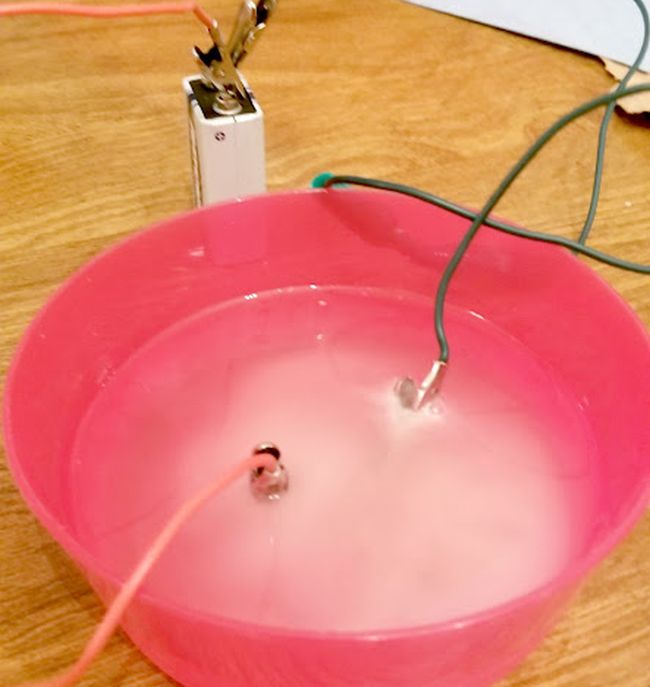
Break the covalent bond of H 2 O into H and O with this simple experiment. You only need simple supplies for this one. Turn it into a science fair project by changing up the variables—does the temperature of the water matter? What happens if you try this with other liquids?
Learn more: Covalent Bonds at Teaching Without Chairs
Measure the calories in various foods
Are the calorie counts on your favorite snacks accurate? Build your own calorimeter and find out! This kit from Home Science Tools has all the supplies you’ll need.
Detect latent fingerprints

Forensic science is engrossing and can lead to important career opportunities too. Explore the chemistry needed to detect latent (invisible) fingerprints, just like they do for crime scenes!
Learn more: Fingerprints Project at Hub Pages
Use Alka-Seltzer to explore reaction rate
Difficulty: Easy / Materials: Easy
Tweak this basic concept to create a variety of high school chemistry science fair projects. Change the temperature, surface area, pressure, and more to see how reaction rates change.
Determine whether sports drinks provide more electrolytes than OJ
Are those pricey sports drinks really worth it? Try this experiment to find out. You’ll need some special equipment for this one; buy a complete kit at Home Science Tools .
Turn flames into a rainbow
You’ll need to get your hands on a few different chemicals for this experiment, but the wow factor will make it worth the effort! Make it a science project by seeing if different materials, air temperature, or other factors change the results.
Discover the size of a mole
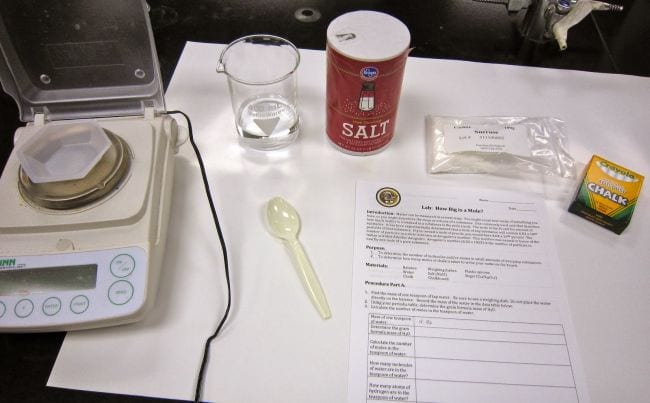
The mole is a key concept in chemistry, so it’s important to ensure students really understand it. This experiment uses simple materials like salt and chalk to make an abstract concept more concrete. Make it a project by applying the same procedure to a variety of substances, or determining whether outside variables have an effect on the results.
Learn more: How Big Is a Mole? at Amy Brown Science
Cook up candy to learn mole and molecule calculations
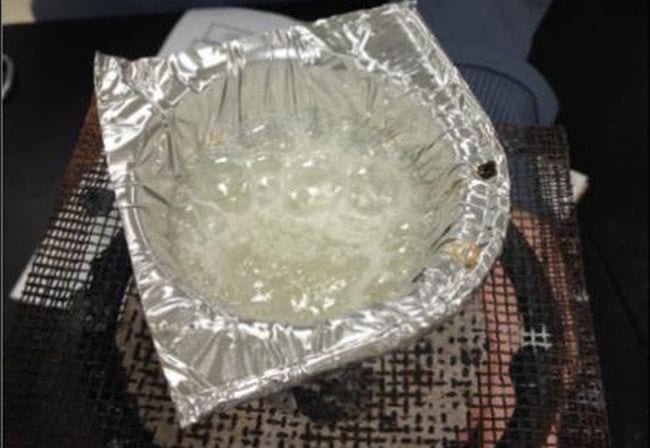
This edible experiment lets students make their own peppermint hard candy while they calculate mass, moles, molecules, and formula weights. Tweak the formulas to create different types of candy and make this into a sweet science fair project!
Learn more: Candy Chemistry at Dunigan Science on TpT
Make soap to understand saponification

Take a closer look at an everyday item: soap! Use oils and other ingredients to make your own soap, learning about esters and saponification. Tinker with the formula to find one that fits a particular set of parameters.
Learn more: Saponification at Chemistry Solutions on TpT
Uncover the secrets of evaporation
Explore the factors that affect evaporation, then come up with ways to slow them down or speed them up for a simple science fair project.
Learn more: Evaporation at Science Projects
More Chemistry Science Fair Projects for High School
These questions and ideas can spark ideas for a unique experiment:
- Compare the properties of sugar and artificial sweeteners.
- Explore the impact of temperature, concentration, and seeding on crystal growth.
- Test various antacids on the market to find the most effective product.
- What is the optimum temperature for yeast production when baking bread from scratch?
- Compare the vitamin C content of various fruits and vegetables.
- How does temperature affect enzyme-catalyzed reactions?
- Investigate the effects of pH on an acid-base chemical reaction.
- Devise a new natural way to test pH levels (such as cabbage leaves).
- What’s the best way to slow down metal oxidation (the form of rust)?
- How do changes in ingredients and method affect the results of a baking recipe?
When you think of physics science projects for high school, the first thing that comes to mind is probably the classic build-a-bridge. But there are plenty of other ways for teens to get hands-on with physics concepts. Here are some to try.
Remove the air in a DIY vacuum chamber
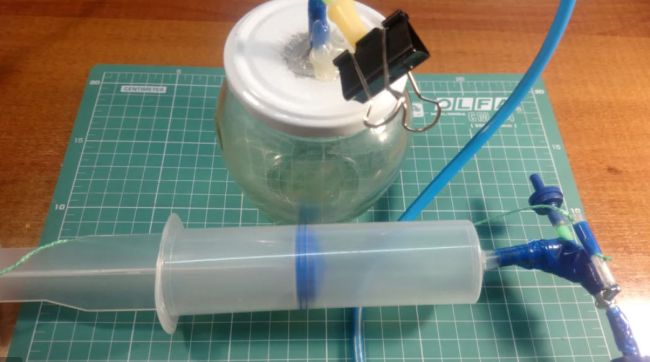
You can use a vacuum chamber to do lots of cool high school science fair projects, but a ready-made one can be expensive. Try this project to make your own with basic supplies.
Learn more: Vacuum Chamber at Instructables
Put together a mini Tesla coil
Looking for a simple but showy high school science fair project? Build your own mini Tesla coil and wow the crowd!
Boil water in a paper cup
Logic tells us we shouldn’t set a paper cup over a heat source, right? Yet it’s actually possible to boil water in a paper cup without burning the cup up! Learn about heat transfer and thermal conductivity with this experiment. Go deeper by trying other liquids like honey to see what happens.
Build a better light bulb
Emulate Edison and build your own simple light bulb. You can turn this into a science fair project by experimenting with different types of materials for filaments.
Measure the speed of light—with your microwave
Grab an egg and head to your microwave for this surprisingly simple experiment. By measuring the distance between cooked portions of egg whites, you’ll be able to calculate the wavelength of the microwaves in your oven and, in turn, the speed of light.
Generate a Lichtenberg figure
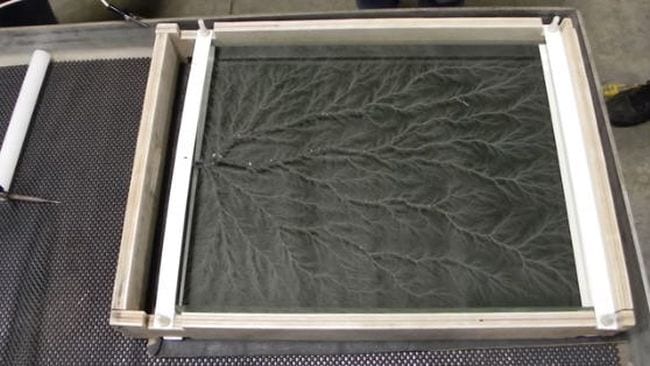
See electricity in action when you generate and capture a Lichtenberg figure with polyethylene sheets, wood, or even acrylic and toner. Change the electrical intensity and materials to see what types of patterns you can create.
Learn more: Lichtenberg Figure at Science Notes
Explore the power of friction with sticky note pads
Difficulty: Medium / Materials: Basic
Ever try to pull a piece of paper out of the middle of a big stack? It’s harder than you think it would be! That’s due to the power of friction. In this experiment, students interleave the sheets of two sticky note pads, then measure how much weight it takes to pull them apart. The results are astonishing!
Build a cloud chamber to prove background radiation
Ready to dip your toe into particle physics? Learn about background radiation and build a cloud chamber to prove the existence of muons.
Measure the effect of temperature on resistance
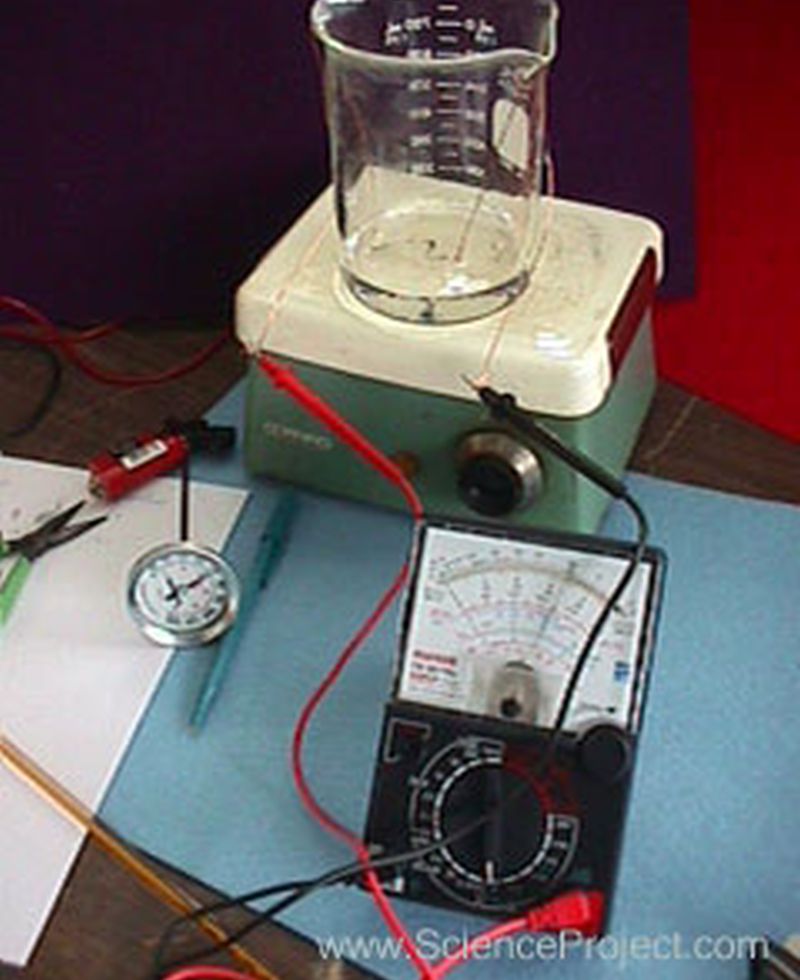
This is a popular and classic science fair experiment in physics. You’ll need a few specialized supplies, but they’re pretty easy to find.
Learn more: Temperature and Resistance at Science Project
Launch the best bottle rocket
A basic bottle rocket is pretty easy to build, but it opens the door to lots of different science fair projects. Design a powerful launcher, alter the rocket so it flies higher or farther, or use only recycled materials for your flyer.
More Physics Science Fair Projects for High School
Design your own experiment in response to these questions and prompts.
- Determine the most efficient solar panel design and placement.
- What’s the best way to eliminate friction between two objects?
- Explore the best methods of insulating an object against heat loss.
- What effect does temperature have on batteries when stored for long periods of time?
- Test the effects of magnets or electromagnetic fields on plants or other living organisms.
- Determine the best angle and speed of a bat swing in baseball.
- What’s the best way to soundproof an area or reduce noise produced by an item?
- Explore methods for reducing air resistance in automotive design.
- Use the concepts of torque and rotation to perfect a golf swing.
- Compare the strength and durability of various building materials.
Many schools are changing up their science fairs to STEM fairs, to encourage students with an interest in engineering to participate. Many great engineering science fair projects start with a STEM challenge, like those shown here. Use these ideas to spark a full-blown project to build something new and amazing!
Construct a model maglev train
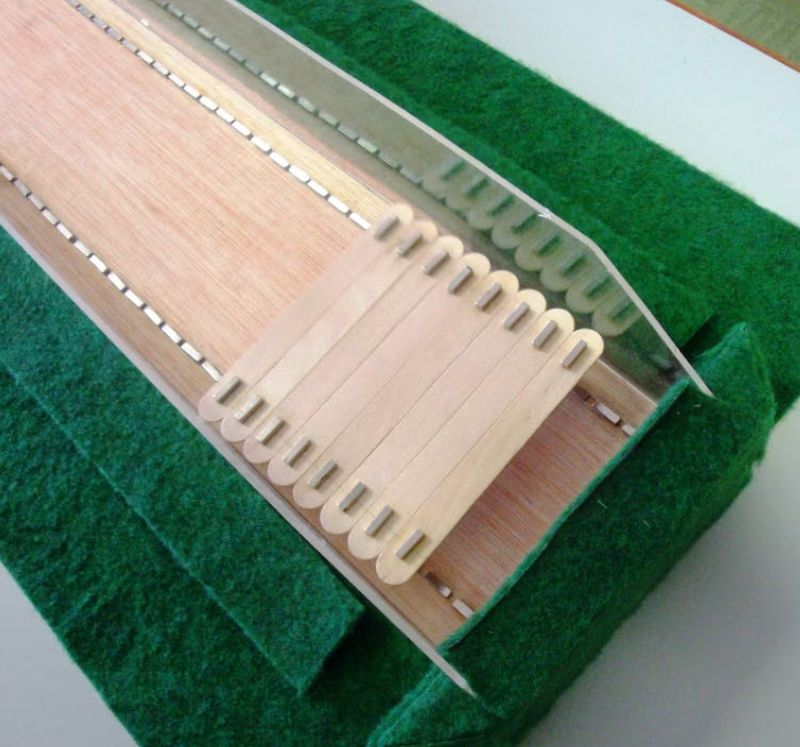
Maglev trains may just be the future of mass transportation. Build a model at home, and explore ways to implement the technology on a wider basis.
Learn more: Maglev Model Train at Supermagnete
Design a more efficient wind turbine
Wind energy is renewable, making it a good solution for the fossil fuel problem. For a smart science fair project, experiment to find the most efficient wind turbine design for a given situation.
Re-create Da Vinci’s flying machine

Da Vinci sketched several models of “flying machines” and hoped to soar through the sky. Do some research into his models and try to reconstruct one of your own.
Learn more: Da Vinci Flying Machine at Student Savvy
Design a heart-rate monitor
Smartwatches are ubiquitous these days, so pretty much anyone can wear a heart-rate monitor on their wrist. But do they work any better than one you can build yourself? Get the specialized items you need like the Arduino LilyPad Board on Amazon.
Race 3D printed cars
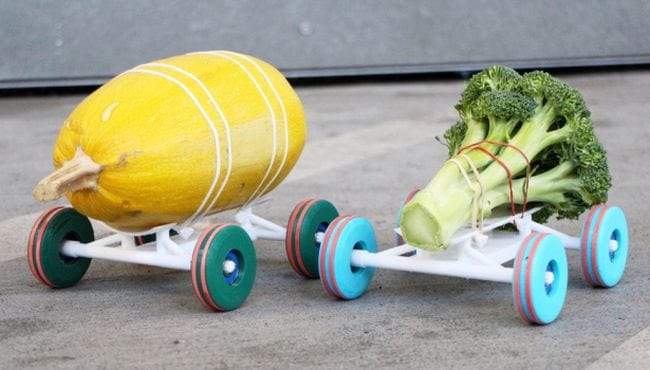
3D printers are a marvel of the modern era, and budding engineers should definitely learn to use them. Use Tinkercad or a similar program to design and print race cars that can support a defined weight, then see which can roll the fastest! (No 3D printer in your STEM lab? Check the local library. Many of them have 3D printers available for patrons to use.)
Learn more: 3D Printed Cars at Instructables
Grow veggies in a hydroponic garden
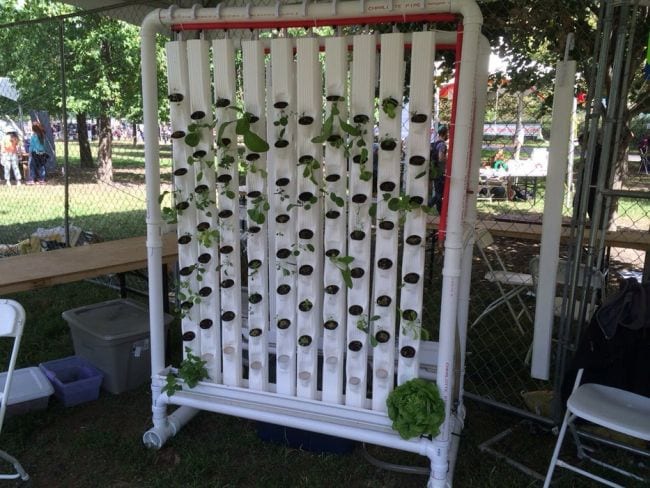
Hydroponics is the gardening wave of the future, making it easy to grow plants anywhere with minimal soil required. For a science fair STEM engineering challenge, design and construct your own hydroponic garden capable of growing vegetables to feed a family. This model is just one possible option.
Learn more: Hydroponics at Instructables
Grab items with a mechanical claw

Delve into robotics with this engineering project. This kit includes all the materials you need, with complete video instructions. Once you’ve built the basic structure, tinker around with the design to improve its strength, accuracy, or other traits.
Learn more: Hydraulic Claw at KiwiCo
Construct a crystal radio
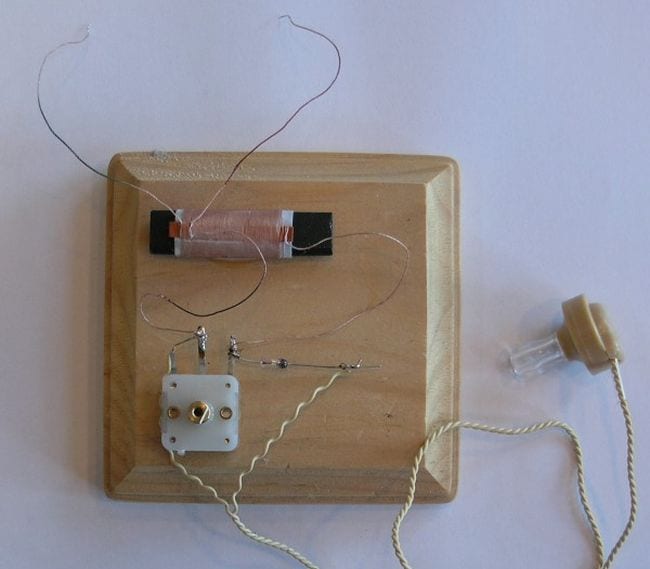
Return to the good old days and build a radio from scratch. This makes a cool science fair project if you experiment with different types of materials for the antenna. It takes some specialized equipment, but fortunately, Home Science Tools has an all-in-one kit for this project.
Learn more: Crystal Radio at Scitoys.com
Build a burglar alarm
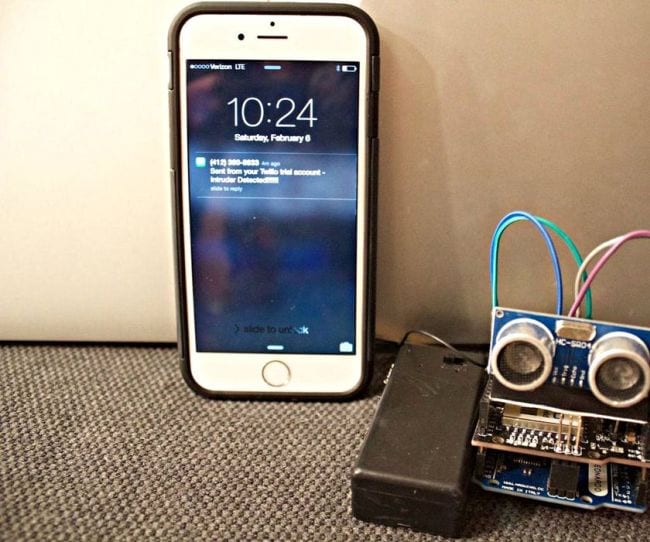
The challenge? Set up a system to alert you when someone has broken into your house or classroom. This can take any form students can dream up, and you can customize this STEM high school science experiment for multiple skill levels. Keep it simple with an alarm that makes a sound that can be heard from a specified distance. Or kick it up a notch and require the alarm system to send a notification to a cell phone, like the project at the link.
Learn more: Intruder Alarm at Instructables
Walk across a plastic bottle bridge
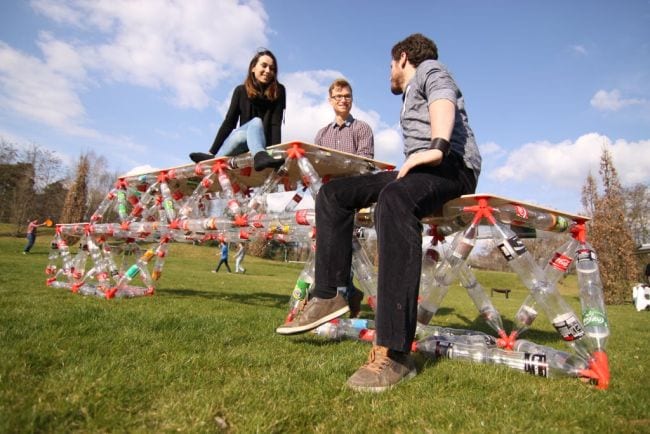
Balsa wood bridges are OK, but this plastic bottle bridge is really impressive! In fact, students can build all sorts of structures using the concept detailed at the link. It’s the ultimate upcycled STEM challenge!
Learn more: TrussFab Structures at Instructables
Looking for more science content? Check out the Best Science Websites for Middle and High School .
Plus, get all the latest teaching tips and tricks when you sign up for our newsletters .
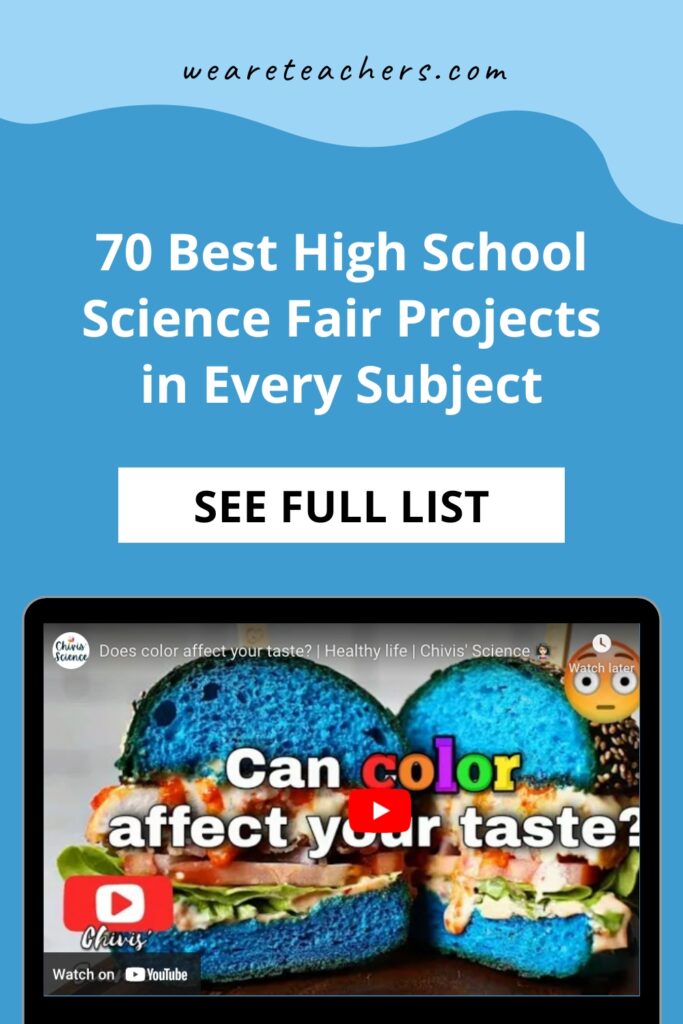
You Might Also Like
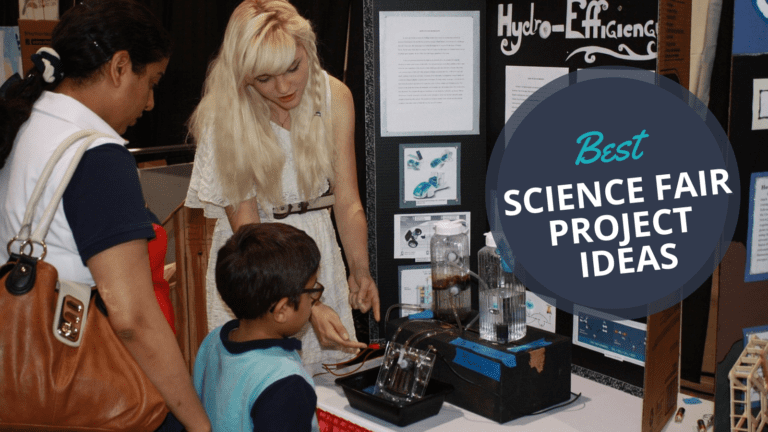
The Big List of Science Fair Project Ideas, Resources, and More
Options for every age, interest, and skill level! Continue Reading
Copyright © 2024. All rights reserved. 5335 Gate Parkway, Jacksonville, FL 32256
What are your chances of acceptance?
Calculate for all schools, your chance of acceptance.
Your chancing factors
Extracurriculars.
31 Research Opportunities + Internships for High Schoolers in 2024
What’s covered:.
- Research Opportunities and Internships for High School Students
- How to Find Research Opportunities in High School
- How Will Doing Research Impact Your College Chances?
Research drives innovation across every field of study, from natural sciences to health to history. Pursuing curiosity can impact industries, drive policy, and help us to better understand the world around us. Without curiosity and research, our society would surely stagnate.
Contrary to popular belief, however, you don’t have to be a seasoned professional to conduct meaningful research. There are plenty of opportunities for high school students to get a head start on their future careers and contribute to substantial change. Keep reading to learn about 30 great opportunities for students looking for early chances to conduct research!
Research Opportunities and Internships for High School Students
1. memorial sloan kettering human oncology and pathogenesis program.
Application Deadline: February 9
Location: New York, NY
Duration: Eight weeks (June 27 – August 22)
Memorial Sloan Kettering (MSK) is one of the most well-known cancer centers in the world. The Human Oncology and Pathogenesis Program (HOPP) at MSK hosts a Summer Student Program for students to conduct independent research projects while participating in extracurricular activities, training, and other opportunities.
During the eight-week program, participants work with a mentor who will act as a supervisor to help them develop their research skills. Additionally, students have the opportunity to complete an independent research project that aligns with their mentor’s work. All participants will present their projects at a poster session at the end of the summer.
To participate, you must have completed at least 9th grade by June 2024, be at least 14 years old by June 27, have a 3.5 GPA in science subjects, and submit two letters of recommendation. This is a paid opportunity—participants will receive a stipend.
2. Rockefeller University Summer Science Research Program
Application Deadline: January 5
Duration: Seven weeks (June 24 – August 8)
The Rockefeller University Summer Science Research Program allows high school students to conduct real, innovative research over seven weeks through the renowned Rockefeller University, under the guidance of leading scientists.
SSRP scholars will be able to design and conduct their own research project as part of a themed research track, which is modeled after a Rockefeller research topic and/or technique, with the help of scientist mentors from the Rockefeller community. Most of the research will be conducted in the RockEDU Laboratory—a 3,000-square-foot research space specifically dedicated to developing biomedical research skills.
Students must be at least 16 years old by the start of the program to participate.
3. Lumiere Research Scholar Program
Application Deadline : Varies by cohort. Main summer deadlines are March 15, April 15, and May 15
Location: Remote — you can participate in this program from anywhere in the world!
Duration: Options range from 12 weeks to 1 year
Founded by Harvard & Oxford researchers, the Lumiere Research Scholar Program is a rigorous research program tailored for high school students. The program pairs high-school students with PhD mentors to work 1-on-1 on an independent research project . At the end of the 12-week program, you’ll have written an independent research paper! You can choose research topics from subjects such as medicine, computer science, psychology, physics, economics, data science, business, engineering, biology, and international relations.
This program is designed to accommodate your schedule—you can participate in the summer, fall, winter, or spring, and the program is also conducted fully remotely. While you must be currently enrolled in high school and demonstrate high academic achievement (most students have an unweighted GPA of 3.3), no previous knowledge of your field of interest is required. The cost of the program ranges from $2,800 to $8,900, but financial aid is available.
Note that this is a selective program. Last year, over 4000 students applied for 500 spots in the program. You can find more details about the application here .
4. Research Science Institute (RSI)
Application Deadline: December 13
Location: Cambridge, MA
Duration: Five weeks (June 23 – August 3)
The prestigious RSI, which takes place at Massachusetts Institute of Technology (MIT) annually, brings together 100 of the world’s top high school students. The free program blends on-campus coursework with off-campus science and technology research.
Participants complete individual research projects while receiving mentorship from experienced scientists and researchers, and present their findings through oral and written reports in a conference-style setting at the end of the program.
5. NYU Tandon – Applied Research Innovations in Science and Engineering (ARISE)
Application Deadline: March 6
Duration: 10 weeks (June 3 – August 9)
Open to New York City high school students who will complete 10th or 11th grade in June 2024, the ARISE program provides access to college-level workshops and lab research across fields like bio, molecular, and chemical engineering, robotics, computer science, and AI.
Over the course of 10 weeks—four virtual and six in person—participants will receive guidance from graduate or postdoctoral students at the NYU Tandon School of Engineering.
6. Simons Summer Research Program
Application Deadline: February 7
Location: Stony Brook, NY
Duration: Five weeks (July 1 – August 9)
During Stony Brook ’s Simons Summer Research Program, high school students conduct hands-on research in areas like science, math, and engineering while working with faculty mentors. Simons Fellows have the opportunity to join real research teams and learn about laboratory equipment and techniques. They also attend weekly faculty research talks and participate in special workshops, tours, and events.
At the closing poster symposium, students will receive a stipend for their participation. To apply, you must be at least 16 years old by the start of the program and currently be in your junior year.
7. SPARK Summer Mentorship Program
Application Deadline: N/A
Location: Greater Seattle area
Duration: 8-10 weeks
SPARK is a summer mentorship program that pairs high-achieving and highly motivated high schoolers with industry experts, university professors, and mentors to conduct research on customers and financial markets. The program is only open to U.S. citizens and permanent residents.
8. MDI Biological Laboratory – Biomedical Bootcamp 2024
Application Deadline: March 18
Location: Bar Harbor, ME
Duration: One week (July 15 – 19)
In this bootcamp, students will receive a hands-on introduction to biomedical research at MDI Biological Laboratory. Participants will learn essential scientific skills such as experimental design and hypothesis testing, cutting-edge laboratory techniques, data analysis, bioinformatics, and scientific communication.
During the program, scientists and bioentrepreneurs at the lab will help participants explore scientific ethics at large, as well as career paths in biomedicine, research, and entrepreneurship in Maine and beyond.
Participants must be at least 16 years old by the start of the program and must be entering their junior or senior year in September 2024, or graduating in June 2024.
9. Boston University – Research in Science & Engineering (RISE) Internship
Application Deadline: February 14
Location: Boston, MA
Duration: Six weeks (June 30 – August 9)
RISE is a six-week program for rising seniors with an interest in pursuing a major and/or career in STEM. There are a multitude of tracks available, in areas such as astronomy, biology, chemistry, computer science, environmental science, and neuroscience. In each track, students conduct research under the mentorship of Boston University faculty, postdoctoral fellows, or graduate students. They will also attend weekly workshops with their peers.
10. The Wistar Institute – High School Program in Biomedical Research
Application Deadline: March 31
Location: Philadelphia, PA
Duration: Four weeks (July 15 – August 8)
A leading biomedical research organization, The Wistar Institute is an ideal setting for students to learn research skills. Participants will complete their own research project while being trained in a principal investigator’s laboratory. They’ll also attend seminars, receive mentorship, and deliver a final presentation about their work.
Students are expected to participate Monday through Thursday from 9:00 am to 4:00 pm. Absences of more than two consecutive days cannot be accommodated. Students will receive a stipend of $1,000 upon completion of the program, to compensate for commuting costs or other personal expenses accrued during the program.
11. California Academy of Sciences – Careers in Science (CiS) Intern Program
Application Deadline: April 1, 2024
Location: San Francisco, CA
Duration: Multi-year, year-round participation (after school and on weekends)
This long term program gives San Francisco students from communities that are underrepresented in STEM the opportunity to learn about the world of science and sustainability. Students receive mentorship, develop career skills, and more—all while getting paid for their work. Students also attend workshops and conferences throughout the course of the program.
12. NASA OSTEM Internship
Application Deadline: February 2
Location: Varies
Duration: Varies
NASA offers a variety of internships for high school students across its numerous campuses. Interns gain real-world work experience by working side by side with research scientists and engineers, which will strengthen their resume and help prepare them for their eventual careers. All participants must be at least 16 years old and enrolled in high school full time.
13. New-York Historical Society Student Historian Internship Program
Application Deadline: April 7
Duration: July 9 – August 15
Not all research is conducted in STEM subjects! Developed for students interested in history, the New-York Historical Society’s Student Historian Program gives participants the opportunity to conduct research on a history topic—2024’s theme is Our Composite Nation: Frederick Douglass’ America . During the program, participants will work with historian mentors, visit history archives around New York City, lead gallery tours, and develop their historical thinking, communication, and digital media skills.
Applicants must be entering grades 10, 11, or 12, and live in the New York City metro area. This opportunity is unpaid for most participants, but some interns with demonstrated financial need can potentially receive a stipend.
14. Adler Planetarium Summer High School Internship
Application Deadline: March 1
Location: Chicago, IL
Duration: Six weeks (July 8 – August 14)
During this summer internship program, students will learn about the Adler Planetarium and the career opportunities within it and planetariums and museums in general, in areas ranging from Visitor Experience and Learning to Research. Students will also get the chance to see how research gets translated into a museum experience.
15. Zuckerman Institute Brain Research Apprenticeships in New York at Columbia University (BRAINYAC)
Application Deadline: TBA for 2025 program
Duration: Eight weeks
BRAINYAC participants receive the rare opportunity to work on research in a lab at Columbia University , one of the most prestigious institutions in the world, as high school students, which results in a stronger, more comprehensive understanding of how scientific discovery happens. They connect with real scientists, acquire essential research and laboratory skills, and learn about advances in neuroscience research.
In order to apply, you must be in 10th or 11th grade and must be nominated by one of the program’s partners—S-PREP, Lang Youth Medical, Double Discovery Center, Columbia Secondary School, or BioBus.
16. Brookfield Zoo King Conservation Science Scholars Program
Application Deadline: Rolling admission
Location: Brookfield, IL
Duration: N/A
Interactive workshops, fun activities, research, and community-based projects are at the core of this exciting internship. It’s an excellent opportunity for students who love animals and also want to gain research skills in the domains of zoology, environmental science, and conservation.
As a King Scholar, you’ll learn about different topics through Foundation Courses, such as Diversity Awareness and Introduction to Conservation, all while networking with others and preparing for college and an eventual career in a related field. After one year of participation, you’ll be invited to apply for scholarships and paid positions at the zoo.
17. The Science Research Mentoring Program (SRMP) at the American Museum of Natural History
Application Deadline: March 8
Duration: One year (August to June)
The American Museum of Natural History is one of the most iconic and fascinating places in New York City. Its Science Research Mentoring Program is an amazing opportunity for NYC high school students to conduct a yearlong research project with Museum scientists.
Students in SRMP get paid to learn how scientific research is conducted. Depending on their topic of study, students can learn a variety of different research skills, like working with DNA in the lab, analyzing data from space-based telescopes, reading scientific articles, and learning to code and analyze data in Python, R, and other programming languages.
18. Anson L. Clark Scholars Program
Application Deadline: February 15
Location: Lubbock, TX
Duration: Seven weeks (June 16 – August 1)
Through the Anson L. Clark Scholar Program, an intensive seven-week summer research program for twelve highly qualified high school juniors and seniors, students will gain hands-on experience with practical research alongside experienced and knowledgeable faculty at Texas Tech University .
Students can choose to participate in research in one field from a broad variety of options, including cell and molecular biology, chemistry, computer science, economics, engineering, history, and more!
To apply, students must complete an online application that includes short essays, high school transcripts, test scores (at least a PSAT if no others are available), three recommendations (at least two from teachers), and a list of the student’s top five activities.
19. UChicago Data Science Institute Summer Lab Program
Application Deadline: January 16
Duration: Eight weeks (June 10 – August 2)
The Data Science Institute Summer Lab Program is an immersive eight-week paid summer research program at the University of Chicago . During the program, high school and undergraduate students are paired with a data science mentor, whose expertise could be in computer science, data science, social science, climate and energy policy, public policy, materials science, biomedical research, or another related field.
Participants will hone their research methodology, research practice, and teamwork skills. No prior research experience is required to apply. All participants will receive access to applied data science research, which they will use to craft a research project. The project findings will be presented in a video that will be shown at an end-of-summer symposium.
20. UT Austin College of Natural Sciences High School Research Academy
Application Deadline: March 24
Location: Austin, TX
Duration: Five weeks (June 10 – July 17)
Through UT Austin ’s HSRA, high school students participate in interdisciplinary research projects being conducted by active College of Natural Sciences laboratories in fields such as biochemistry, biology, environmental science, genetics, neuroscience, genome engineering, data analytics, ecology, and more.
There is a scholarship fund for underserved groups, so some stipends and free tuition scholarships may be available to students with demonstrated financial need.
21. Max Planck Florida Institute for Neuroscience – Summer Research Internship
Location: Jupiter, FL
Duration: Six weeks (June 17 – July 26)
The MPFI Summer Research Internship offers rising juniors and seniors an immersive laboratory experience where they can learn from seasoned researchers. The program is designed specifically for students with an interest in brain structure, function and development, and the advanced imaging techniques and technologies used in neuroscience.
Program participants will participate in research projects alongside MPFI scientists, prepare a written scientific abstract based on their research project, and deliver a short presentation at the end of the summer. Research tracks include neuroscience, scientific computer programming, and mechanical engineering as it relates to neuroscience.
Applicants must be entering their junior or senior years in a Palm Beach or Martin County high school, be residents of one of those two counties, and be at least 16 by the beginning of the internship. Interns will be paid at a rate of $12.50 per hour.
22. Lincoln Park Zoo Malott Family Zoo Intern Program
Application Deadline: March 11
Duration: Seven weeks (June 24 – August 9)
During this paid seven-week program, high school students learn how to educate others about animal and conservation sciences while crafting digital messages to engage audiences. The program culminates in a final project. Throughout the internship, students meet with researchers and the Animal Care staff to explore careers in the animal science and conservation fields.
Applicants must be Chicago residents between the ages of 15-18, and must be entering grades 10-12 or their freshman year of college by the start of the internship.
23. The Scripps Research High School Internship Program
Application Deadline: April 19
Location: La Jolla, CA
Duration: Seven weeks
The Scripps Research Institute’s La Jolla, California headquarters is proud to offer a seven-week hands-on research experience for San Diego County high schoolers. The program is specially designed to expose students to careers in the biological and chemical sciences, to provide hands-on laboratory experience, and to motivate and prepare students for continuing education in STEM.
Because Scripps is committed to increasing the number of students from underrepresented communities in STEM college programs, a special emphasis is placed on identifying and recruiting students who are from groups that are historically underrepresented in the sciences. All students will receive a $4,760 stipend.
24. QuarkNet Summer Research Program
Application Deadline: January 31
Location: DuPage County, IL
Duration: Seven weeks (June 17 – August 2)
High school sophomores, juniors, and seniors with a strong interest in STEM have a unique opportunity to work with scientists on research projects during this paid seven-week program at the prestigious Fermilab, located just outside of Chicago near Batavia, IL.
Interns are encouraged to indicate areas in which they have a particular interest, although research projects vary yearly based on the work ongoing at the lab. Broadly speaking, Fermilab’s focus is on particle physics.
Required application materials include a questionnaire, a letter of recommendation, and an essay. To apply, students must have U.S. citizenship or permanent resident status and must provide evidence of identity and eligibility to work in the United States. Participants will be paid at a rate of $17.20 per hour.
25. RISE Environmentor Internship
Location: Far Rockaway, NY
Duration: Six weeks (July 1 – August 15)
The Environmentor Internship offers a great opportunity for 9th through 11th graders who live or attend school near the Rockaway Peninsula to gain firsthand research experience. Participants are mentored by scientists from local universities and research institutions as they work on projects focused on the Rockaway shoreline. Past research topics have included sea turtle strandings, octopus behavior, mussel denitrification, and dolphin fin morphology.
Students will also take part in water safety courses, receive CPR training, and explore on-water activities like kayaking and surfing. Students receive up to a $1,200 stipend, as well as community service hours for their participation in the program.
26. Stanford Institutes of Medicine Summer Research Program (SIMR)
Application Deadline: February 24
Location: Stanford, CA
Duration: Eight weeks (June 10 – August 1)
Students in this summer program are given the chance to perform research on a medically oriented project and work side by side with Stanford University students, researchers, and faculty. Students can choose from eight areas of research, including topics like immunology, cancer biology, and bioinformatics, which are all designed to increase their interest in the biological sciences and provide a deeper understanding of how scientific research is conducted.
The program is open to current high school juniors and seniors. Students will receive a minimum $500 stipend for their participation in the program.
27. Secondary Student Training Program
Application Deadline: February 16
Location: Iowa City, IA
Duration: June 19 – July 26
High schoolers in grades 10 and 11 can take part in an immersive research experience, which will allow them to explore their interests, enhance their academic skills, and build relationships with their peers during this research-focused summer program.
Participants can choose from a multitude of research areas, ranging from biology to industrial and systems engineering to religious studies. The program culminates with students creating and presenting a poster of their findings. All participants will live on the University of Iowa ‘s campus for the duration of the program, and have access to all of the university’s libraries, study areas, and computer facilities.
Although this program is quite expensive, with a fee of $7,500, financial aid is available to cover up to 95% of the cost.
28. Young Scholars Summer STEMM Research Program
Location: Urbana, IL
Duration: Six weeks (June 20 – August 2)
This program, offered by the prestigious Grainger College of Engineering at University of Illinois at Urbana-Champaign (UIUC) , allows students to gain hands-on research experience in fields such as cancer immunology, AI, physics, quantum mechanics, and electrical engineering. They will also build valuable general life skills by participating in seminars on topics ranging from the college admission process to how to communicate scientifically.
The program is open to rising 10th through 12th graders from Illinois, Indiana, Kentucky, Michigan, Missouri, Iowa, and Wisconsin.
29. Summer Science Program (SSP)
Duration: Varies depending on location and field of focus
Students in the SSP get the chance to work in small teams on a real research project and gain firsthand experience taking and analyzing data. Research opportunities are offered in three fields—astrophysics, biochemistry, and genomics—and are held at a variety of institutions, including University of North Carolina at Chapel Hill , Georgetown University , Purdue University , and New Mexico State University .
The program is open to high school juniors, although a small number of exceptional sophomores have attended the program. You must be between 15-19 to participate, and have completed prerequisite coursework, which varies by field. Financial aid is available for this program.
30. The Jackson Laboratory Summer Student Program
Application Deadline: January 29
Location: Bar Harbor, ME, and Farmington, CT
Duration: 10 weeks (June 1 – August 10)
Students immerse themselves in genetics and genomics research while learning about laboratory discovery and scientific communication, as well as building professional skills. Over the course of the 10-week program, students work with a mentor to develop a research project, implement their plan, analyze their data, and report their results.
This prestigious program is competitive. Just 40 students are selected to participate annually. Participants receive a $6,500 stipend and have their room, board, and travel expenses covered.
31. Fred Hutch Summer High School Internship Program
Application Deadline: March 31
Location: Seattle, WA
Duration: Eight weeks (June 24 – August 16)
This full-time, paid internship opportunity offers students a chance to immerse themselves in activities at the Fred Hutch Cancer Center, one of the top cancer research centers in the world. The program begins with two weeks of laboratory training and is followed by six weeks of mentored activities, research seminars, workshops focused on college and careers, and social activities.
The program is open to high schoolers entering their senior year with a strong interest in science and high academic achievement, and is specifically aimed at students from backgrounds underrepresented in biomedical science. Interns receive a stipend upon successful completion of the program.
How to Find Research Opportunities in High School
Define your area of interest .
Before you start looking for opportunities, narrow your area of interest a bit, whether it’s cancer, engineering, computer science, neuroscience, or something else entirely. Also bear in mind that while there may be more STEM opportunities available for high school students, research isn’t limited to these fields—research is also a key component of the social sciences, humanities, and other non-STEM fields.
While you should be somewhat specific about what you’re hoping to research, don’t narrow your scope so much that it’s impossible to find a valuable opportunity, especially since opportunities for high schoolers in general are more limited than they are for students who have completed at least some college.
Talk to People in Your Immediate Circle
Teachers, neighbors, your family, parents of friends, friends of your parents—any of these people could know about a research opportunity for you, or at least know someone else who does. Throughout your life, you will find that networking is often the key to finding career opportunities.
Leveraging your network can help you uncover unique opportunities crowdsourced by the people who know you best—the best opportunities aren’t always hosted by large universities or programs.
Reach Out to Local Institutions and Laboratories
In addition to networking with your immediate circle, reach out to local facilities, such as labs, hospitals, clinics, and universities that conduct research. Even if opportunities aren’t publicized, these institutions and laboratories may be willing to make room for you. Remember: when pitching your idea, don’t make it too niche—this will make it more difficult to find a fit and market your skills to labs.
Cast a Wide Net
Research opportunities are hard to secure, especially when you’re a young student, so you need to be persistent. You may need to write a hundred emails, but if you put in the effort and cast a wide net, you’ll vastly improve your chances of landing a great opportunity.
Try not to be too picky, either. Of course, you shouldn’t just accept any offer , especially if it doesn’t appeal to you. But even if the opportunity doesn’t align perfectly with your skills and interests, it can still be a great chance to gain experience and make you a better candidate for future experiences.
How Will Doing Research Impact Your College Chances?
How much participating in research enhances your college admissions profile depends on many factors, including the scope of the project, the prestige of the program or institution, your individual role and performance, the institution’s connections to or sponsorships by certain colleges, and even how much weight a college places on extracurricular activities in general.
Generally speaking, there are four tiers of extracurricular activities that colleges think about when reviewing applicants’ activities. Selective, competitive, and prestigious activities are often found in the top tiers, Tier 1 and Tier 2. Tier 1 includes things such as being a highly recruited basketball player or an award-winning national science fair competitor.
Tier 2 is similar, but is usually reserved for activities that are less exceptional than those in Tier 1. Tiers 3 and 4 are reserved for more common extracurricular achievements, such as holding school leadership positions or being a member of a debate team.
Research usually falls into Tier 2, and some particularly prestigious opportunities could even be Tier 1. That’s because it’s somewhat unusual for high school students to conduct research in professional and collegiate settings, so it’s more likely to impress colleges than other kinds of extracurricular activities.
Do you want to find out the impact research and other extracurricular activities might have on your chances of admission to top colleges and universities? Try using CollegeVine’s free chancing calculator !
Our tool evaluates your admissions profile, by accounting for factors like your grades,standardized test scores, and extracurriculars (including research!) to show you how you stack up against other applicants and how likely you are to get into hundreds of different colleges and universities. You’ll also receive tips on how to improve your profile and your odds—all for free.
Disclaimer: This post includes content sponsored by Lumiere Education.
Related CollegeVine Blog Posts


30 Best Science Experiments & Projects for High School
Welcome to our round-up of top science fair projects and science experiments tailored specifically for curious high school students.
Science fair is not just about the glitz and glamour of a first-place trophy; it’s about the passion, the inquiry, and the insatiable curiosity that drive every scientist, young and old. Hopefully, our curated list of the best hands-on science fair projects for high school students will ignite that curiosity in you.
Each project on this list offers a unique opportunity to dive deep into scientific inquiry and present findings with both clarity and flair.
Let’s dive in and make learning an unforgettable adventure!
1. Burn Calories
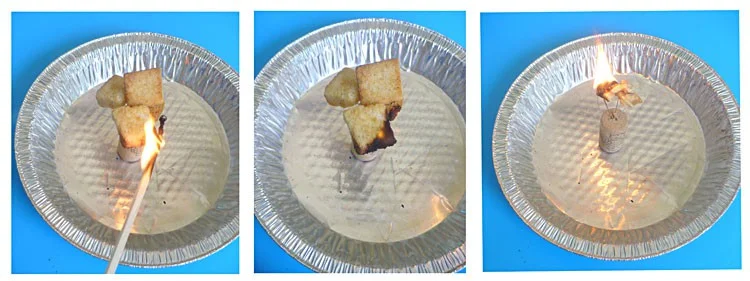
Don’t miss this opportunity to unravel the mysteries of energy transformation and uncover the scientific secrets hidden in the simplest of substances!
Learn more: Science Buddies
2. Extracting DNA from Strawberry
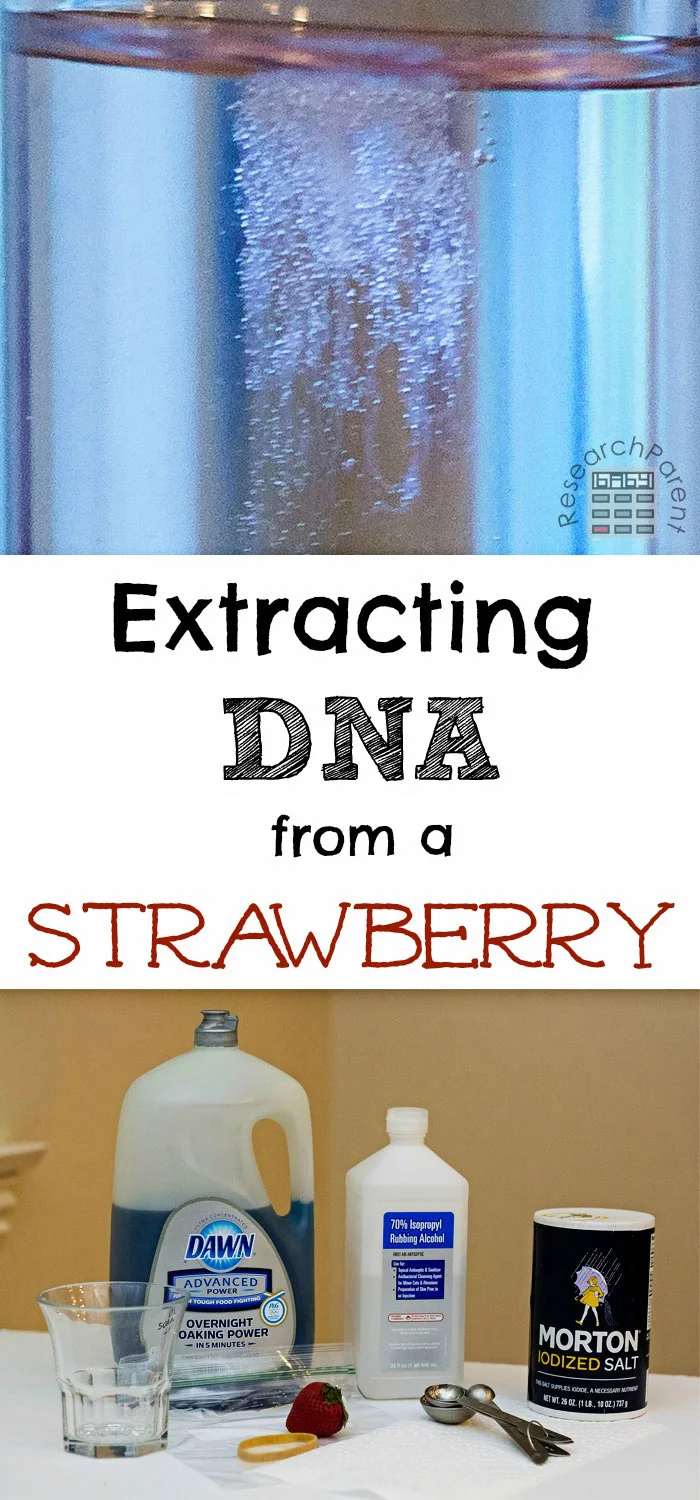
By following a series of simple yet insightful steps, students will witness the magical moment of DNA extraction, fostering a deeper appreciation for the fundamental building blocks of life.
Learn more: Extracting DNA from Strawberry
3. Build a Simple DIY Newton’s Cradle
As students assemble the materials and witness the rhythmic dance of swinging spheres, they will witness the scientific principles they’ve learned in the classroom come to life before their eyes.
4. Make a Monster Dry Ice Bubbles
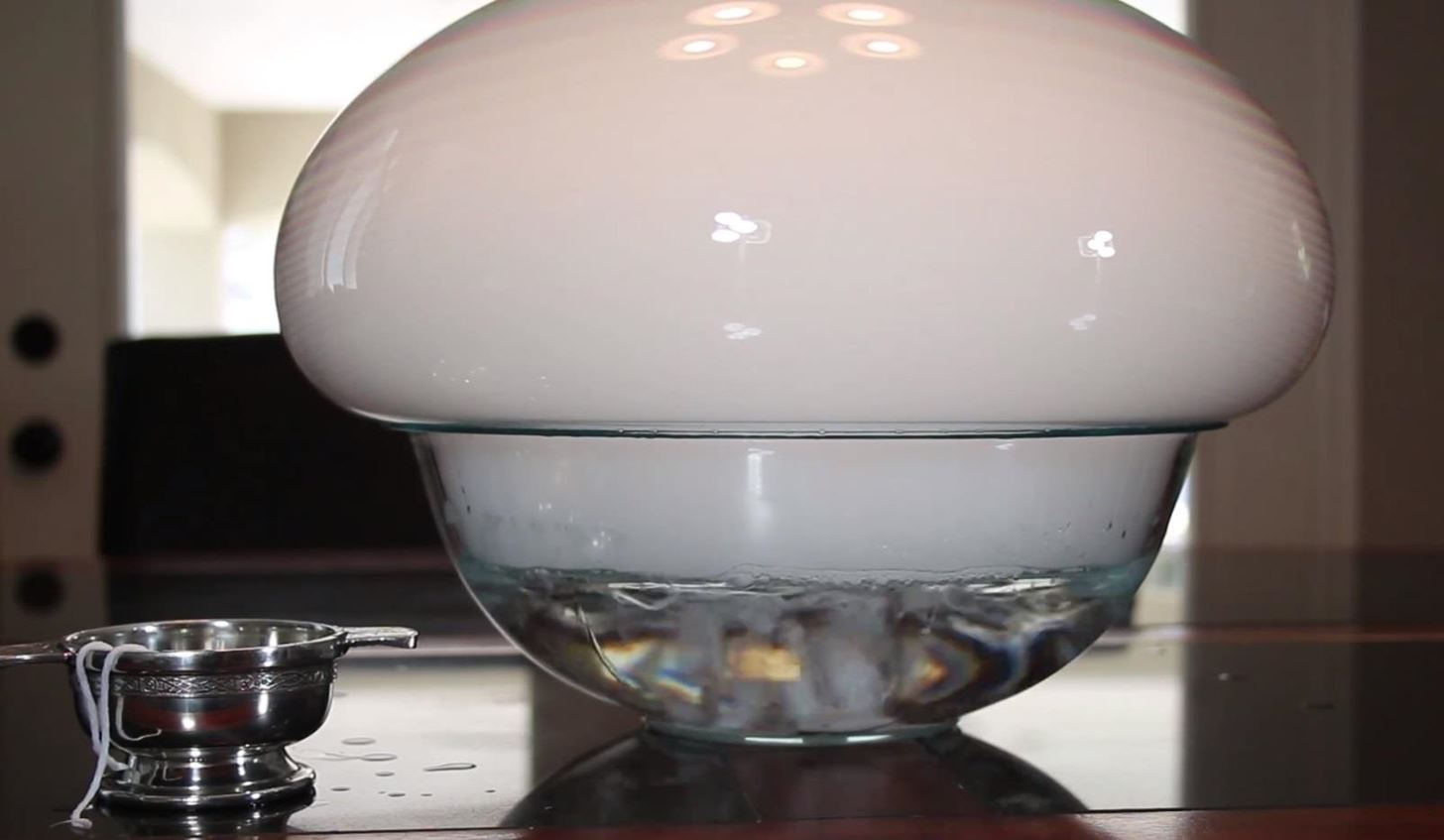
Unleash your inner mad scientist and learn how to make Monster Dry Ice Bubbles with this high school science experiment!
Get ready to be captivated as you create giant, spooky bubbles that dance and swirl with the mysterious power of dry ice.
Learn more: Wonder How To
5. Soil Erosion Experiment
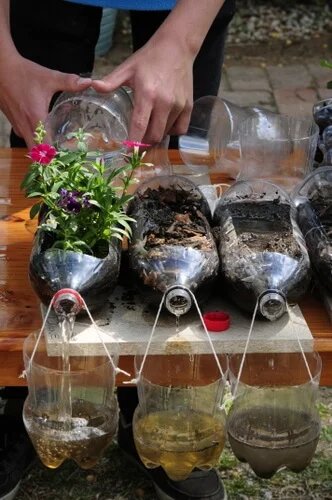
As stewards of our environment, it’s crucial to comprehend the impact of natural processes like soil erosion.
Through this experiment, students will gain a deeper appreciation for the significance of soil conservation and sustainable land management practices.
Learn more: Life is a Garden
6. Candle Carousel
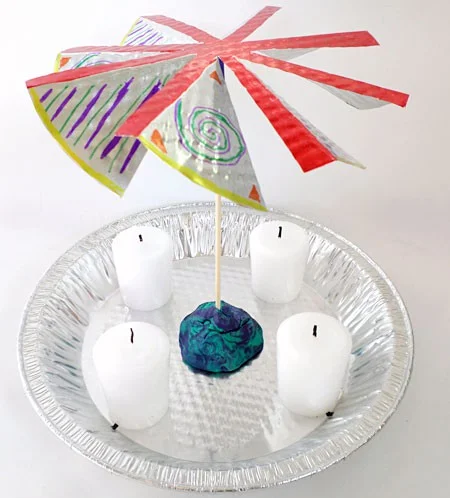
This experiment combines the wonders of physics with the art of crafting, making it an enriching experience that ignites curiosity and fosters a deeper appreciation for the elegant dance of energy in our world.
7. Find Out if Water Conducts Electricity
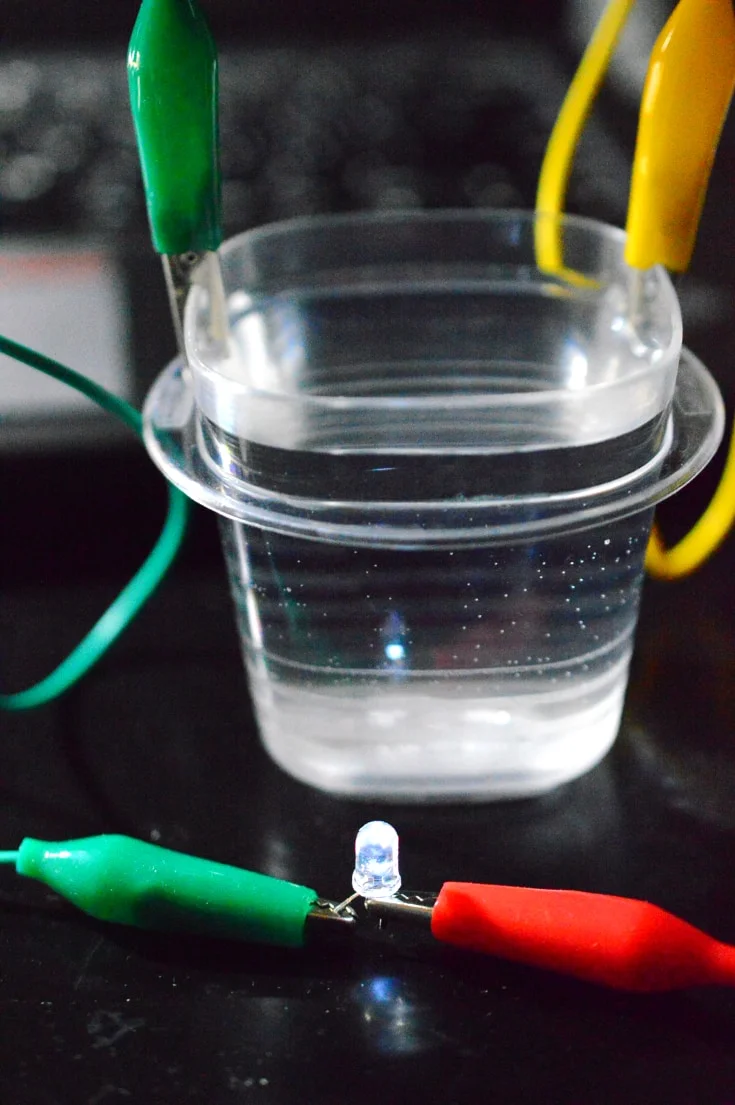
In this captivating activity, students will explore the conductive properties of water and unlock the secrets of how electrical currents flow through different substances.
Learn more: Rookie Parenting
8. Roller Coaster Stem Experiment
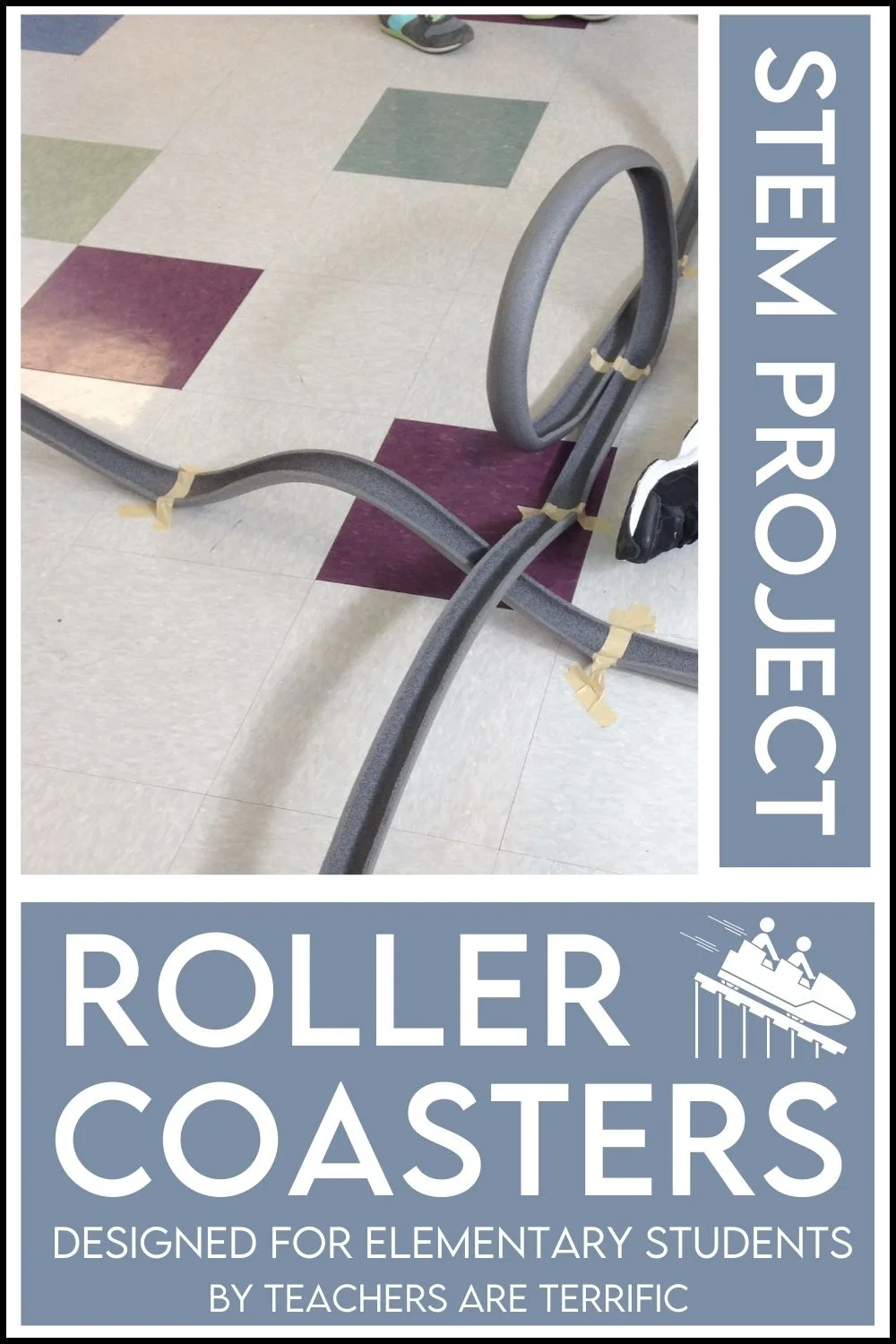
By experimenting with various designs and track configurations, students will refine their problem-solving skills and gain valuable insights into the practical applications of physics and engineering.
Learn more: STEM Project
9. Lemon Battery
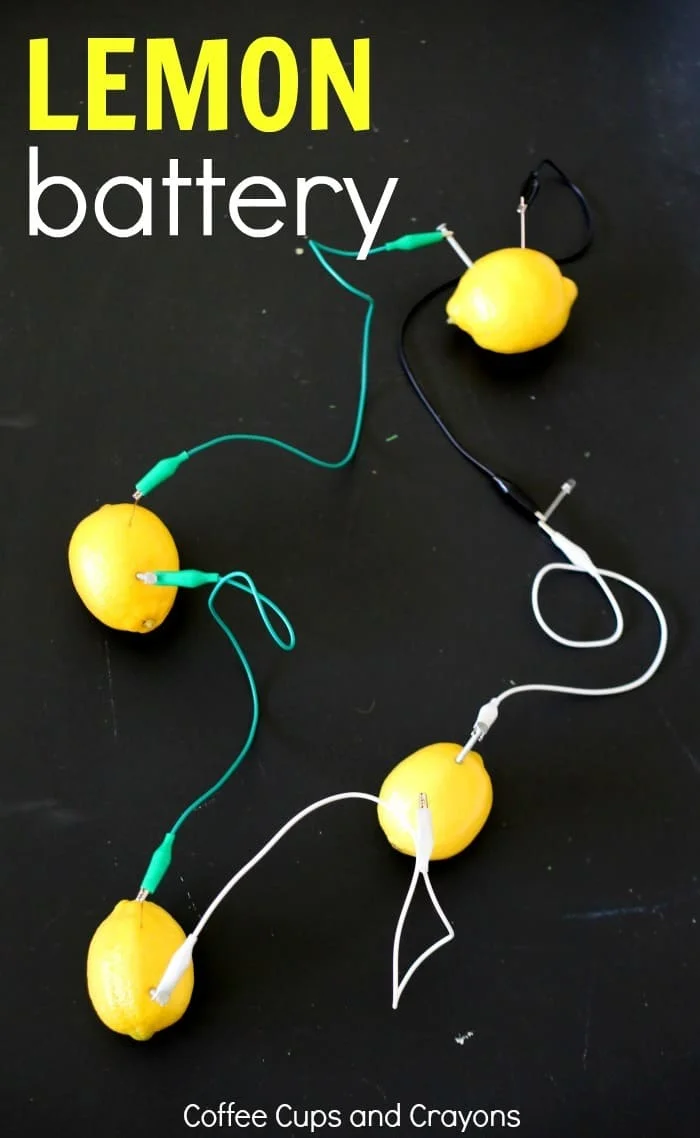
Engaging in this experiment not only teaches the basics of electrical circuits but also sparks curiosity about the natural world and the science behind it.
Learn more: Coffee Cups and Crayons
10. Watering Plants Using Different Liquids
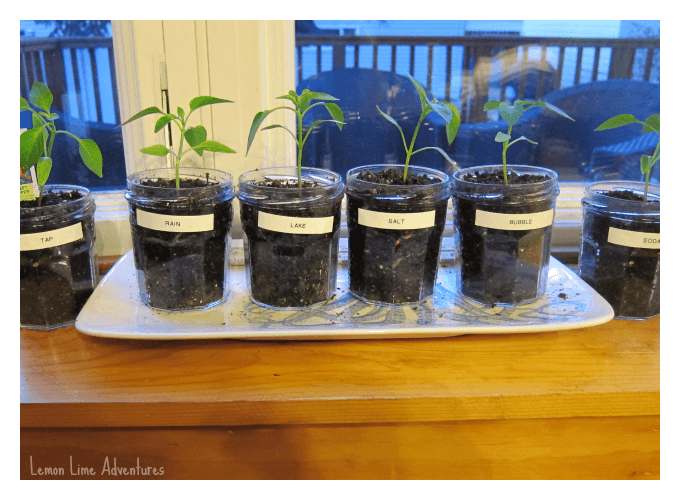
Discover the wonders of plant hydration with the intriguing high school science experiment – “Watering Plants Using Different Liquids.” In this captivating project, students explore how various liquids impact plant growth and health.
Learn more: Lemon Lime Adventures
11. Measure Electrolytes Found in Sports Drinks
By conducting a series of tests and analyses, students will quantify the electrolyte content present in various sports drinks.
12. Relight the Flame Without Directly Touching It
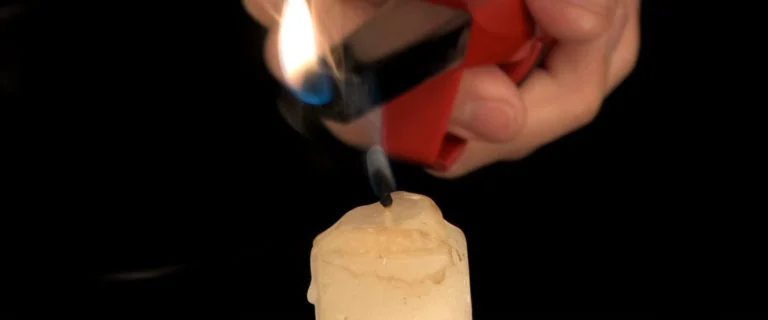
This captivating project challenges students to learn about the intriguing properties of heat transfer and combustion.
By exploring different methods to reignite a candle flame without physical contact, students will uncover the secrets of heat conduction, convection, and radiation.
Learn more: Stevespangler
13. Conduct Fingerprint Analysis
This captivating project immerses students in the intriguing world of crime scene investigations, where they will uncover the uniqueness of fingerprints and their role in forensic science.
14. Separate Water Into Hydrogen And Oxygen Using Electrolysis
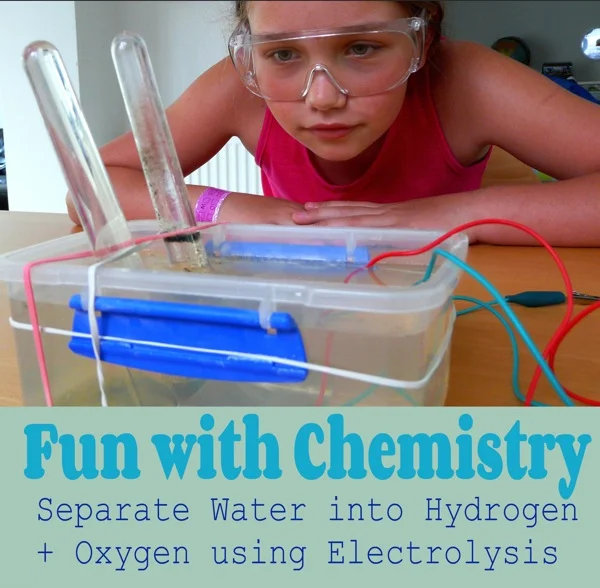
This electrifying project allows students to explore electrolysis and the decomposition of water into its elemental components.
Learn more: Navigating by Joy
15. Simple Color Detection Circuit
This experiment not only introduces fundamental concepts in electronics and circuitry but also opens up endless possibilities for real-life applications, from automated sorting systems to color-sensitive devices.
16. Carbon Sugar Snake
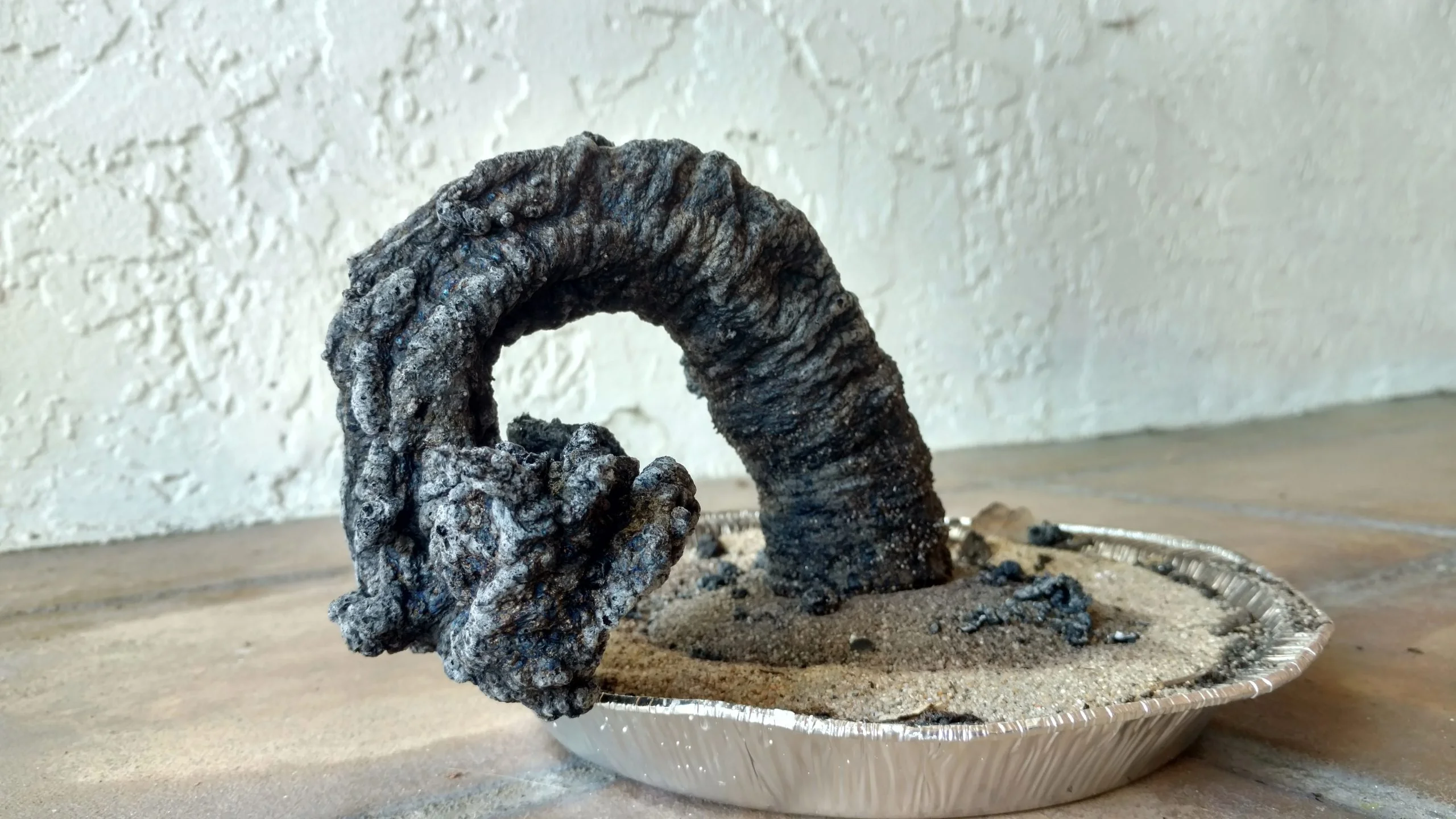
This enchanting project allows students to witness a dazzling display of science as they combine common household ingredients to create a dark, coiling “snake” made of carbon.
Learn more: Kiwi Co
17. Build a Hydraulic Elevator
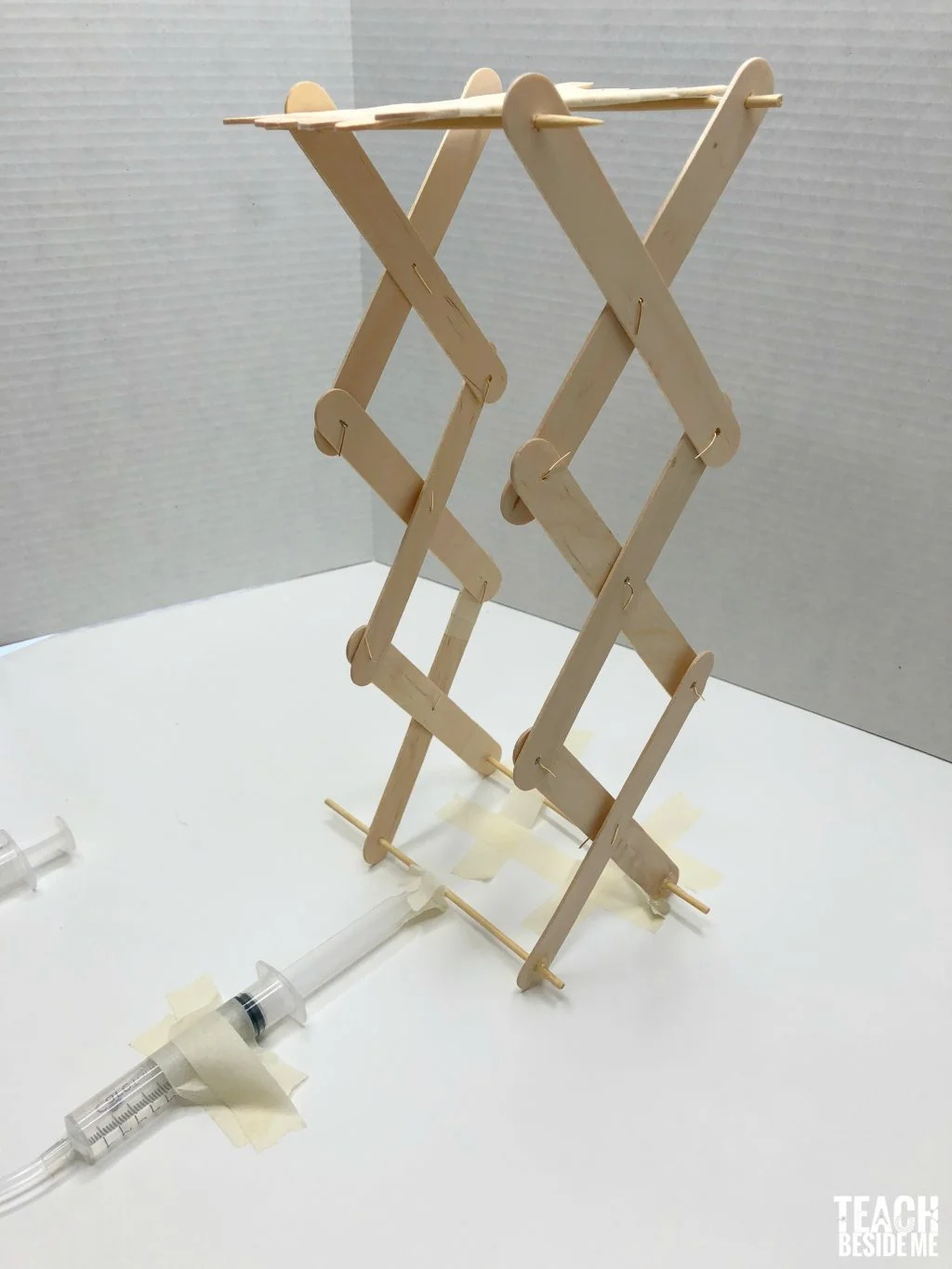
This captivating project invites students to learn about engineering and fluid mechanics. By constructing a working model of a hydraulic elevator, students will explore the principles of Pascal’s law and the fascinating concept of fluid pressure.
Learn more: Teach Beside Me
18. Brew up Some Root Beer
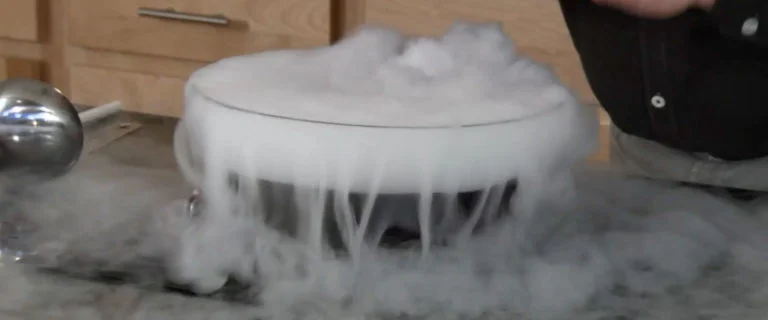
This enticing project invites students to explore the fascinating world of chemistry and fermentation while creating their own delicious and bubbly concoction.
Learn more: Home School Creations
19. Extracting Bismuth From Pepto-Bismol Tablets

This hands-on experiment not only sheds light on the principles of chemistry and lab techniques but also highlights the real-world applications of bismuth in medicine and various industries.
Learn more: Popscie
20. Solar-Powered Water Desalination
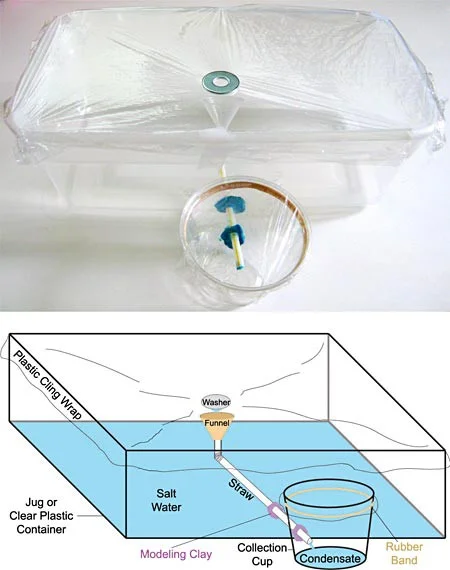
By designing and building a solar-powered water desalination system, students will learn how to harness the sun’s energy to purify saltwater and make it safe for consumption.
21. Applying Hooke’s Law: Make Your Own Spring Scale

By designing and constructing their very own spring scale, students will uncover the principles of Hooke’s Law and the relationship between force and displacement in a spring system.
22. Homemade Hand Warmer
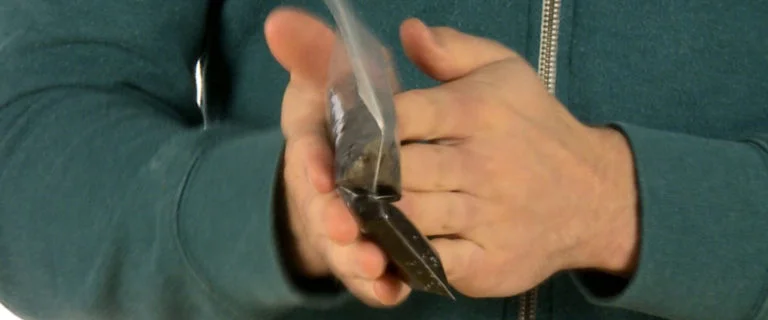
By creating their own hand warmers using safe and easily accessible materials, students will witness the magic of heat generation through chemical processes.
Learn more: Steve Spangler
23. Explore the Concept of Symbiosis Involving Nitrogen-Fixing Bacteria.
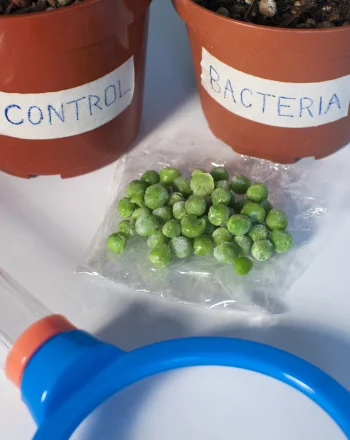
By investigating how certain plants form a mutually beneficial bond with these bacteria, students will gain insights into the essential role of nitrogen fixation in the ecosystem.
Learn more: Education.com
24. Center of Gravity Experiment

This fascinating project invites students to explore the concept of the center of gravity and its role in determining stability.
25. Power up Homemade Batteries
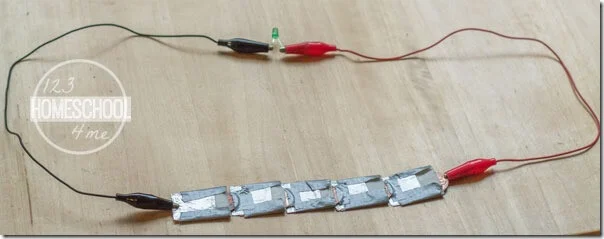
This captivating project invites students to learn about electrochemistry and energy generation.
Learn more: 123 Homeschool
26. Film Canister Explosions
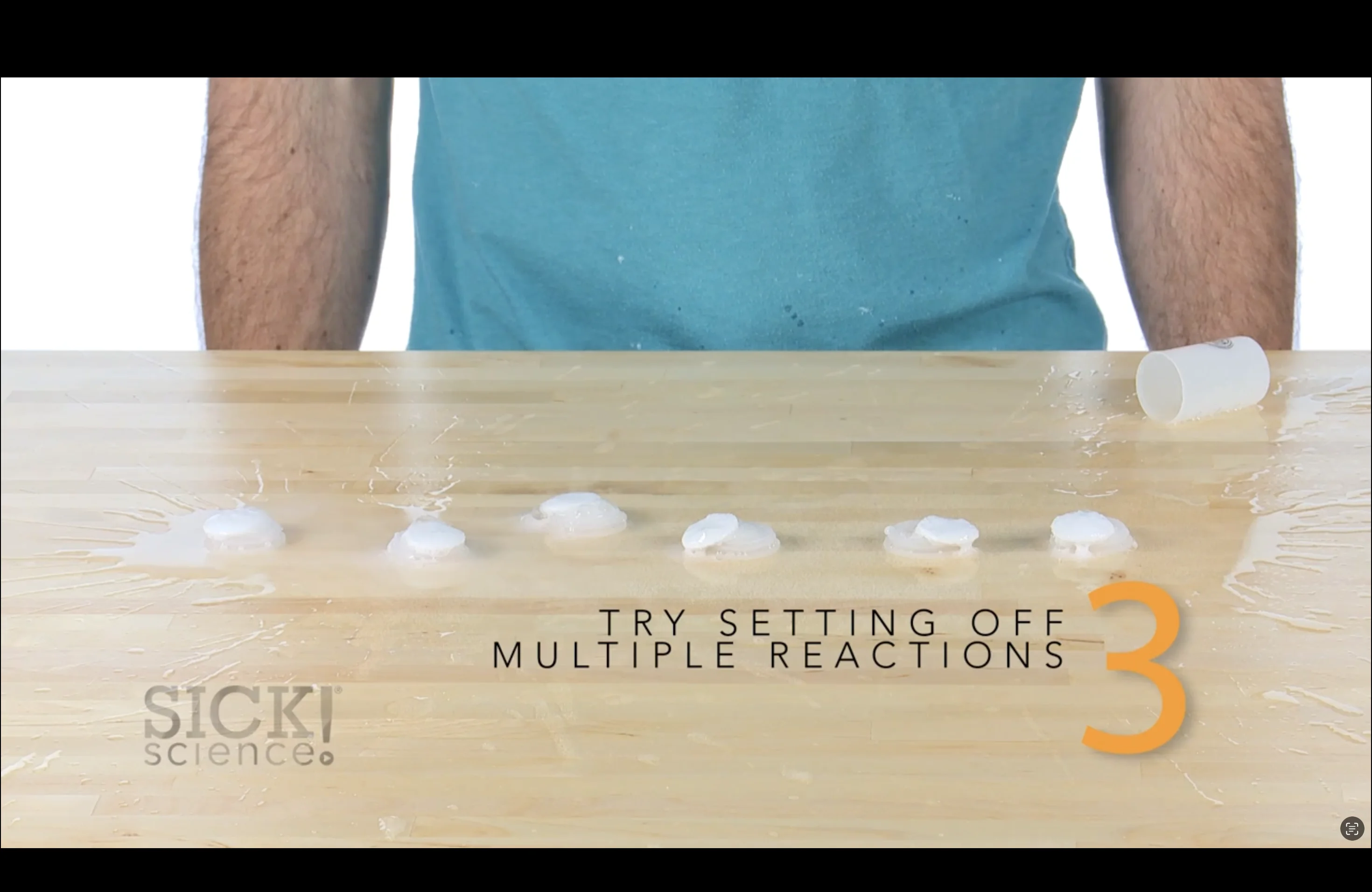
Prepare for a blast of excitement and chemistry with the high school science experiment – “Film Canister Explosions!” This project teaches students about chemical reactions and pressure build-up.
27. Investigating Osmosis with Potato Slices
This hands-on experiment not only provides a practical understanding of osmosis but also highlights its relevance in everyday life, from understanding plant hydration to food preservation techniques.
28. Make Homemade Fly Trap
This captivating “Make Homemade Fly Trap!” project invites students to explore the principles of pest control and observe the behavior of flies.
29. Hydroponics: Gardening Without Soil
This exciting project invites students to explore innovative agricultural practices that harness water and nutrient solutions to grow plants.
By setting up their hydroponic system and nurturing plants through this method, students will witness the fascinating dynamics of root development and nutrient absorption.
30. Clothespin Airplane
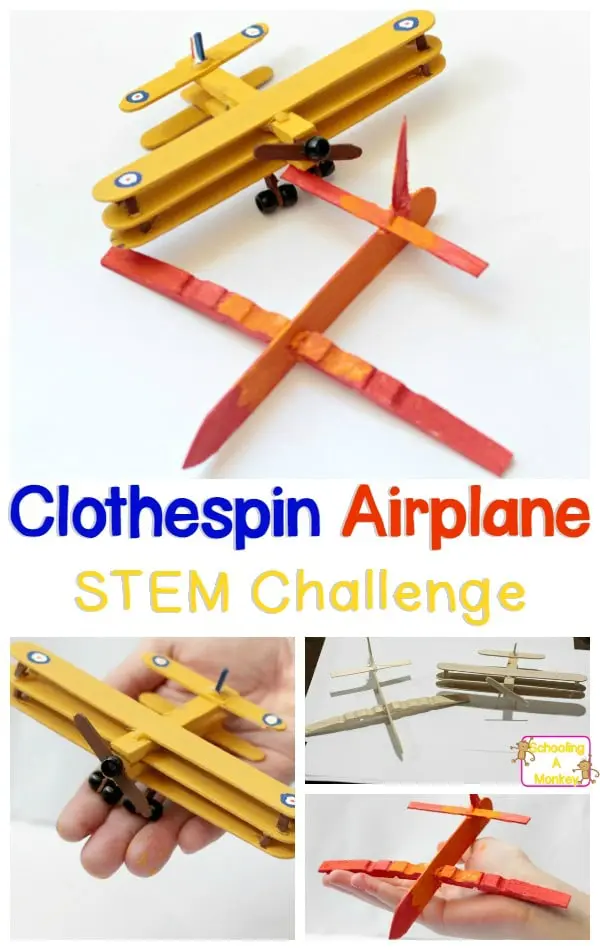
As they test and modify their creations, students will learn about the principles of lift, thrust, and drag, gaining a deeper understanding of how these forces come together to keep airplanes soaring through the skies.
Learn more: Steamsational
Similar Posts:
- 68 Best Chemistry Experiments: Learn About Chemical Reactions
- 37 Water Science Experiments: Fun & Easy
- Top 40 Fun LEGO Science Experiments
Leave a Comment Cancel reply
Save my name and email in this browser for the next time I comment.
AP Research Topics: History, Chemistry, Psychology & More

Have you ever found yourself so wrapped up in a project that you forget to check the time? That's what happens when you choose the right AP Research topic. Whether you're curious about how technology shapes our lives or fascinated by the ways people think, picking good AP research paper topics can make your experience more than just another assignment—it can be an adventure.
AP Research is a course that lets high school students dig deep into a subject they care about. It gives you a chance to think critically and create something truly your own. But before you get started, you need to choose a topic that not only sparks your interest but also meets the course requirements. That's where we're here to help.
Need a Research Paper Upgrade?
Our experts will craft a paper that's smart, sharp, and totally stress-free.
What Does AP Research Do
AP Research allows you to take control of your learning. You'll learn how to ask the right questions, gather and analyze data, and present your findings in a way that's both clear and compelling.
One of the best parts is the freedom it offers. You're not just following a textbook—you're exploring something that genuinely interests you. This exploration can lead to impressive results, like the students who've used EssayPro's resources to write top-notch research papers. By connecting with experts and using reliable tools, they've turned their curiosity into polished projects that stand out.
Whether you're interested in social issues, science, or the arts, AP Research helps you develop skills that go beyond the classroom. You're able to solve problems and communicate your ideas effectively—all essential skills for college and beyond. And with the right support, like the guidance from EssayPro, you can take your research to the next level.
Don't miss out—check out our related article on why is critical thinking important for students and see how these skills can improve your AP Research process.
The List of AP Research Topics
Now that you know what this research is all about, it's time to find a topic that speaks to you. Having a good list of ideas can also make the process easier. Below, our expert admission essay services team gathered a selection of AP research paper topics that are not only interesting but also offer plenty of opportunities for deep exploration.
Best AP Research Topics
- How do urban heat islands affect local weather patterns and public health?
- The impact of early childhood education on long-term social and emotional development
- What are the effects of climate change on global water resources and availability?
- How do social movements utilize digital platforms to mobilize support and influence policy?
- The role of genetic engineering in agriculture: benefits and ethical concerns
- How do cultural differences influence the effectiveness of mental health interventions?
- The effects of gamified learning on student engagement and retention in STEM subjects
- How does the rise of remote work affect team dynamics and productivity?
- The influence of historical narratives on modern national identities
- What are the psychological and social impacts of long-term space travel on astronauts?
- The role of artificial intelligence in personalized medicine and its potential for transforming healthcare
- How do different teaching methods impact students with learning disabilities?
- The impact of environmental sustainability practices on corporate social responsibility
- What are the effects of food labeling on consumer behavior and dietary choices?
- How do societal attitudes toward aging affect elderly care and policies?
- The role of traditional knowledge in contemporary environmental conservation efforts
- How do different approaches to urban design influence community well-being and social interaction?
- The impact of digital detox practices on mental health and productivity in the workplace
- What can be learned from studying the long-term effects of major historical pandemics on societies?
- How do contemporary art movements challenge traditional notions of aesthetics and value?
Good AP Research Topics
Here are some more good topic choices curated by EssayPro. If you've found one you love, our experts are ready to offer help with writing an essay .
- How does the design of public spaces impact community engagement and safety?
- The influence of storytelling techniques on public awareness of social issues
- What are the effects of dietary changes on cognitive function in older adults?
- How do global supply chain disruptions affect local economies and businesses?
- The impact of bilingual education on cognitive development and academic performance
- How does exposure to different cultural perspectives shape attitudes toward global issues?
- What are the psychological effects of participating in extreme sports or adventure activities?
- How do social and economic factors influence access to clean drinking water in developing countries?
- The role of artificial intelligence in detecting and preventing cyber threats
- How do virtual communities influence real-world social interactions and relationships?
- The impact of renewable energy adoption on rural versus urban areas
- What are the effects of early intervention programs on children with developmental delays?
- How do different types of exercise affect mental health and stress levels?
- The influence of political satire on public opinion and political engagement
- What can be learned from the success and failure of international environmental agreements?
- How do personal finance education programs impact financial decision-making and stability?
- The effects of digital media consumption on attention spans and learning abilities in adolescents
- How does the portrayal of diversity in media affect societal attitudes and inclusion?
- The role of community gardens in promoting local food security and social cohesion
- What are the benefits and challenges of integrating technology into traditional classroom settings?
AP Seminar Topics
These AP Seminar research topics are sure to inspire and engage you. They're practical and interesting, perfect for exploring important issues.
- How has the rise of influencer culture altered consumer trust in advertising?
- The impact of urban farming initiatives on food security in densely populated cities
- What role do emerging technologies play in the future of remote education?
- How does the portrayal of mental health in media affect public perceptions and stigma?
- The influence of digital privacy concerns on the development of new technologies
- How do alternative justice systems, like restorative justice, impact community rehabilitation?
- The effects of gamification on student motivation and learning outcomes in education
- What can the evolution of language in internet memes tell us about cultural shifts?
- How do local art movements contribute to global conversations on social justice?
- The role of wearable technology in personal health monitoring and its implications for privacy
- How does the concept of 'ethical fashion' challenge traditional fashion industry practices?
- What are the psychological effects of participating in online communities versus physical communities?
- The influence of microdosing psychedelics on creativity and productivity in professional settings
- How do fictional narratives in popular media shape our understanding of historical events?
- The impact of virtual reality therapy on treating phobias and PTSD
- What role does citizen science play in advancing environmental research and policy?
- How do different cultures approach the concept of work-life balance, and what can we learn from them?
- The effects of digital art on the traditional art market and artist recognition
- How does the rise of autonomous vehicles impact urban planning and traffic management?
- The role of narrative in shaping public perceptions of scientific research and technology
AP World History Research Paper Topics
- How did the Silk Road influence cultural exchange between Asia and Europe?
- The impact of the Mongol Empire on global trade and communication
- The role of women in ancient Egyptian society
- What led to the fall of the Roman Empire?
- Exploring the causes and effects of the Protestant Reformation
- The significance of the Magna Carta in shaping modern democracy
- How did the Black Death reshape European societies in the 14th century?
- The rise and fall of the Byzantine Empire
- What were the key factors in the success of the Ottoman Empire?
- The influence of Confucianism on Chinese government and society
- How did the Age of Exploration change global economies and cultures?
- The impact of colonialism on Indigenous populations in the Americas
- What were the causes and consequences of the French Revolution?
- The development and spread of Islam during the Middle Ages
- How did the Industrial Revolution transform societies in Europe and beyond?
- The influence of Greek philosophy on Western thought
- What were the driving forces behind the unification of Germany?
- The role of the Transatlantic Slave Trade in shaping the modern world
- How did World War I lead to major political changes in Europe?
- The cultural and technological achievements of the Gupta Empire in India
AP US History Research Paper Topics
- The causes and effects of the American Revolution
- How did the Louisiana Purchase shape the future of the United States?
- The role of women in the American Civil War
- What were the main challenges faced by the early colonies in America?
- The impact of the Emancipation Proclamation on the Civil War
- How did the Gold Rush influence westward expansion in the United States?
- The significance of the Monroe Doctrine in American foreign policy
- What were the key factors leading to the Great Depression?
- The influence of the Harlem Renaissance on American culture
- How did the Civil Rights Movement change American society?
- The causes and consequences of the Mexican-American War
- What role did the New Deal play in America's recovery from the Great Depression?
- The impact of World War II on American domestic life
- How did the Cold War shape US foreign and domestic policies?
- The significance of the Supreme Court case Brown v. Board of Education
- What were the driving forces behind the Women's Suffrage Movement?
- The effects of the Vietnam War on American society and politics
- How did the Watergate scandal change public trust in government?
- The influence of the Industrial Revolution on urbanization in America
- What were the causes and outcomes of the American involvement in World War I?
AP Lang Research Paper Topics
- How does the use of rhetorical questions in speeches influence audience engagement?
- The role of persuasive language in shaping public opinion during elections
- How does the choice of narrative perspective affect a reader's connection to a story?
- The impact of social media on modern journalism and news reporting
- What are the linguistic techniques used in effective political debates?
- How do advertising slogans use language to create brand identity and consumer loyalty?
- The influence of Shakespeare's use of imagery on modern literary analysis
- How does the use of irony in literature enhance thematic elements?
- The role of dialogue in character development in contemporary novels
- How does language in public health campaigns affect community behavior and awareness?
- What are the rhetorical strategies used in motivational speeches to inspire action?
- The impact of tone and mood in setting the atmosphere in Gothic literature
- How do different genres of writing, such as satire and tragedy, affect reader perception?
- The role of metaphor in political rhetoric and its impact on policy discussions
- How does the structure of an argumentative essay influence its persuasiveness?
- The effects of language simplification in educational materials on student comprehension
- How do authors use symbolism to convey deeper meanings in their works?
- The influence of cultural context on the interpretation of literary texts
- What are the effects of direct vs. indirect speech on character relationships in drama?
- How do historical speeches reflect the values and concerns of their time periods?
Don't forget to buy analytical essay if you've nailed down your ideal topic!
AP Environmental Science Research Paper Topics
- The impact of deforestation on global biodiversity
- How does climate change affect polar ice caps and sea levels?
- The role of renewable energy in reducing carbon emissions
- What are the environmental consequences of plastic pollution in oceans?
- The effects of industrial agriculture on soil health
- How does urbanization contribute to habitat loss and species extinction?
- The importance of wetlands in maintaining ecological balance
- What are the challenges and benefits of sustainable farming practices?
- The role of environmental policies in protecting endangered species
- How does air pollution impact human health in urban areas?
- The significance of the ozone layer in protecting life on Earth
- What are the environmental impacts of fracking on water resources?
- The effects of climate change on coral reef ecosystems
- How does deforestation contribute to climate change?
- The importance of conservation efforts in preserving biodiversity
- What are the environmental benefits and challenges of electric vehicles?
- The role of national parks in protecting natural resources
- How do invasive species disrupt local ecosystems?
- The impact of overfishing on marine life and ocean health
- What are the environmental and social implications of e-waste?
AP Chemistry Research Paper Topics
- The process of photosynthesis and its chemical significance
- What are the effects of heavy metals on human health?
- The chemistry behind pharmaceuticals and drug development
- How do detergents and soaps work at the molecular level?
- The significance of oxidation-reduction reactions in energy production
- What are the chemical principles behind climate change mitigation efforts?
- The role of catalysts in speeding up chemical reactions
- How do acids and bases interact in everyday life?
- The importance of the periodic table in modern chemistry
- What are the environmental impacts of chemical fertilizers?
- The chemistry behind renewable energy sources like solar cells
- How do chemical bonds determine the properties of substances?
- The significance of pH in maintaining biological systems
- What are the applications of nanotechnology in medicine?
- The process and importance of water purification techniques
- How do greenhouse gases contribute to global warming?
- The role of chemical reactions in food preservation
- What makes enzymes so crucial in biochemical reactions?
- The chemistry of batteries and how they store energy
- How do polymers impact everyday products and the environment?
AP Biology Research Topics
- How do genetic mutations contribute to evolution?
- The role of enzymes in cellular processes
- What are the effects of climate change on animal migration patterns?
- The significance of the human microbiome in health and disease
- How do plants adapt to extreme environmental conditions?
- The impact of antibiotic resistance on public health
- What are the mechanisms of gene expression and regulation?
- The role of natural selection in shaping species diversity
- How do hormones regulate growth and development in organisms?
- The process of photosynthesis and its importance in the carbon cycle
- What are the effects of habitat destruction on biodiversity?
- The role of the immune system in defending against pathogens
- How do organisms maintain homeostasis in varying environments?
- The impact of invasive species on native ecosystems
- What are the genetic factors involved in inherited diseases?
- The process of cell division and its significance in growth and reproduction
- How do environmental toxins affect the nervous system?
- The role of symbiotic relationships in ecosystems
- What are the effects of pollution on aquatic life?
- The significance of epigenetics in gene expression and inheritance
AP Research Psychology Topics
- How do different parenting styles impact child development?
- The effects of sleep deprivation on cognitive performance
- What are the psychological impacts of social media addiction?
- The role of genetics vs. environment in determining intelligence
- How does mindfulness meditation influence stress levels?
- The effects of early childhood trauma on adult mental health
- What are the cognitive benefits of bilingualism?
- The impact of exercise on mental health and mood
- How do stereotypes and prejudices develop and affect behavior?
- The role of attachment theory in understanding romantic relationships
- What are the psychological effects of prolonged isolation?
- The influence of parental involvement on academic achievement
- How do cognitive biases affect decision-making?
- The effects of music therapy on anxiety and depression
- What are the psychological mechanisms behind placebo effects?
- How does exposure to violent media influence aggression?
- The role of self-esteem in coping with life challenges
- What are the effects of nutrition on cognitive function?
- How does early intervention in autism spectrum disorder affect developmental outcomes?
- The impact of stress management techniques on overall well-being
AP Capstone Research Topics
- How did the rise of digital nomadism change the concept of work-life balance?
- The impact of virtual reality on empathy and understanding of social issues
- How do small, community-based conservation efforts contribute to global environmental change?
- The role of crowdfunding in transforming startup culture and innovation
- What can ancient agricultural practices teach us about modern sustainable farming?
- How do storytelling techniques in video games influence player behavior and decision-making?
- The effects of cross-cultural exchanges on traditional art forms in the digital age
- What are the social and psychological impacts of living in a hyper-connected world?
- How do grassroots movements influence national policy changes?
- The role of biohacking in personal health and ethical considerations
- How do urban green spaces impact community well-being and social interactions?
- The influence of speculative fiction on real-world scientific advancements
- What are the psychological effects of experiencing extreme weather events on communities?
- How do traditional storytelling methods in indigenous cultures address modern social issues?
- The role of augmented reality in enhancing educational experiences and learning outcomes
- How do cultural festivals contribute to local economic development and global awareness?
- The impact of immersive theatre on audience engagement and social change
- What can historical patterns of migration reveal about current refugee crises?
- How do alternative economic models, like time banking, challenge traditional concepts of value and work?
- The effects of digital detox programs on mental health and productivity
AP English Language Research Paper Topics
- How does rhetoric influence public opinion in political speeches?
- The role of satire in social and political commentary
- How do language and style vary between formal and informal writing?
- The impact of social media on modern communication practices
- How does persuasive writing shape consumer behavior in advertising?
- The use of metaphor in shaping cultural narratives
- What are the linguistic features of effective storytelling in literature?
- How does the choice of diction affect the tone of a piece?
- The role of rhetorical devices in Martin Luther King Jr.'s speeches
- How do different genres of writing influence reader perception?
- The impact of globalization on language and communication styles
- How does the structure of a persuasive essay affect its effectiveness?
- The use of imagery and symbolism in shaping the reader's emotions
- How does the language used in news media influence public understanding of events?
- The role of ethos, pathos, and logos in crafting compelling arguments
- How does narrative voice affect reader engagement in memoirs and autobiographies?
- The influence of historical context on the language of classical literature
- How do language and rhetoric contribute to the development of national identity?
- The effects of censorship on literary expression and freedom
- How do authors use rhetorical strategies to address social justice issues?
Characteristics of a Good AP Research Paper
Strong AP research topics stand out due to several key features that ensure their impact. Here's what to keep in mind:
- Timeless Relevance: Select a topic that maintains its significance over time. Avoid subjects likely to become outdated quickly. Instead, focus on issues with long-term importance that can be referenced by future researchers.
- Supported by Credible Sources: Your research must be backed by reliable sources. For example, research supported by academic databases like JSTOR or publications from trusted institutions such as the National Institutes of Health (NIH) adds credibility.
- Clear and Insightful Research Questions: Good questions help define the scope of your paper and shape your analysis, ensuring that your research is both relevant and insightful. For example, if your topic involves the impact of digital marketing, questions inspired by case studies from companies like Google or Adobe can provide a structured framework for your analysis.
- Specific Focus: Narrow your topic to address specific issues, avoiding overly broad subjects. For instance, if researching the effects of climate change, focus on a particular aspect such as its impact on urban agriculture.
- Logical Structure and Clarity: Ensure your paper has a clear introduction, body, and conclusion. Each section should flow logically, with well-organized arguments and evidence. A clear structure helps readers follow your argument and enhances the overall readability of your paper.
By considering these pointers suggested by EssayPro, your paper will make a valuable contribution to your field of study. It'll also be easy for you to draw on the best practices and examples from leading research institutions and industry experts.
Tips for Choosing an AP Research Topic
Here are some useful tips to help you choose standout AP research topic ideas:
- Examine Current Trends: Look at recent news, technological advances, or social movements for inspiration. Topics like the effects of remote work on productivity or the rise of sustainable fashion can be both timely and impactful.
- Reflect on Your Passions: Whether it's a hobby, a cause, or a field you're curious about, your enthusiasm will make the research process more enjoyable and your writing more compelling.
- Seek Out Gaps in Existing Research: Identify areas where there's a lack of information or where current research is outdated. For example, if you notice few studies on the psychological effects of digital detoxes, that might be a unique angle worth exploring. EssayPro can also help you find existing research and identify gaps that need further investigation.
- Consult with Experts: Talk to teachers, mentors, or professionals in fields you're interested in. Their insights can help you identify important topics. You might also find useful examples and advice from Essaypro's expert writers.
- Consider Practical Applications: Choose a topic with real-world applications or implications. Researching the impact of new educational technologies on classroom dynamics, for example, can provide valuable insights and practical solutions.
- Look at Your Local Community: Local issues or events can offer unique and relevant topics. Investigate how local policies affect community health or how a local environmental issue is being addressed. These topics can provide fresh perspectives and direct relevance.
- Use Personal Experience: Leverage your own experiences or observations. If you've noticed a trend or issue in your daily life, such as the impact of social media on teen behavior, it can provide a unique and personal angle for your research.
Ready for a Paper That's More Brilliant Than Your Last Brainstorm?
Watch as our team transforms your rough ideas into a polished masterpiece that'll wow everyone.
How to Find a Good Research Topic in AP Research?
How long should my ap research paper be, what are some popular ap research topics.

Annie Lambert
specializes in creating authoritative content on marketing, business, and finance, with a versatile ability to handle any essay type and dissertations. With a Master’s degree in Business Administration and a passion for social issues, her writing not only educates but also inspires action. On EssayPro blog, Annie delivers detailed guides and thought-provoking discussions on pressing economic and social topics. When not writing, she’s a guest speaker at various business seminars.

is an expert in nursing and healthcare, with a strong background in history, law, and literature. Holding advanced degrees in nursing and public health, his analytical approach and comprehensive knowledge help students navigate complex topics. On EssayPro blog, Adam provides insightful articles on everything from historical analysis to the intricacies of healthcare policies. In his downtime, he enjoys historical documentaries and volunteering at local clinics.
Grey, S. (2024, August 7). What Is The AP Capstone Program? Everything You Should Know. Forbes . https://www.forbes.com/advisor/education/online-colleges/what-is-ap-capstone/
.webp)

COMMENTS
The program pairs high-school students with Ph.D. mentors to work 1-on-1 on an independent research project. The program actually does not require you to have a research topic in mind when you apply, but pro tip: the more specific you can be the more likely you are to get in! Elements of a Strong Research Paper Introduction
Social Science Surveys and Studies. Use research methods from sociology, political science, anthropology, economics, and psychology to craft a survey study or field observation around a high school research project idea that interests you. Collect data from peers, your community, and online sources, and compile findings.
Importance Of Research Project Ideas For High School. Here are some reasons why coming up with good research project ideas is important for high school students: Explore Interests In-Depth. It allows you to explore an area of interest more deeply. Research projects allow you to learn more about a topic you're curious or passionate about.
So, we've put together a list of engaging research topics for high school students across ten different subjects: physics, math, chemistry, biology, engineering, literature, psychology, political science, economics, and history. Each topic is crafted to spark your curiosity and help you grow those research skills.
107 Captivating Debate Topics For Middle School Students; 24 Forward-Thinking Research Topic Ideas for Students; Bonus List of Even MORE High School Research Paper Topics. Finding a captivating research paper topic in high school can feel like searching for a hidden treasure. Perfect research projects should ignite your curiosity and allow you ...
Social Issues and Sociology Research Topics. The Impact of Social Media on Interpersonal Relationships: Social media is shaking up the way we interact with others. The Role of Education in Reducing Inequality: Education is the number one way to reduce inequality. Explore strategies and policies that can help with this.
Good Research Paper Topics (Continued) 5) Analyze the themes, symbolic representations, and societal critiques of the American Dream as depicted in F. Scott Fitzgerald's The Great Gatsby. 6) Provide a comprehensive explication of a renowned Shakespearean sonnet or soliloquy, such as this one from Hamlet. 7) Choose a poem such as Robert Frost ...
Elements of a Strong Research Paper. Here are some key elements that contribute to a strong research paper: Relevant, focused research question - The research question should be specific, original, and clearly stated early in the paper. It sets the direction for the whole project. Strong thesis statement - The thesis presents the main ...
Controversial Topics. Lastly, some consider these topics controversial, yet they may be of great interest to some students. Topics include: Human health, health issues, access to healthcare, medicine costs (especially in the US) Birth control. Teen pregnancy. Abortion rights, laws, limitations. Animal rights.
Topic 11: Music and Science. Combining music with science provides a unique research perspective. Students can study the psychological and biological effects of music on the human body and brain. This area is great for students interested in medicine, biology, music, and psychology, regardless of their musical background, offering a harmonious ...
In this project, we will perform and systematic review and meta-analysis of fasting or diet-induced autophagy and its benefits on the body. You will gain skills in 1) searching and reviewing primary literature, 2) computational skills for performing data analysis (R language), and 3) writing your scientific findings.
In the research program I help run for high school students, we've had students who have written on many high school research project topics. These include climate change's impact on the economy in Mumbai, non-viral delivery mechanisms for CRISPR/cas9, and an analysis of the AI strategy of the European Union. ...
Innovative findings can have a more significant impact on the scientific community and may open up new avenues of exploration. Personal growth and development: Tackling an original research topic encourages critical thinking, problem-solving, and creativity. These skills are invaluable for researchers and can be applied to various aspects of ...
Chemistry Research Area #3: Materials Science and Nanotechnology. Materials science and nanotechnology are fields that hold the key to groundbreaking innovations in various industries. For high school students looking for chemistry research ideas, these areas offer a unique blend of chemistry, physics, and engineering, providing a glimpse into ...
19. The theoretical and experimental advances in quantum computing. Explore current high-impact research directions for quantum computing from a hardware or theoretical perspective. 20. Nuclear fission or nuclear fusion energy as a possible solution to mitigate climate change.
113 Great Research Paper Topics. One of the hardest parts of writing a research paper can be just finding a good topic to write about. Fortunately we've done the hard work for you and have compiled a list of 113 interesting research paper topics. They've been organized into ten categories and cover a wide range of subjects so you can easily ...
Decoherence is a major challenge in quantum computing, disrupting qubits' state. Explore strategies to reduce decoherence, using experimental setups or theoretical models. This research is crucial for extending qubits' coherence time, enhancing quantum computer stability. 4. Implementing Quantum Teleportation Protocols.
Virtual Research Opportunities for High School Students. Virtual research opportunities for high school students offer ultimate flexibility, in regard to time commitment as well as subject matter. 1) Polygence. Location: Virtual; Timeframe: Academic year and/or summer; Length: 2-6 months; Cost: $495-$3,695; Eligibility: No age restrictions
NHSJS is a free, online, student-run and peer-reviewed research journal that is targeted towards high school students. To be published in this journal, students don't have to do independent ...
High School Science Projects. (648 results) Science Buddies' high school science projects are the perfect way for high school students to have fun exploring science, technology, engineering, and math (STEM). Our high school projects are written and tested by scientists and are specifically created for use by students in the high school grades.
Feb 6, 2024. The cool thing about high school science fair projects is that kids are old enough to tackle some pretty amazing concepts. Some science experiments for high school are just advanced versions of simpler projects they did when they were younger, with detailed calculations or fewer instructions. Other projects involve fire, chemicals ...
To participate, you must have completed at least 9th grade by June 2024, be at least 14 years old by June 27, have a 3.5 GPA in science subjects, and submit two letters of recommendation. This is a paid opportunity—participants will receive a stipend. 2. Rockefeller University Summer Science Research Program.
26. Film Canister Explosions. Prepare for a blast of excitement and chemistry with the high school science experiment - "Film Canister Explosions!". This project teaches students about chemical reactions and pressure build-up. Learn more: Steve Spangler.
Data visualization projects are a fun way for high school students to dive into data science, blending coding, analysis, and storytelling. From environmental shifts to social media trends, these projects transform raw data into compelling narratives. Here are 10 exciting ideas for all experience lev
Whether you're curious about how technology shapes our lives or fascinated by the ways people think, picking good AP research paper topics can make your experience more than just another assignment—it can be an adventure. AP Research is a course that lets high school students dig deep into a subject they care about.